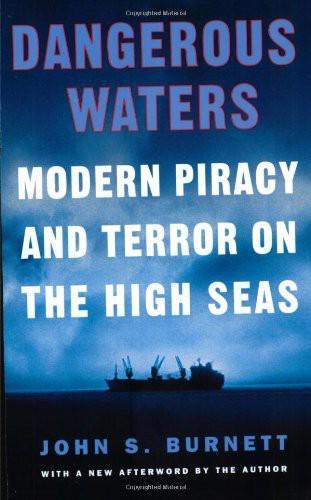
Dangerous Waters: Modern Piracy and Terror on the High Seas
by
John S. Burnett
Published 1 Jan 2002
And in December 2002, North Korea charged the U.S. with “unpardonable piracy” after it arranged for the Spanish Navy to stop the M/V So San that was transporting fifteen Scud missiles to Yemen.58 Yet the threat that concerns many is of a terrorist attack on a ship in one of the world’s strategic waterways—the Panama and Suez Canals,59 the Strait of Gibraltar, and the Malacca Straits. While the War on Terrorism focuses on protecting American harbors and ports, the Malacca Straits are the sea lanes most vulnerable to terrorist attack. This, the world’s most congested channel, cuts through the heart of political and religious unrest. Growing religious polarization in the secular but predominantly Islamic nations of Indonesia and Malaysia, through which the Malacca Straits funnel, is a serious concern. A mujahideen network, trained in Afghanistan and well established in Southeast Asia, feeds upon the discontent of the huge, impoverished Muslim populations of not only Indonesia and Malaysia, but the Philippines, Thailand, Cambodia, and even Burma.
…
Human smuggling operations Ijaws Illegal immigrants, transportation of Immigration and Naturalization Service Inabukwa India Indian Ocean Indonesia Indonesian Naval Command Informants International Chamber of Shipping International Collision Regulations International Maritime Bureau (IMB) Piracy Reporting Center International Maritime Chamber of Commerce International Maritime Organization (IMO) International Safety Management Code International Ship and Port Security Code International Shipping Federation Iran Iran-Iraq war Irian Jaya Iryani, Abdul Karim Ishak, Tengku Islam Isomeria Israeli ships Jabal Aswad range Jackson, Robin Japanese Self-Defense Force Java Sea Jeeris, Captain James Jemaah Islamiah Johnson, Samuel Johore Baru Kandla Karine-A Kassim, Jamaludin Kenya Kharg Island Khat Kidd, Captain Kismayo, Somalia Klinghoffer, Leon Known Club Korea, North Krokos, Jonas Kursk Laccadive Islands Large, John Lieberman, Joseph Limburg Linington, Andrew Lin Kuo Litopia Lloyd’s Information Services Lloyd’s of London LoJack Lombok-Makassar Straits Lost commands Loy, James M5 submachine gun M16 rifle MacKereth, Captain Alan Maersk Navigator Majorca Malabar Coast Malacca Straits hostage-taking in Japanese presence in marine police antipiracy operations in Montrose in Malacca Straits, (continued) navigation aids in Malaysia Maldive Islands Mammoet Manchester Ship Channel Mangalore, India Mangouras, Apostolos Mannas, Samsher Manning policies Marine Accident Investigation Board Marine Corps Hymn Marine Medical Center, Singapore Mariner’s Routing Guide of the Malacca Straits Maritime & Underwater Security Consultants Maritime Transportation AntiTerrorism Act of 2002 Masefield, John Mathur, Karun Matthew Maynard, Robert McKnight, Bill Mediterranean Sea Megaports Mekong Delta Melville, Herman Mexico Moitissier, Bernard Mombassa Mongla Anchorage, India Monsoons Monteiro, Captain Donny Monteiro, Deepak Monteiro, Vanisha Monteiro, Vimala Montrose anchor antipiracy precautions bridge cash on board cost design draft end of journey engine room helicopter landing pads inspection below in Malacca Straits officers and crew at Pulau Karimun registry role of captain rolls security audit ship’s particulars size of speed vibration weight fully loaded Moro Liberation Front Moslem raiders Mosquito Coast MOX fuel Muda, Muhamad Bin Muhammad Mukundan, Captain P.
…
These include such vital links as the Panama and Suez Canals, the Straits of Hormuz at the exit of the Persian Gulf, the Bab el Mandab, the bottleneck at the southern end of the Red Sea leading to the Suez and Europe, the Straits of Gibraltar, and the Malacca Straits that connect Asia to much of the rest of the world. It is in many of these tightly confined stretches that modern-day pirates lie in wait and attack ships at will. Indeed, there is not a shipping lane, a navigable strait, an important canal, that is safe from those determined to take over a ship. Pirates have attacked vessels on all these waterways—not something that is well known outside the maritime community. The Malacca Straits, on the east side of the Indian Ocean, is one of those corridors. This five-hundred-mile passage is the commercial umbilical connecting Europe, the Middle East, and the Indian subcontinent to Asia and the Pacific.
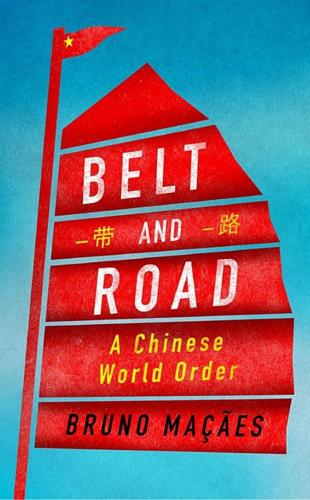
Belt and Road: A Chinese World Order
by
Bruno Maçães
Published 1 Feb 2019
Finally, the Belt and Road can be used to develop new trade and energy routes along historically disadvantaged regions, thereby reducing China’s vulnerability to an American naval blockade of the Malacca strait in case of conflict. In 2016 80 per cent of China’s imported oil passed through the Indian Ocean and Malacca Strait into the South China Sea. If a maritime crisis or a war were to happen, these routes could be cut off. In 2003 President Hu Jintao noted that “some large countries are continually interfering in and attempting to control shipping through the Malacca Strait.” This critical vulnerability has since become known as China’s “Malacca Dilemma.”10 It is revealing that those Chinese who criticize the dilemma end up preserving it or even expanding its scope.
…
Mei Xinyu, a researcher at an internal Ministry of Commerce think tank, dismisses the notion of a “Malacca Dilemma” only to replace it with an “Indian Dilemma.” He notes that China’s vulnerability extends much beyond the Malacca Strait. In that respect its position is much worse than that of Japan in relation to its quasi-enemy during the Cold War, the Soviet Union, which indeed had its eyes on the Strait. Now China’s quasi-enemies are the navies of America and its allies. “In order to cut off oil and gas supplies from the gulf to China, they just need to advise Gulf countries to close oil wells, they don’t need the Malacca Strait.”11 In just a few years China will need to import 600 million tons of crude oil and 300 billion cubic meters of natural gas annually.
…
The oil pipeline—running in parallel and with a capacity of 22 million barrels of oil per year, about 6 per cent of China’s 2016 oil imports—was built to transport oil from the Middle East and Africa directly to China, avoiding the Malacca Strait and cutting shipping distances by 1200 km. Even more dramatically, using overland pipelines connected to Gwadar will reduce the distance from the Persian Gulf to just 2,500 km—but the pipeline will depend on ultra high-power pumping stations as it has to pass through the Karakoram Pass, at an altitude of 5,000 to 6,000 meters above Gwadar or Kashgar. On existing routes via the Malacca Strait, oil tankers need to travel more than 10,000 km for two to three months to reach China. While ports such as Hambantota are close to existing shipping lines, others such as Gwadar presuppose a significant redrawing of those lines in the future.

Love Over Scotland
by
Alexander McCall Smith
Published 31 Dec 2005
PR6063.C326L68 2007 823’.914—dc22 2007022072 Author illustration © Iain McIntosh w w w . a n c h o r b o o k s . c o m v1.0 This book is for David and Joyce Robinson 44 Scotland Street: The Story So Far At the end of the second series of 44 Scotland Street we saw Domenica leaving for the Malacca Straits for the purposes of anthropological research. We saw Bruce safely departed for London. Now Pat is about to start her course in history of art at the University of Edinburgh. She moves out of Scotland Street to the South Side, but this does not mean that she breaks off all connections with the New Town.
…
In one corner, their skateboards at their feet, a group of teenage boys huddled against the world, caps worn backwards, baggy, low-crotched trousers half-way down their flanks. Pat had wondered what these youths talked about and had concluded that they talked about nothing, because to talk was uncool. Perhaps Domenica could do field work outside the McEwan Hall – once she had finished with her Malacca Straits pirates – living with the skateboarders, in a little tent in the rhododendrons at the edge of the square, observing the socio-dynamics of the group, the leadership struggles, the badges of status. Would they accept her, she wondered? Or would she be viewed with suspicion, as an unwanted visitor from the adult world, the world of speech?
…
As he walked down Scotland Street, Angus Lordie reflected on the melancholy nature of his errand. So many times I have walked this way, he thought, to call on my old friend, Domenica Macdonald, and now I make my way to her empty flat. But then he reminded himself: Domenica is not dead, and I must not think of her in that way. She has simply gone to the Malacca Straits, and that is not the same thing as being dead. And yet he wondered how long it would be before he saw her again. She had not said anything about when she would return, but had hinted that it could be as much as a year, perhaps even longer. A year! He had wanted to say to her: “And what about me, Domenica?
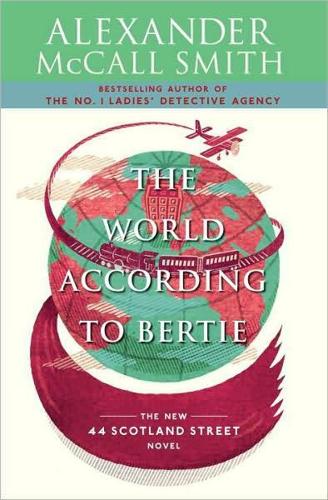
The World According to Bertie
by
Alexander McCall Smith; Robert Ian MacKenzie
Published 1 Jan 2007
But there was more: in addition to all of that, Domenica was now the author of a learned paper that had recently been accepted for publication in the prestigious journal Mankind Quarterly. This paper, “Past Definite; Future Uncertain: Time and Social Dynamics of a Mangrove Community in Southern Malaysia,” was the fruit of her recent field trip to the Malacca Straits. There, she had joined what she imagined was a community of contemporary pirates, with a view to conducting anthropological research into their domestic economy. The pirates, it was later revealed, were not real pirates after all – or not pirates in the sense in which the term is understood by the International Maritime Safety authorities in Kuala Lumpur.
…
Angus opened the cover and saw, on the inside, the sentence which Domenica had inscribed in black ink. To Angus Lordie, the inscription read, who stayed behind. From your friend, Domenica Macdonald. He reread the sentence and then looked up. “Why have you written who stayed behind?” he asked. His tone was peevish. Domenica shrugged. “Well, you did, didn’t you? I went to the Malacca Straits, and you stayed behind in Edinburgh. I’m simply stating what happened.” Angus frowned. “But anybody reading this would think that I was some … some sort of coward. It’s almost as if you’re giving me a white feather.” Domenica drew in her breath. She had not intended that, and it was quite ridiculous of Angus to suggest it.
…
“And you never asked me whether I’d like to go. Saying that somebody stayed behind suggests that they were at least given the chance to go along. But I wasn’t. You never gave me the chance to go.” “Well, really!” said Domenica. “You made it very clear that you didn’t like the idea of my going to the Malacca Straits in the first place. You said that in the little speech you gave at my dinner party before I left. You did. I heard you, Angus. Remember I was there!” “It would be a very strange dinner party where the hostess was not there,” said Angus quickly. “If one wrote a note to such a hostess one would have to say: ‘To one who stayed away.’
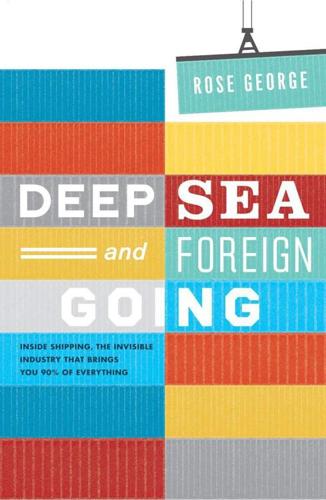
Deep Sea and Foreign Going
by
Rose George
Published 4 Sep 2013
From 2004 the littoral governments of the straits – Malaysia, Singapore, Indonesia, Thailand – began mounting serious piracy patrols, using air, sea and intelligence. Attacks dropped from 75 in 2000 to 10 in 2005. By 2006, the Joint War Committee of Lloyd’s had removed the Malacca Straits from its Hull, War, Strikes, Terrorism and Related Perils Listed Areas. Pirate experts desperate to solve the Somalia situation look at the Malacca Straits for answers, but there is no like to compare with like. There is nowhere as disintegrated as Somalia, spitting out its youngsters to the sea. Anyway, here in the straits there have been reports of attacks again, and a shift in pirate behaviour.
…
Because out of that ship’s company ten men are alive, and those ten men know what you did. Three of us were wounded. Seven of us were not. Those seven are back at sea.’ Ashore 11. DISEMBARK It’s raining. Warm rain. Water on deck, oily and shiny. Flat grey sea. My mood is low and not shifted by running. I must be in pre-departure mourning. We are in the Malacca Straits now, which Chief Engineer Derek calls the M4 of shipping. I call them my final stretch, to be reluctantly travelled. The straits are 500 miles long, join the Indian and Pacific Oceans, and are surrounded by places of spice and treasure. They are also a captain’s nightmare, because they are busy and narrow and overcrowded.
…
I have seen pilots climb up the rope ladders, up several sheer storeys of freeboard, and I know they sometimes get smashed against the side or miss their footing. To the captain, I translate all this anxiety as, ‘But I’ll have a laptop.’ He actually says, ‘Pish!’ They do it all the time. There’s nothing to it. The drama lasts an hour or two and then the schedule changes again. Singapore it is. At their narrowest point, the Malacca Straits are 1.7 miles wide. This is the oil highway from the Gulf to the East, and each year 60,000 ships must pass through that 1.7-mile chokepoint. The wheelhouse radars show a mass of dots, and each one is a ship. Alarms are already going off in the wheelhouse because the system overloads if there are more than 200 ships in a two-mile radius.
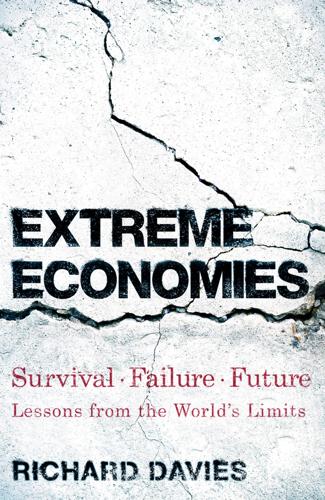
Extreme Economies: Survival, Failure, Future – Lessons From the World’s Limits
by
Richard Davies
Published 4 Sep 2019
The story – that this is a special place founded by traders – is strong in the minds of the Acehnese, a people who understand the history of their land and regard it as exceptional. THE PEPPER CAPITAL AND VERANDA TO MECCA Aceh’s location, so devastating in 2004, has through most of its history been an economic asset. As maritime trade began to flourish in the fifteenth century, Banda Aceh became the gateway to the Malacca Strait, the channel that links the Pacific and Indian Oceans and is the primary shipping lane joining India and the west with China, Japan and the east. Cargoes from the Spice Islands – pepper, nutmeg, mace, cloves, ginger and cinnamon – were shipped up the strait and then on to ports in Sri Lanka and India as they headed west to Europe.
…
Cargoes from the Spice Islands – pepper, nutmeg, mace, cloves, ginger and cinnamon – were shipped up the strait and then on to ports in Sri Lanka and India as they headed west to Europe. They were light and their uses in curing meat and making medicines made them hugely valuable: nutmeg was worth more than its weight in gold in Britain, and London dockers would happily be paid in cloves. The spice ships navigating the Malacca Strait were like floating buckets of cash, and offering them safe harbour, as Banda Aceh did, was a lucrative business. As well as controlling a strategic port, the Acehnese became powerful exporters, selling nutmeg and cloves, together with betel nuts, which can be chewed to give a caffeine-like high. But the big money here came from the global pepper boom.
…
Trade meant Aceh became richer than other parts of Sumatra, allowing it to maintain supreme maritime strength. For its control of shipping and the products of its land, the Acehnese came to understand that their end of the island was superior. Others recognized the value of Aceh too, leading to centuries of battles and warfare between the Acehnese and rivals who sought control of the Malacca Strait. The early enemy was the Malacca Sultanate based across the water on the Malay Peninsula (modern-day Malaysia). Later, as European powers explored the east, Britain became an important protector, guaranteeing Acehnese independence in order to prevent the strategic region falling into enemy hands.
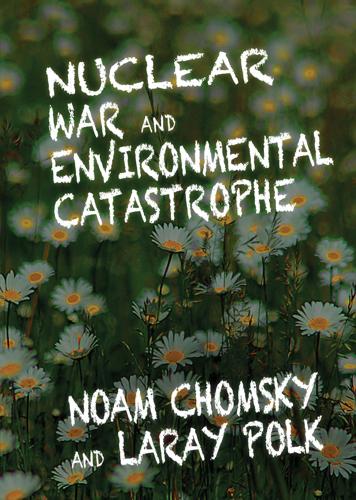
Nuclear War and Environmental Catastrophe
by
Noam Chomsky
and
Laray Polk
Published 29 Apr 2013
In July 2012, the Indian Navy announced a new base on the Andaman and Nicobar Islands as a means to patrol the Malacca Straits, one of the busiest sea-lanes in the world. In 2006, the Hindustan Times reported plans for the base came from the US, “given its growing comfort level with India and their growing strategic relationship, [the US] is delegating to New Delhi a role that would have been unthinkable even a few years ago.” Democracy Now!, “South Korea Cracks Down on Resistance to Jeju Island Naval Base Project,” July 19, 2011; “Indian Navy Awaits Regional Nod for Patrolling Malacca Straits,” Hindustan Times, June 7, 2006. On US-India civilian nuclear deal, see note 5, this chapter. 5.
…
There are underseas fossil-fuel resources, and a good deal of contention among regional states about rights to them. But it’s more than that. The new US base on Jeju Island in South Korea, bitterly protested by islanders, is not primarily concerned with energy resources. Other issues have to do with the Malacca Straits, China’s main trade route, which does involve oil and gas but also much else.63 In the background is the more general concern over parts of the world escaping from US control and influence, the contemporary variant of Grand Area policies. Much of this extends the practice of earlier hegemonic powers, though the scale of US post–World War II planning and implementation has been in a class by itself because of its unique wealth and power.
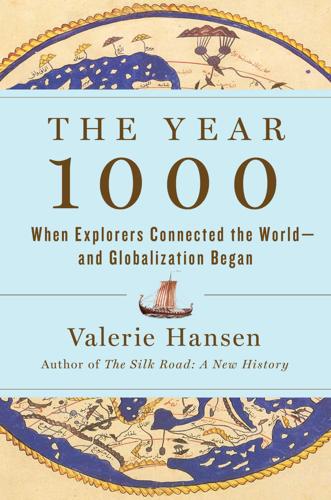
The Year 1000: When Explorers Connected the World―and Globalization Began
by
Valerie Hansen
Published 13 Apr 2020
These Buddhists offered a powerful combination of spells, rituals, and initiations, all practices that mark Esoteric Buddhism. Rulers hosted these Buddhists because they hoped that the holy men could strengthen their kingdoms. The rulers of Srivijaya prospered by encouraging and taxing the maritime trade in the Malacca Strait. Because the empire didn’t keep any records that have survived, most of what we know comes from official Chinese sources. The description of Srivijaya from the dynastic history of the Song is a good example. Like Wikipedia entries today, the Chinese descriptions of foreign lands followed a set formula, which included the country’s most important products, the local currency system (the residents of Srivijaya exchanged gold and silver for the goods they wanted; they didn’t use coins), and a chronological account of the most important events in the history of that place, almost always providing a list of tribute-bearing delegations.
…
Leaving Guangzhou between December 826 and late March 827 (or perhaps a year or two later), the ship caught the monsoon winds as they blew in a southern direction. Under smooth conditions, this ill-fated boat might have completed the journey from Guangzhou to Belitung in less than a month. The ship sank at Belitung before it could go on to the Malacca Strait. The Belitung vessel wasn’t the only type of ship engaged in long-distance trade. Other contemporary ship designs—eleven different types, in fact—appear on stone panels at the world-famous Borobudur temple in central Java. Stone reliefs of merchant ships with outriggers provide more detail about the construction of these Southeast Asian vessels than any other contemporary depictions.
…
The local kings probably saw no conflict between the two religions and made contributions to both Buddhism and Hinduism, quite possibly at the same time. The Shailendra rulers on Java financed these monuments by taxing both wet-rice agriculture and commerce, and they may have received some contributions from their in-laws, the Srivijayan rulers, too. Pilgrims to Borobudur stopped on the islands around the Malacca Strait. There they would have encountered sailors from ships traveling from the Islamic world that had to lay anchor and wait for the monsoon winds to shift before they could continue on to China. Because no wrecks going in that direction have yet been found, we must consult other sources to learn what the Chinese imported.
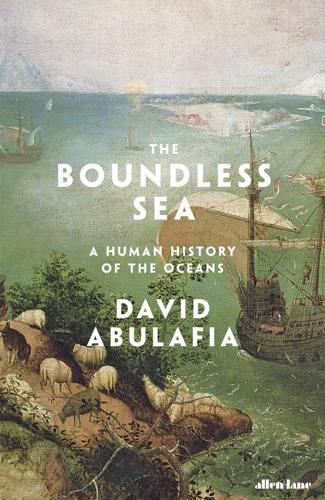
The Boundless Sea: A Human History of the Oceans
by
David Abulafia
Published 2 Oct 2019
They well knew that they were unable to control movements east of Melaka, despite a signal victory over a navy of Javanese junks in the Malacca Strait in 1513. This victory helped guarantee free passage for Portuguese ships as far as Ternate and Tidore, the places Francisco Serrão had identified as centres of the trade in cloves and other costly spices; but, to cite Charles Boxer, ‘Portuguese shipping in this region was merely one more thread in the existing warp and woof of the Malay–Indonesian interport trade.’37 The conquest of Melaka by Albuquerque in 1511 did not bring Portugal mastery over the Malacca Strait, since the expelled sultan still held lands right opposite Melaka in Sumatra; Portuguese territory was limited to a densely populated town and its harbour.
…
Place names are particularly difficult; some have been officially changed only in recent times, even if they have more ancient origins (Essaouira for Mogador ; Mumbai for Bombay ; Sri Lanka for Ceylon ; Gdansk for Danzig ), and I have sometimes switched back and forth. Where European and indigenous names are very similar I have preferred the indigenous version, if it is in current use: Melaka rather than Malacca , recognizing that the city originated a hundred years before the Portuguese conquest (but one still talks of the ‘Malacca Strait’); Macau rather than Macao . I have alternated between New Zealand and the lovely Māori name Aotearoa (‘Long White Cloud’). Guangzhou became known to westerners as Canton , a Portuguese corruption of Guangdong (the name of the wider region); but it would be perverse to call ancient Guangzhou ‘Canton’, so I have used ‘Canton’ only when writing about the period of intensive European trade up the Pearl River.
…
In 1406 a Javan ship bound for Korea was carrying parrots, peacocks, pepper and camphor, and not surprisingly it was seized by Japanese pirates; however, five years later a Javan mission reached Kyushu safely.32 A particularly important role was played by the autonomous kingdom in the Ryukyu islands, with its centre at Okinawa, on the southern edge of this Japanese Mediterranean; this region provided southward links, connecting the Japanese seas to some of the longer-distance trade routes as far as the Malacca Strait (home to Melaka, Palembang and Temasek, the modern Singapore), which had become once again a very significant centre of the spice trade in the fifteenth century. Chinese withdrawal thus had the paradoxical effect of opening up the seas. II Although there are occasional accounts of sea battles off Korea, and although the wakō pirates became an increasing worry, the maritime history of the waters between Japan, China and Java is mainly a history of relatively peaceful relations.
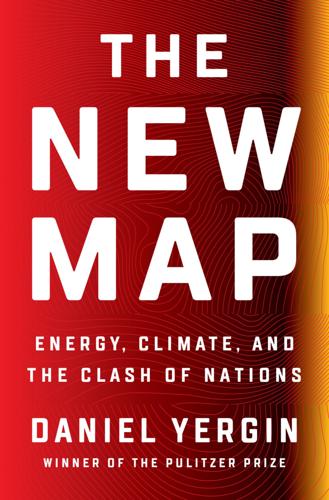
The New Map: Energy, Climate, and the Clash of Nations
by
Daniel Yergin
Published 14 Sep 2020
It has been facilitated by the retreat of the Arctic ice, although with more variability than sometimes recognized. For instance, in September 2014, the ice extent was 50 percent greater than it had been in September 2012. The route cuts the distance between Shanghai and Rotterdam by about 30 percent, and in the process avoids both the narrow Malacca Strait and the Suez Canal. This opening has been welcomed by Japan, South Korea, and especially by China, which, describing itself as a “Near Arctic State,” applies its own distinctive name to the route—the Polar Silk Road.15 Overall, however, the Northern Sea Route is still supplementary, owing to the challenges of ice and weather.
…
The concern was not only the volumes of oil, but also whence they came. China is the biggest customer for oil flowing out of the Persian Gulf and through the Strait of Hormuz. The South China Sea is the superhighway for petroleum imports. Most of them, whether from the Middle East or Africa, pass through the narrow Malacca Strait that loops up into the South China Sea. That is what led then-president Hu Jintao to warn in late 2003 about what he called the “Malacca Dilemma”—the risks that come from dependence on that strait. “Certain powers,” he warned, could disrupt China’s oil supply line. His warning came several months after the U.S. invasion of Iraq.
…
At this point, based upon what is known, new discoveries would be meaningful for the countries around the South China Sea and for the companies involved, but would not be significant in the global oil balance. Natural gas discoveries could be larger, but would be higher-cost and would have to compete with growing flows of LNG and pipeline gas. For Beijing, as Singapore prime minister Lee Hsien Loong put it, the South China Sea, as well as the Malacca Strait, “must be kept open to protect China’s energy security.” What really counts for China’s energy security is not the unproven resources that may lie deep under the seabed, far beneath the sea lanes, but rather the sea lanes themselves and what traverses them.5 Chapter 23 CHINA’S NEW TREASURE SHIPS The South China Sea dispute is also about trade itself.
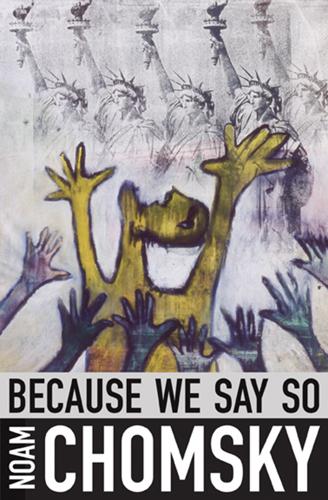
Because We Say So
by
Noam Chomsky
A high-speed rail line connects China to Kazakhstan and beyond. The line will presumably reach Turkmenistan, with its rich energy resources, and will probably link with Iran and extend to Turkey and Europe. China has also taken over the major Gwadar port in Pakistan, enabling it to obtain oil from the Middle East while avoiding the Hormuz and Malacca straits, which are clogged with traffic and U.S.-controlled. The Pakistani press reports that “crude oil imports from Iran, the Arab Gulf states and Africa could be transported overland to northwest China through the port.” At its Tehran summit in August, the Non-Aligned Movement reiterated the long-standing proposal to mitigate or end the threat of nuclear weapons in the Middle East by establishing a zone free of weapons of mass destruction.
…
W., 124 Bush, George W., 84, 107, 178, 189 Butler, Lee, 34, 60, 84, 164, 165 California, 37, 157, 163 Cambanis, Thanassis, 169 Cambodia, 31 Camp David, 126 Canada, 37, 41, 86, 98, 100–101, 141 Cardoso, Fernando Henrique, 42 Carothers, Thomas, 42, 112 Carr, David, 80 Carriles, Luis Posada, 123, 137 Cartagena, Colombia, 41 Carter, Jimmy, 39, 47 Cast Lead operation, 78, 100 Castro, Fidel, 155 Central America, 109, 176, 180 Central Asia, 84 Chabahar port, 84 Charter of Liberties, 51 Charter of the Forest, 52–53 Cheney, Dick, 178 Chevron, 181 Chile, 37, 111 China, 22, 25, 33, 55–56, 85, 90–91, 141, 171 Chomsky, Noam, 89 Churchill, Winston, 51 Clapper, James, 157 Climate Vulnerability Monitor, 63–64 Clinton, Bill, 49, 112, 116, 126, 132, 142, 171, 189 Coatsworth, John, 48 Cockburn, Patrick, 117, 190 Cold War, 48, 157, 163, 169, 175 Cole, Juan, 74 Collier, Sean, 105 Colombia, 41–43 Community of Latin American and Caribbean States, 41 Comprehensive Nuclear-Test-Ban Treaty (CTBT), 136 Cook, Jonathan, 73 Cooper, Belinda, 47 Copenhagen, 54 Council on Foreign Relations, 21 Crimea, 169, 172 Cuba, 41, 55–56, 61, 123, 137–138, 155, 172 Cuban missile crisis, 55, 57, 169–170 Cushing, Oklahoma, 166 Dayan, Moshe, 77 Declaration of Principles, 125–127, 126–127 Dell, 91 Delta Cost Project, 39 Democratic Republic of Congo, 180 Democrats, 135 de Waal, Alex, 179 Dewey, John, 93, 149, 151 Dow Chemical Company, 45–46 Dulles, Allen, 180 Dunn, David Hastings, 160–161 Durand Line, 116 Durban, South Africa, 21 Eastern Congo, 53 East European, 48 East Germany, 171 Eban, Abba, 78 Economic Policy Institute (EPI), 37–38 Ecuador, 98 Egypt, 33, 71, 74, 78, 99–100, 124, 147, 187, 190 Ehrenberg, Ronald G., 37 Eiland, Giora, 57 Eisenhower, 180 Eldar, Shlomi, 185 el-Haddad, Laila, 75 Ellsberg, Daniel, 157, 165 El Salvador, 53, 180 Emerson, Ralph Waldo, 38 Engel, Jeffrey A., 131 Environmental Literacy Improvement Act, 95 Environmental Protection Agency, 64 EPI, 37–38 Eshkol, Levi, 78 Euphrates, 189 Europe, 60, 85, 89–90, 99, 117, 163, 184, 191 European Union (EU), 70, 140 Exxon Mobil, 181 Fall, Bernard, 30 Fallujah, 46, 155 Farr, Warner, 34 Fatah, 184 Fertile Crescent, 189 Fosse, Erik, 100 France, 25, 121, 179 Friedman, Thomas, 129 Gadhafi, Moammar, 179, 180 Galilee, 118 Gallagher, Kelly Sims, 94 Gavin, John, 111 Gaviria, Cesar, 42 Gavish, Yeshayahu, 77 Gaza, 26, 27, 60, 69–82, 99–101, 127, 183, 185–187 Gaza Strip, 72, 77, 80, 126, 183 Gearty, Conor, 148 Germany, 22, 59, 171 Gilbert, Mads, 100 Gilens, Martin, 62, 148 Gillis, Justin, 63 Gisha, 73 Gladstone, Rick, 139 Gleijeses, Piero, 156 Gopal, Anand, 178 Gorbachev, Mikhail, 171 Gordon, Michael, 139 Gould, Eliga H., 138 Grandin, Greg, 124 Grappo, Gary, 131 Great Charter, 31, 51 Greece, 189–190 Greenland, 191 Green Line, 78 Greenwald, Glenn, 42, 173–175 Guangcheng, Chen, 47 Guantánamo Bay, 32, 172, 174 Guatemala, 109–113, 154, 180 Gwadar port, 85 Habeas Corpus Act, 51–52 Halliday, Denis, 189 Hamas, 27, 70, 71, 78, 80, 184–186 Hardin, Garrett, 53 Harrison, Selig, 140 Hass, Amira, 102, 186 Hayden, Michael, 154 Hebron, 185 Heidegger, Martin, 190 Helsinki, 85, 87, 140 Hewlett-Packard, 91 Hezbollah, 190 Hiroshima, 55, 57, 86 Honduras, 154, 180 Hormuz strait, 85 Humboldt, Wilhelm von, 145 Huntington, Samuel P., 136, 158, 175 Hussein, Saddam, 32, 35, 60, 131, 142 India, 25, 33, 35, 45, 57, 60, 84, 90, 141, 192 Indian Olympic Association, 45 Indochina, 30, 170, 172 Indyk, Martin, 128 Intergovernmental Panel on Climate Change (IPCC), 23, 96, 190–191 International Atomic Energy Agency, 65 International Criminal Court, 79 International Energy Agency (IEA), 22–23 International Olympic Committee, 45 Intifada, 72 Iran, 32–36, 35, 56–57, 59–61, 65, 79, 83–87, 139–142, 153, 169, 190 Iraq, 32–34, 154, 169, 172, 177–178, 189–190 ISIS (Islamic State in Iraq and Syria), 177, 189–190 Israel, 27, 33–36, 57, 59–61, 65–66, 70–74, 77–84, 86, 99–100, 110, 117–118, 125–128, 137, 140–141, 143, 154, 183–187 Israel Defense Forces Southern Command, 77 Istanbul, 119 Italy, 121, 124 Jabari, Ahmed, 79 Jackson, Robert, 177 Japan, 89–91 Jaradat, Arafat, 102 Jarrar, Raed, 178 Jefferson, Thomas, 150–151 Jeju Island, 48–49 Jeong-hyeon, Mun, 48 Jericho area, 126 Jerusalem, 125–127, 126, 190 Jervis, Robert, 136 Jindal, Bobby, 96 Jintao, Hu, 81 John, King, 51, 52 Johnson, 107 Jordan, 77, 125 JSOC, 108 Kaye, David, 136–137 Kazakhstan, 85 Keith Alexander, 158 Keller, Bill, 48 Kennan, George F., 157 Kennedy, John F., 29–30, 55, 56, 131, 170 Kerry, John, 137, 186 Khadr, Omar, 32 Khan Yunis, 73 Khong, Yuen Foong, 170–171 Khrushchev, Nikita, 55, 170 Kinsley, Michael, 111–112 Kirkpatrick, Jeane, 130 Kissinger, Henry, 22, 31, 56–57, 111 Korea, 91 Kornbluh, Peter, 123 Krebs, Ronald R., 27 Kroenig, Matthew, 33 Krosnick, Jon A., 94 Krugman, Paul, 62 Kuperwasser, Yosef, 26 Kuwait, 131 Kyoto Protocol of 1997, 21 Laos, 30–31, 107–108 Latin America, 44, 48, 90, 111–112, 122, 124 Latin American Commission on Drugs and Democracy, 42 Leahy, Sen. Patrick, 187 Lebanon, 35, 60, 115, 118 Libya, 25–26, 180 Lindsey, Graham, 122 Lipner, Shalom, 26 Lozada, Gonzalo Sánchez de, 123 Lumumba, Patrice, 180 MacInnis, Bo, 94 Madison, James, 149–150 Madrid, 125–127 Magna Carta, 31, 32, 51, 160, 174 Malacca strait, 85 Malkin, Elisabeth, 112 Mandela, Nelson, 32 Mankell, Henning, 99 Manning, Bradley, 122 Manning, Chelsea, 157–158 Maoz, Zeev, 34, 35 Marines, 46 Marshall Islands, 86 Martí, José, 153 Marx, Karl, 149, 151 McChesney, Robert W., 93 McChrystal, Stanley A., 160 McCoy, Alfred, 108 McGuiness, Margaret E., 31 Mearsheimer, John, 158 Meir, Golda, 77 Menachem Begin, 69 Mexico, 39, 42–43, 116, 147, 154 Miami, 124, 137 Micronesia, 86, 141 Middle East, 35–36, 58, 60, 65, 74, 83–87, 117, 153–154, 176, 183, 190 Mill, John Stuart, 145, 149 Mladic, Ratko, 46 Molina, Perez, 42 Monroe Doctrine, 41 Montt, Rios, 110, 111 Morales, Evo, 121–122 Morgenthau, 129–130 Morsi, Mohammed, 74, 75 Moscow, 55, 61 Moynihan, Daniel Patrick, 132 Moyn, Samuel, 47–48 Mozambique, 99 Mubarak, Hosni, 74 Mukhabarat, 99 Murray, William, 138 Namibia, 156 Nasr, Hassan Mustafa Osama, 124 National Defense Authorization Act, 32 Negev, 27–28 Nelson Mandela, 155 Netanyahu, Benjamin, 185 Nevada, 86 New Spirit of the Age, 53 Nicaragua, 111, 113, 180–181 Nicolaides, Kypros, 47 Nile Valley, 189 Nixon, Richard, 24, 64 Non-Aligned Movement (NAM), 60, 84 Norman Ornstein, 135 North American Free Trade Agreement, 116 North Atlantic Treaty Organization (NATO), 25, 160, 163–164, 171 Northern Laos, 31, 108 NPT, 35, 65, 84, 86, 139–141 Nuclear Non-Proliferation Treaty (NPT), 35, 65, 84, 139 Nuremberg Trials, 31, 131, 155 Nystrom, Paul, 54 Obama, Barack, 32, 52, 63, 65, 85–86, 105, 107, 128, 129, 131, 139, 140, 154, 158, 159, 166, 169, 171, 174, 175, 179, 181, 185, 186 Okinawa, 55 Oklahoma, 166 Olmert, Ehud, 71, 73 Olstrom, Elinor, 53 Open Society Institute, 124 Operation Cast Lead, 70, 71, 186 Operation Gatekeeper, 116 Operation Mongoose, 56 Operation Pillar of Defense, 79, 184 Operation Protective Edge, 185 Organization for Economic Cooperation and Development, 62 Organization of American States (OAS), 41, 121 Orwell, George, 26, 29 Oslo, 125 Oslo Accords, 70, 73, 75, 82, 125, 127 Oslo process, 127 Owl of Minerva, 189 Pacific Rim, 53 Pakistan, 35, 57, 106–107, 116, 153, 160, 192 Palau, 86, 128, 141 Palestine, 71, 79, 99, 101, 103, 117, 127–128, 161, 184–185 Palestine Liberation Organization (PLO), 125 Panetta, Leon, 59 Pantucci, Raffaello, 81 Parry, Robert, 110 Pashtuns, 116 Peace Union of Finland, 85 Pearl Harbor, 29 Peck, James, 45, 48 People’s Summit, 54 Peres, Shimon, 127 Peri, Yoram, 69 Petersen, Alexandros, 81 Petrov, Stanislav, 164 Philippines, 108 Phoenicia, 189 Portugal, 42, 121 Powell, Lewis, 39 Power, Samantha, 132 Pretoria, 156 Privacy and Civil Liberties Oversight Board, 158 Program on International Policy Attitudes (PIPA), 21, 22 Putin, Vladimir V., 129, 169, 171 Rabbani, Mouin, 183 Rabin, Yitzhak, 125, 127 Rafah Crossing, 74, 75 Raz, Avi, 77 Reagan, Ronald, 32, 109–111, 163, 175 Red Crescent, 46 Reilly, John, 23 Republicans, 28, 135–136 Riedel, Bruce, 35 Rio+20 Conference, 54 Roberts, Leslie, 106 Rocker, Rudolf, 146, 149 Romney, Mitt, 64, 83 Rose, Frank, 141 Ross, Dennis, 87, 126, 128 Rousseff, Dilma, 121 Roy, Sara, 72, 101 Rubinstein, Danny, 127 Rudoren, Jodi, 141 Rumsfeld, Donald, 178 Russia, 23, 25, 33, 56, 61, 140, 163–164, 171–172 Ryan, Paul, 62 Sakharov, Andrei D., 47 Samidin, 76 San Diego, 158 Sanger, David E., 141 Santos, Juan Manuel, 42 Saudi Arabia, 23, 60, 166, 190 Scahill, Jeremy, 107 Schlesinger, Arthur M., Jr., 55, 138 Schlosser, Eric, 164 Schneider, Nathan, 147 Seko, Mobutu Sese, 180 Shafi, Haidar Abdul, 125 Shalit, Gilad, 27, 79 Shane, Scott, 52 Shehadeh, Raja, 70, 99 Sick, Gary, 57 Silk Road, 85 Sinai Peninsula, 77 Singapore, 91 Smith, Adam, 38, 91, 146 Snowden, Edward J., 121–123, 157, 173–176 Solzhenitsyn, Aleksandr I., 47 Sourani, Raji, 71, 74, 82, 183 South Africa, 21, 25, 110, 155–156 South Vietnam, 29–30, 45 Soviet Union, 48, 164, 175 Spain, 121, 147 Sponeck, Hans von, 189 Stearns, Monteagle, 107 Stevenson, Adlai III, 161 Stiglitz, Joseph E., 38 Stratcom, 164–165 Stratfor, 46 Summer Olympics, 45 Sweden, 61 Swift, Jonathan, 62 Sykes-Picot Agreement, 115 Syria, 117, 131, 154, 177, 180, 189–190 Taiwan, 37, 91 Taksim Square, 118–119 Taliban, 178–179 Tehran, 65, 84, 141 Telhami, Shibley 141, 159 Tigris, 189 Trans-Pacific Partnership, 159 Trilateral Commission, 39 Tripoli, 137 Truman Doctrine, 175 Tsarnaev, Dzhokhar, 105 Turkey, 25, 33, 49, 56, 85, 118, 140, 170 U.K., 35 Ukraine, 169, 171 Union Carbide, 46 Union of South American Nations (UNASUR), 121 United Nations (U.N.), 30, 128, 132, 137 U.N.
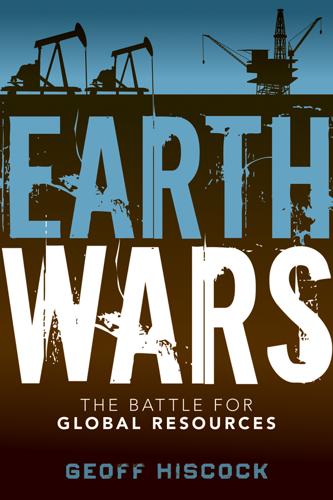
Earth Wars: The Battle for Global Resources
by
Geoff Hiscock
Published 23 Apr 2012
Puducherry (or Pondicherry, as it was known until 2006) was a French colony until 1954, the result of the inroads made 200 years earlier by Joseph-Francois Dupleix, governor general of the French establishments in India and great rival of the British trading clerk-turned-military man, Lord Robert Clive. A thousand years ago, trading vessels would make their way from India east across that part of the Indian Ocean known as the Andaman Sea, into the Malacca Strait and on to Sumatra and the Malay Peninsula, often stopping at the capital of the Srivijaya empire (Palembang) before turning north to Tonkin and the Chinese ports of Beihai, Guangzhou, Quanzhou, Zhangzhou, and Xiamen (Amoy) and Ningbo. Guangzhou, the biggest port of them all, lies at the head of the Pearl River Delta and has a history dating back 3,000 years.
…
Black Sea Blavatnik, Leonard Bogdanov, Vladimir Bohai Sea Bolivia Bontang, Indonesia Borneo Botswana Bouazizi, Mohammed BP Gulf of Mexico in Russia Brahmaputra River Brazil ethanol iron ore nuclear power, uranium oil and gas presalt Bridas Corp BrightSource Energy Brookings Institution Brunei Bryant, Robert BSG Group, BSG Resources Buenos Aires Buffett, Warren Bulgheroni, Carlos Bumi Resources Bunge Burma (Myanmar) Burundi BYD Co Cairo Caithness Energy Calderon, Felipe Calicut, India Cambodia Cameco Canada tar sands LNG shale nuclear power, uranium Canadian Association of Petroleum Producers Canadian Natural Resources Canadian Solar Inc Cantarell oil field, Mexico Carabobo, Venezuela Cargill Caribbean Sea Carrizo Oil & Gas Carroll, Cynthia Caspian Sea Cecil, Ronnie Central Asia Centre for Global Energy Studies Century Aluminium Cerrejon Ceyhan, Turkey Chad Chalco Changlang district, India Chatterji, Zohra Chavez, Hugo Chenab River Cheniere Energy Chesapeake Energy Chevron Chile copper lithium China 12th Five-Year Plan coal Communist Party copper iron ore investment abroad nuclear power oil and gas rare metals solar power water wind power China Coal Energy China Development Bank China Guangdong Nuclear Power Group (CGNPG) China Investment Corp (CIC) China Iron and Steel Association (CISA) China Metallurgical Group Corp China Metallurgical Mines Association China Minmetals China Mobile China National Coal Group China National Nuclear Corp (CNNC) China National Offshore Oil Corp (CNOOC) China National Petroleum Corp (CNPC) China Nonferrous Metal Mining Group Co (CNMC) China Petroleum & Chemical Corp (Sinopec) China Railway Construction Corp China Railway Engineering Corp China Shenhua Coal China State Shipbuilding Corp Chinalco Chodiev, Patokh Chromium Chubu Electric Power Co Chung Joon-yang Chunxiao gas field CITIC Clinton, Bill Clinton, Hillary CNOOC Coal production clean technology metallurgical thermal Coal India Ltd Codelco Codexis COFCO Colombia Common Economic Space Comtec Solar Conde, Alpha Conga, Peru Congo, Democratic Republic (DRC) ConocoPhillips Cosmo Oil Consolidated Thompson Iron Ore Mines Conte, Lansana Copper Cosan Critical Materials Strategy report Cuba Cubapetroleo Currie, Jeffrey Curtis, Nicholas Cyprus Dadis Camara, Moussa Dalian (Port Arthur) D’Amato, Richard Danube River Daqing, China Datong Coal Dauphin, Claude Davis, Mick Daye Non-ferrous Metals Co (DNMC) De Beers DeKastri oil terminal De Margerie, Christophe De Turckheim, Eric Deng Xiaoping Denmark Deripaska, Oleg Diaoyutai (Senkaku islands) Disi-Saq aquifer Domen Kazunari DONG Energy Dongfang Turbine DP Clean Tech Drummond Co Du Plessis, Jan Dubai Dudley, Robert (Bob) Dunand, Marco Dutch East India Company (VOC) Eagle Ford shale field East China Sea East Prinovozemelsky field East Timor (Timor-Leste) EBX Ecuador EDF Elenin, Platon (Boris Berezovsky) Empresas Frisco Enbridge Encana Enercon Enex EngelInvest Group England Eni E.ON Equinox Minerals Erdenes-Tavan Tolgoi Eritrea Escondida mine, Chile Essar Oil Essar Steel Estonia Ethanol Ethiopia Eurasian Energy Corp Eurasian National Resources Corp Europe nuclear power solar power shale wind power European Union (EU) European Wind Energy Association Eurozone Evraz Group Exxon Neftegas ExxonMobil Falklands (Malvinas) Fan Shenggen Fayetteville shale Fedun, Leonid Ferghana Valley, Central Asia Ferreira, Murilo First Quantum First Solar Ford Motor Forrest, Andrew Fortescue Metals Group Foster, Maria das Gracas Silva Fosun International Fox, Josh Fracturing, “fracking” France nuclear power Freeport McMoRan Fresnillo Friedland, Robert Fridman, Mikhail Frolov, Alexander Fu Chengyu Fukushima Gabon Gaddafi, Muammar Galp Energia Gamesa Gandhi, Rahul Gandur, Jean Claude Ganges River Gangotri Glacier Gao Jifan Garnaut, Ross Gas Authority of India Ltd (GAIL) Gazprom Gazprom Neft GCL Poly Energy Gecamines General Electric (GE) GE Wind Energy General Motors (GM) Germany nuclear power solar power wind power Gevo Ghawar oil field, Saudi Arabia Gidropress Gindalbie Metals Gladstone LNG Glasenberg, Ivan Glencore International Glencore Xstrata International Global Wind Energy Council (GWEC) Gold Goldman, Arnold Goldman Sachs Google Gorgon LNG project Grasberg mine, Indonesia Great Artesian Basin Great Lakes Great Man-made River (GMR), Libya Greece Green Energy Technology Greenland Greenland Minerals and Energy Grupo Carso Grupo Mexico Guangzhou Guarani aquifer Guinea Gunvor Group Guodian United Power Technology Gutseriev, Mikhai Hainan island Hancock Coal, Hancock Prospecting Hansen Transmissions Hanwha Solarone Hasankeyf Haynesville shale field Hayward, Tony Hebei Iron & Steel Heilongjiang-Amur aquifer Himalayas Hindalco Hindustan Copper Hitachi Hokkaido Holland Hong Kong Hormuz, Strait of Houser, Trevor HRT Participacoes em Petroleo HSBC Hu, Stern Hunan Valin Hunt, Simon Hydro power Ibragimov, Alijan Idemitsu Kosan Ilisu Dam, Turkey Impeccable, USNS Imperial Oil India coal copper hydropower iron ore nuclear power oil and gas solar power wind power Indian Ocean Indian Oil Corp Ltd (IOCL) Indonesia coal oil and gas Indus River Industrial & Commercial Bank of China Industrias Nucleares do Brazil (INB) Industrias Penoles Inmet Inner Mongolia Yitai Coal Inpex International Atomic Energy Agency International Copper Study Group International Energy Agency International Finance Corp International Food Policy Research Institute International Monetary Fund Interros Inuit Iran South Pars Iraq Iraq National Oil Co (INOC) Ireland Iron ore Israel Istanbul Itaipu Dam Italy ITOCHU Ivanhoe Mines Ivory Coast JA Solar Jaeggi, Daniel Jakarta Jamnagar Japan earthquake and tsunami nuclear power and Fukushima disaster solar power steel industry trading houses Japan Oil, Gas and Metals National Corp (JOGMEC) Japan Petroleum Exploration Co (Japex) Japan Renewable Energy Foundation Jazan JFE Jhelum River Jiang Jiemin Jiang Zemin Jiangsu Shagang Jiangxi Copper Corp Jin Baofang Jinchuan Group Jindal Steel Jordan, Jordan River JSW Steel Jubail JX Holdings Kaltim Prima Coal, Indonesia Kamchatka peninsula Kan Naoto Kansai Electric Power Co Karachaganak field, Kazakhstan Karachi, Pakistan Karakoram Pass Kashagan field, Kazakhstan Kashgar, China Kashmir Katanga Mining Kazmunaigas Khan, German Khartoum, Sudan Kazakhmys Kazakhstan coal copper nuclear test site, uranium oil and gas Kazzinc Kazatomprom Kenya Keystone pipeline Khabarovsk, Russia Khodorkovsky, Mikhail Khudainatov, Eduard Khunjerab Pass Khuzestan province, Iran Kim, Vladimir Kloppers, Marius Koc Holding Koizumi Junichiro Kolkata (Calcutta) Kolomoisky, Igor Korea Electric Power Corp (Kepco) Korea Gas (KoGas) Krishna-Godavari (KG) Basin, India Kuantan, Malaysia Kudankulam, India Kulibayev, Timur Kuwait Kuwait Foreign Petroleum Exploration (Kufpec) Kuwait Petroleum Corp (KPC) Kuzbassrazrezugol Kyrgyzstan Kyushu Electric Power Co Kvanefjeld, Greenland Lagos Lanco Infratech Laos Las Bambas, Peru Lavrov, Sergey LDK Solar Lead Lebanon Legacy Iron Ore Li Keqiang Li Xianshou Li Yihuang Liang Guanglie Liberia Libya Lifton, Jack Liquefied natural gas (LNG) Lisin, Vladimir Lithium Lithuania Lombok Strait Lomonosov ridge Lorenz, Edward Los Bronces, Chile Louis Dreyfus Lu Tingxiu Lu Xiangyang LUKOIL Lumwana, Zambia Lundin Mining Lynas Corp Ma Zhaoxu Maanshan Iron & Steel Macarthur Coal McArthur River McClendon, Aubrey McMahon Line MacMines AustAsia Madagascar Magnitogorsk Iron & Steel (MMK) Makhmudov, Iskander Malacca, Strait of Malaysia Malawi Malvinas (Falklands) Manila Mao Zedong Marcellus shale field Marubeni Corp Mary River Masdar Mashkevich, Alexander Mechel Medcalf, Rory Mediterranean Sea Medvedev, Dmitry MEG Energy Mehta, Sureesh Mekong River Mekong River Commission Melnichenko, Andrey MEMC Mercuria Group Merkel, Angela Metalloinvest Metorex Mexico Mexico City Mexico, Gulf of Miao Liansheng MidAmerican Energy Middle East Mikhelson, Leonid Miller, Alexei Mineralogy/Resourcehouse Mittal, Lakshmi Minmetals Resources Mitsubishi Chemical Mitsubishi Corp Mitsubishi Electric Mitsubishi Heavy Industries Mitsui & Co Modi, Narendra Molycorp Mongolia coal copper uranium Mongolia, Inner Montana Resources Morocco Mordashov, Alexei Mount Weld, Australia Mountain Pass, California Mozambique Mulva, Jim Mumbai (Bombay) Muziris, India Myanmar (Burma) Nabucco project Namcha Barwa, Tibet Namibia Nansha (Spratlys) National Iranian Oil Co (NIOC) National Oil Co of Libya National Mineral Development Corp (NMDC), India National Thermal Power Corp (NTPC), India Natuna field Natural gas Nazarbayev, Nursultan Neelum river Neira, Dr Maria Netherlands New Delhi New Hope Coal Newcastle, Australia Newmont Mining NewZim Steel Niger Nigeria Nigerian National Petroleum Corp Nile River Ningbo Niobrara shale field Niobium Nippon Mining Nippon Oil Nippon Steel Noble Group Noda Yoshihiko Nomura China Non-Proliferation Treaty Norilsk Nickel North Atlantic Gyre North Caspian Operating Co North Korea North Pacific Gyre North Pars field, Iran North Pole North Slope, Alaska North West Shelf, Australia Northern Sea Route, Russia Northwest Passage, Canada Norway Novatek Novolipetsk Steel (NLMK) NRG Energy Nubian Sandstone aquifer Nuclear power Nuclear Power Corp of India Ltd (NPCIL) NUKEM Nunavut Obama, Barack Occidental Petroleum Corp Ogallala aquifer OGX Petroleo & Gas Ohmae Kenichi Oil & Natural Gas Corp (ONGC) Oil India Ltd (OIL) Olam International Olympic Dam Oman Ombai Strait ONEXIM Group ONGC Videsh Opium Wars Organization of Petroleum Exporting Countries (OPEC) Origin Energy Oryx Petroleum Osaka Gas Osborne, Milton Oyu Tolgoi, Mongolia Palmer, Clive Pan American Energy Papua New Guinea Paracels Pakistan Paraguay Paraná River Pars Oil & Gas Co Pasha Bulker Patna Peabody Energy Pearl River Pemakochung monastery, Tibet Pemex Peng Xiaofeng Penn West Energy Persian Gulf Pertamina Peru Petrobras PetroChina PetroHawk Energy Petroleos de Venezuela (PDVSA) Petronas Petronet LNG PetroVietnam Philippines Pioneer Natural Resources Pilbara iron ore region, Australia Poland Polo, Marco Popov, Sergey Port Arthur (Dalian) Portugal POSCO Potanin, Vladimir Potash supplies Poussenkova, Dr Nina Praj Industries Pratas islands (Dongsha) Prelude LNG project, Australia Premier Oil Prigorodnoye, Russia PrivatGroup Probo Koala Prodeco Prokhorov, Mikhail Prokopyevskugol PTT Exploration & Production Puducherry (Pondicherry), India Punjab province, Pakistan Putin, Vladimir Qatar QatarGas Qatar General Petroleum Corp (QGPC) Qatar Investment Authority Qatar Petroleum Qteros Quadra FNX Mining Queensland coal basins (Bowen, Galilee, Surat) Rabigh, Saudi Arabia RAIPON Raizen Rare earths Rare metals and materials (indium, gallium, tellurium) Ras Tanura RasGas Rashtriya Ispat Nagam (Vizag Steel) Raspadskaya Rashnikov, Viktor Rave, Dr Klaus Ravi River Red Sea Refineries Reliance Industries ReneSola Renewable Energy Policy Network (REN21) REpower Repsol Repsol Brazil Repsol-YPF Rich, Marc Rio de Janeiro Rio Tinto Plc/Ltd coal copper iron ore uranium Rinehart, Gina Riversdale Mining Roeslani, Rosan Rosatom Rosneft Ross Sea Rothschild, Nathaniel Rousseff, Dilma Royal Dutch Shell Royal Society of Canada Ruia, Shashi and Ravi Rusal RusHydro Russia coal iron ore oil and gas nuclear/uranium Russian Far East Russky Ugol (Russian Coal) Russneft Rwanda RWE Power Saami Sabic Salar de Atacama Salar de Cauchari Salar de Olaroz Salar de Uyuni Sakhalin Sakhalin Oil & Gas Development Saleh, Ali Abdullah Salween River Samruk Energo Samruk Kazyna Samsung Electronics Samsung Heavy Industries Sanaa basin, Yemen Santos basin Santos Ltd Sao Paulo Sargasso Sea Saudi Arabia Saudi Aramco Sawyer, Steve Sechin, Igor Senkaku islands Serageldin, Ismail Sesa Goa Severstal Shanghai Shandong Iron & Steel Group Shanxi Meijin Energy Sharp Corp Shatt al-Arab waterway Shell Australia LNG Shen Wenrong Shenzhen Shi Zhengrong Shougang Beijing Group Shvidler, Eugene Siachen Glacier Siberia Siberian Coal Energy Co (SUEK) Sibneft Siemens Sierra Gorda, Chile Sierra Leone Silver Simandou, Guinea Sindh province, Pakistan Singapore Singh, Manmohan Sino American Silicon SinoHydro Sinopec (China Petroleum & Chemical Corp) Sinosteel Midwest Corp Sinovel Wind Sistema Slavneft Slovakia Soeryadjaya, Edwin SoftBank Sogo Shosha Sojitz Solar power Solar Reserve Son Masayoshi Sonangol Sonatrach South Africa South America South China Sea South Kara Sea South Korea South Kuzbass Coal South Pars field, Iran South Sudan South Yolotan, Turkmenistan Southeast Anatolia Development (GAP) Southeast Asia Southern California Edison Soya Strait Spain Spratlys State Grid, China State Oil Company of Azerbaijan Republic (SOCAR) Statoil Steel Authority of India Ltd (SAIL) Steinmetz, Beny Sterlite Industries Strait of Malacca Strait of Hormuz Strothotte, Willy SUAL Sudan Sumatra Sumitomo Chemicals Sumitomo Corp Sumitomo Metal Suncor Energy Sunda Strait Sundance Resources SunPower Suntech Surgutneftegas Sutlej River Suzlon Energy Swaminathan, M.S.
…
Black Sea Blavatnik, Leonard Bogdanov, Vladimir Bohai Sea Bolivia Bontang, Indonesia Borneo Botswana Bouazizi, Mohammed BP Gulf of Mexico in Russia Brahmaputra River Brazil ethanol iron ore nuclear power, uranium oil and gas presalt Bridas Corp BrightSource Energy Brookings Institution Brunei Bryant, Robert BSG Group, BSG Resources Buenos Aires Buffett, Warren Bulgheroni, Carlos Bumi Resources Bunge Burma (Myanmar) Burundi BYD Co Cairo Caithness Energy Calderon, Felipe Calicut, India Cambodia Cameco Canada tar sands LNG shale nuclear power, uranium Canadian Association of Petroleum Producers Canadian Natural Resources Canadian Solar Inc Cantarell oil field, Mexico Carabobo, Venezuela Cargill Caribbean Sea Carrizo Oil & Gas Carroll, Cynthia Caspian Sea Cecil, Ronnie Central Asia Centre for Global Energy Studies Century Aluminium Cerrejon Ceyhan, Turkey Chad Chalco Changlang district, India Chatterji, Zohra Chavez, Hugo Chenab River Cheniere Energy Chesapeake Energy Chevron Chile copper lithium China 12th Five-Year Plan coal Communist Party copper iron ore investment abroad nuclear power oil and gas rare metals solar power water wind power China Coal Energy China Development Bank China Guangdong Nuclear Power Group (CGNPG) China Investment Corp (CIC) China Iron and Steel Association (CISA) China Metallurgical Group Corp China Metallurgical Mines Association China Minmetals China Mobile China National Coal Group China National Nuclear Corp (CNNC) China National Offshore Oil Corp (CNOOC) China National Petroleum Corp (CNPC) China Nonferrous Metal Mining Group Co (CNMC) China Petroleum & Chemical Corp (Sinopec) China Railway Construction Corp China Railway Engineering Corp China Shenhua Coal China State Shipbuilding Corp Chinalco Chodiev, Patokh Chromium Chubu Electric Power Co Chung Joon-yang Chunxiao gas field CITIC Clinton, Bill Clinton, Hillary CNOOC Coal production clean technology metallurgical thermal Coal India Ltd Codelco Codexis COFCO Colombia Common Economic Space Comtec Solar Conde, Alpha Conga, Peru Congo, Democratic Republic (DRC) ConocoPhillips Cosmo Oil Consolidated Thompson Iron Ore Mines Conte, Lansana Copper Cosan Critical Materials Strategy report Cuba Cubapetroleo Currie, Jeffrey Curtis, Nicholas Cyprus Dadis Camara, Moussa Dalian (Port Arthur) D’Amato, Richard Danube River Daqing, China Datong Coal Dauphin, Claude Davis, Mick Daye Non-ferrous Metals Co (DNMC) De Beers DeKastri oil terminal De Margerie, Christophe De Turckheim, Eric Deng Xiaoping Denmark Deripaska, Oleg Diaoyutai (Senkaku islands) Disi-Saq aquifer Domen Kazunari DONG Energy Dongfang Turbine DP Clean Tech Drummond Co Du Plessis, Jan Dubai Dudley, Robert (Bob) Dunand, Marco Dutch East India Company (VOC) Eagle Ford shale field East China Sea East Prinovozemelsky field East Timor (Timor-Leste) EBX Ecuador EDF Elenin, Platon (Boris Berezovsky) Empresas Frisco Enbridge Encana Enercon Enex EngelInvest Group England Eni E.ON Equinox Minerals Erdenes-Tavan Tolgoi Eritrea Escondida mine, Chile Essar Oil Essar Steel Estonia Ethanol Ethiopia Eurasian Energy Corp Eurasian National Resources Corp Europe nuclear power solar power shale wind power European Union (EU) European Wind Energy Association Eurozone Evraz Group Exxon Neftegas ExxonMobil Falklands (Malvinas) Fan Shenggen Fayetteville shale Fedun, Leonid Ferghana Valley, Central Asia Ferreira, Murilo First Quantum First Solar Ford Motor Forrest, Andrew Fortescue Metals Group Foster, Maria das Gracas Silva Fosun International Fox, Josh Fracturing, “fracking” France nuclear power Freeport McMoRan Fresnillo Friedland, Robert Fridman, Mikhail Frolov, Alexander Fu Chengyu Fukushima Gabon Gaddafi, Muammar Galp Energia Gamesa Gandhi, Rahul Gandur, Jean Claude Ganges River Gangotri Glacier Gao Jifan Garnaut, Ross Gas Authority of India Ltd (GAIL) Gazprom Gazprom Neft GCL Poly Energy Gecamines General Electric (GE) GE Wind Energy General Motors (GM) Germany nuclear power solar power wind power Gevo Ghawar oil field, Saudi Arabia Gidropress Gindalbie Metals Gladstone LNG Glasenberg, Ivan Glencore International Glencore Xstrata International Global Wind Energy Council (GWEC) Gold Goldman, Arnold Goldman Sachs Google Gorgon LNG project Grasberg mine, Indonesia Great Artesian Basin Great Lakes Great Man-made River (GMR), Libya Greece Green Energy Technology Greenland Greenland Minerals and Energy Grupo Carso Grupo Mexico Guangzhou Guarani aquifer Guinea Gunvor Group Guodian United Power Technology Gutseriev, Mikhai Hainan island Hancock Coal, Hancock Prospecting Hansen Transmissions Hanwha Solarone Hasankeyf Haynesville shale field Hayward, Tony Hebei Iron & Steel Heilongjiang-Amur aquifer Himalayas Hindalco Hindustan Copper Hitachi Hokkaido Holland Hong Kong Hormuz, Strait of Houser, Trevor HRT Participacoes em Petroleo HSBC Hu, Stern Hunan Valin Hunt, Simon Hydro power Ibragimov, Alijan Idemitsu Kosan Ilisu Dam, Turkey Impeccable, USNS Imperial Oil India coal copper hydropower iron ore nuclear power oil and gas solar power wind power Indian Ocean Indian Oil Corp Ltd (IOCL) Indonesia coal oil and gas Indus River Industrial & Commercial Bank of China Industrias Nucleares do Brazil (INB) Industrias Penoles Inmet Inner Mongolia Yitai Coal Inpex International Atomic Energy Agency International Copper Study Group International Energy Agency International Finance Corp International Food Policy Research Institute International Monetary Fund Interros Inuit Iran South Pars Iraq Iraq National Oil Co (INOC) Ireland Iron ore Israel Istanbul Itaipu Dam Italy ITOCHU Ivanhoe Mines Ivory Coast JA Solar Jaeggi, Daniel Jakarta Jamnagar Japan earthquake and tsunami nuclear power and Fukushima disaster solar power steel industry trading houses Japan Oil, Gas and Metals National Corp (JOGMEC) Japan Petroleum Exploration Co (Japex) Japan Renewable Energy Foundation Jazan JFE Jhelum River Jiang Jiemin Jiang Zemin Jiangsu Shagang Jiangxi Copper Corp Jin Baofang Jinchuan Group Jindal Steel Jordan, Jordan River JSW Steel Jubail JX Holdings Kaltim Prima Coal, Indonesia Kamchatka peninsula Kan Naoto Kansai Electric Power Co Karachaganak field, Kazakhstan Karachi, Pakistan Karakoram Pass Kashagan field, Kazakhstan Kashgar, China Kashmir Katanga Mining Kazmunaigas Khan, German Khartoum, Sudan Kazakhmys Kazakhstan coal copper nuclear test site, uranium oil and gas Kazzinc Kazatomprom Kenya Keystone pipeline Khabarovsk, Russia Khodorkovsky, Mikhail Khudainatov, Eduard Khunjerab Pass Khuzestan province, Iran Kim, Vladimir Kloppers, Marius Koc Holding Koizumi Junichiro Kolkata (Calcutta) Kolomoisky, Igor Korea Electric Power Corp (Kepco) Korea Gas (KoGas) Krishna-Godavari (KG) Basin, India Kuantan, Malaysia Kudankulam, India Kulibayev, Timur Kuwait Kuwait Foreign Petroleum Exploration (Kufpec) Kuwait Petroleum Corp (KPC) Kuzbassrazrezugol Kyrgyzstan Kyushu Electric Power Co Kvanefjeld, Greenland Lagos Lanco Infratech Laos Las Bambas, Peru Lavrov, Sergey LDK Solar Lead Lebanon Legacy Iron Ore Li Keqiang Li Xianshou Li Yihuang Liang Guanglie Liberia Libya Lifton, Jack Liquefied natural gas (LNG) Lisin, Vladimir Lithium Lithuania Lombok Strait Lomonosov ridge Lorenz, Edward Los Bronces, Chile Louis Dreyfus Lu Tingxiu Lu Xiangyang LUKOIL Lumwana, Zambia Lundin Mining Lynas Corp Ma Zhaoxu Maanshan Iron & Steel Macarthur Coal McArthur River McClendon, Aubrey McMahon Line MacMines AustAsia Madagascar Magnitogorsk Iron & Steel (MMK) Makhmudov, Iskander Malacca, Strait of Malaysia Malawi Malvinas (Falklands) Manila Mao Zedong Marcellus shale field Marubeni Corp Mary River Masdar Mashkevich, Alexander Mechel Medcalf, Rory Mediterranean Sea Medvedev, Dmitry MEG Energy Mehta, Sureesh Mekong River Mekong River Commission Melnichenko, Andrey MEMC Mercuria Group Merkel, Angela Metalloinvest Metorex Mexico Mexico City Mexico, Gulf of Miao Liansheng MidAmerican Energy Middle East Mikhelson, Leonid Miller, Alexei Mineralogy/Resourcehouse Mittal, Lakshmi Minmetals Resources Mitsubishi Chemical Mitsubishi Corp Mitsubishi Electric Mitsubishi Heavy Industries Mitsui & Co Modi, Narendra Molycorp Mongolia coal copper uranium Mongolia, Inner Montana Resources Morocco Mordashov, Alexei Mount Weld, Australia Mountain Pass, California Mozambique Mulva, Jim Mumbai (Bombay) Muziris, India Myanmar (Burma) Nabucco project Namcha Barwa, Tibet Namibia Nansha (Spratlys) National Iranian Oil Co (NIOC) National Oil Co of Libya National Mineral Development Corp (NMDC), India National Thermal Power Corp (NTPC), India Natuna field Natural gas Nazarbayev, Nursultan Neelum river Neira, Dr Maria Netherlands New Delhi New Hope Coal Newcastle, Australia Newmont Mining NewZim Steel Niger Nigeria Nigerian National Petroleum Corp Nile River Ningbo Niobrara shale field Niobium Nippon Mining Nippon Oil Nippon Steel Noble Group Noda Yoshihiko Nomura China Non-Proliferation Treaty Norilsk Nickel North Atlantic Gyre North Caspian Operating Co North Korea North Pacific Gyre North Pars field, Iran North Pole North Slope, Alaska North West Shelf, Australia Northern Sea Route, Russia Northwest Passage, Canada Norway Novatek Novolipetsk Steel (NLMK) NRG Energy Nubian Sandstone aquifer Nuclear power Nuclear Power Corp of India Ltd (NPCIL) NUKEM Nunavut Obama, Barack Occidental Petroleum Corp Ogallala aquifer OGX Petroleo & Gas Ohmae Kenichi Oil & Natural Gas Corp (ONGC) Oil India Ltd (OIL) Olam International Olympic Dam Oman Ombai Strait ONEXIM Group ONGC Videsh Opium Wars Organization of Petroleum Exporting Countries (OPEC) Origin Energy Oryx Petroleum Osaka Gas Osborne, Milton Oyu Tolgoi, Mongolia Palmer, Clive Pan American Energy Papua New Guinea Paracels Pakistan Paraguay Paraná River Pars Oil & Gas Co Pasha Bulker Patna Peabody Energy Pearl River Pemakochung monastery, Tibet Pemex Peng Xiaofeng Penn West Energy Persian Gulf Pertamina Peru Petrobras PetroChina PetroHawk Energy Petroleos de Venezuela (PDVSA) Petronas Petronet LNG PetroVietnam Philippines Pioneer Natural Resources Pilbara iron ore region, Australia Poland Polo, Marco Popov, Sergey Port Arthur (Dalian) Portugal POSCO Potanin, Vladimir Potash supplies Poussenkova, Dr Nina Praj Industries Pratas islands (Dongsha) Prelude LNG project, Australia Premier Oil Prigorodnoye, Russia PrivatGroup Probo Koala Prodeco Prokhorov, Mikhail Prokopyevskugol PTT Exploration & Production Puducherry (Pondicherry), India Punjab province, Pakistan Putin, Vladimir Qatar QatarGas Qatar General Petroleum Corp (QGPC) Qatar Investment Authority Qatar Petroleum Qteros Quadra FNX Mining Queensland coal basins (Bowen, Galilee, Surat) Rabigh, Saudi Arabia RAIPON Raizen Rare earths Rare metals and materials (indium, gallium, tellurium) Ras Tanura RasGas Rashtriya Ispat Nagam (Vizag Steel) Raspadskaya Rashnikov, Viktor Rave, Dr Klaus Ravi River Red Sea Refineries Reliance Industries ReneSola Renewable Energy Policy Network (REN21) REpower Repsol Repsol Brazil Repsol-YPF Rich, Marc Rio de Janeiro Rio Tinto Plc/Ltd coal copper iron ore uranium Rinehart, Gina Riversdale Mining Roeslani, Rosan Rosatom Rosneft Ross Sea Rothschild, Nathaniel Rousseff, Dilma Royal Dutch Shell Royal Society of Canada Ruia, Shashi and Ravi Rusal RusHydro Russia coal iron ore oil and gas nuclear/uranium Russian Far East Russky Ugol (Russian Coal) Russneft Rwanda RWE Power Saami Sabic Salar de Atacama Salar de Cauchari Salar de Olaroz Salar de Uyuni Sakhalin Sakhalin Oil & Gas Development Saleh, Ali Abdullah Salween River Samruk Energo Samruk Kazyna Samsung Electronics Samsung Heavy Industries Sanaa basin, Yemen Santos basin Santos Ltd Sao Paulo Sargasso Sea Saudi Arabia Saudi Aramco Sawyer, Steve Sechin, Igor Senkaku islands Serageldin, Ismail Sesa Goa Severstal Shanghai Shandong Iron & Steel Group Shanxi Meijin Energy Sharp Corp Shatt al-Arab waterway Shell Australia LNG Shen Wenrong Shenzhen Shi Zhengrong Shougang Beijing Group Shvidler, Eugene Siachen Glacier Siberia Siberian Coal Energy Co (SUEK) Sibneft Siemens Sierra Gorda, Chile Sierra Leone Silver Simandou, Guinea Sindh province, Pakistan Singapore Singh, Manmohan Sino American Silicon SinoHydro Sinopec (China Petroleum & Chemical Corp) Sinosteel Midwest Corp Sinovel Wind Sistema Slavneft Slovakia Soeryadjaya, Edwin SoftBank Sogo Shosha Sojitz Solar power Solar Reserve Son Masayoshi Sonangol Sonatrach South Africa South America South China Sea South Kara Sea South Korea South Kuzbass Coal South Pars field, Iran South Sudan South Yolotan, Turkmenistan Southeast Anatolia Development (GAP) Southeast Asia Southern California Edison Soya Strait Spain Spratlys State Grid, China State Oil Company of Azerbaijan Republic (SOCAR) Statoil Steel Authority of India Ltd (SAIL) Steinmetz, Beny Sterlite Industries Strait of Malacca Strait of Hormuz Strothotte, Willy SUAL Sudan Sumatra Sumitomo Chemicals Sumitomo Corp Sumitomo Metal Suncor Energy Sunda Strait Sundance Resources SunPower Suntech Surgutneftegas Sutlej River Suzlon Energy Swaminathan, M.S. Sweden Switzerland Syncrude Canada Syr Darya, Tajikistan Syria Tajikistan Takahagi, Mitsunori Taiwan Tangshan Iron & Steel Tanti, Tulsi Tanzania TAPI (Turkmenistan-Afghanistan-Pakistan-India) pipeline project Tata Group Tata, Ratan Tata Steel Tatarstan Tatneft Tavan Tolgoi, Mongolia Tawang Taylor, Ian Technology Metals Research Tenke Fungurume, DR Congo TerraGen Tete province, Mozambique Thailand Thanet wind farm, UK Three Gorges Project, China Tibet, Tibetan Plateau Tigris-Euphrates river basin Tillerson, Rex Timah Timchenko, Gennady Timor Sea Tinkler, Nathan Titanium TNK-BP Trafigura Group Tokarev, Nikolai Tokyo Electric Power Co (Tepco) Tokyo Gas Tongling Non-Ferrous Metals Group Tonkolili, Sierra Leone Tornqvist, Torbjoörn Toshiba Corp Total Toyota Motor Toyota Tsusho TransCanada Corp Transneft Transparency International Trina Solar TRUenergy Tungsten Tunguska, Russia Tunisia Turkey Turkiye Petrolleri Anonim Ortakligi (TPAO) Turkmenistan Uganda Uighur Ukraine Ukrnafta Umicore United Arab Emirates United Kingdom nuclear power wind power UN Human Development Index UN World Water Development Report United States coal copper oil and gas nuclear power pipelines shale Unocal Ural Mining & Metallurgical Co (UGMK) Uranium Uranium One, Canada Uruguay Usmanov, Alisher Utemuratov, Bulat Utica shale field Uzbekistan Vale Vasudeva, Sudhir Vattenfall Vedanta Resources Vekselberg.

The Unbearable Lightness of Scones
by
Alexander McCall Smith
Published 31 Dec 2007
Now they had settled into a reasonably amicable, if slightly strained, modus vivendi in which each kept largely to herself but responded readily and in good grace to the duties of neighbourhood. Social invitations were extended and reciprocated, but they were carefully judged so as not to be too frequent as to lead to any form of imposition. When Domenica had been on field work in the Malacca Straits, her flat had been looked after by Antonia. This had been a convenient arrangement for both of them, but on Domenica’s return she had made the shocking discovery that Antonia had removed a blue Spode teacup from her flat and was using it, quite openly, in her own. It was this teacup that now crossed her mind as she pressed Antonia’s bell.
…
No, James could keep his motorbikes as far as Domenica was concerned. And what would Dilly Emslie advise her? Dilly, of course, had no truck with motorbikes, but would probably advise her to take on another piece of research. That was good advice, but Domenica did not relish the thought of going off into the field again. The Malacca Straits had been enjoyable, in their way, but somehow she did not see herself summoning up the energy to set up a long trip of that sort. What would be required, then, would be something much more local – anthropology did not have to be performed among distant others; it could be pursued in the anthropologist’s back yard.
…
That could change, and probably would; Edinburgh was still sufficiently intimate for there to be no real anonymity. Dilly looked at her friend. “Yes, you need a project, Domenica. A person like you can’t sit around. But …” She was being very careful. The last time they had had this conversation, Domenica had embarked on a highly dangerous field trip to the pirate communities of the Malacca Straits. Providence had already been tempted once, and might not allow for a satisfactory ending if tried again. Domenica, who had been looking out of the window as if expecting inspiration from that quarter, suddenly turned round. “Do you ever get the feeling that there’s something going on in Edinburgh?
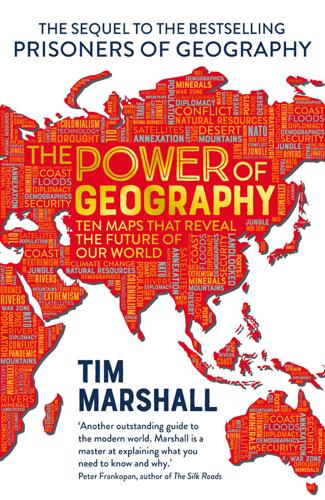
The Power of Geography: Ten Maps That Reveal the Future of Our World
by
Tim Marshall
Published 14 Oct 2021
If enemy troops landed in the Northern Territory they would still be 3,200 kilometres from Sydney, the supply lines would be a nightmare, and getting there would be difficult. However, it is vulnerable to blockade. Most of its imports and exports flow through a series of narrow passageways to the north, many of which could be closed in times of conflict. They include the Malacca, Sunda and Lombok Straits. The Malacca Strait is the shortest route from the Indian Ocean to the Pacific. Just this one passageway sees 80,000 vessels pass through it each year, carrying about a third of the world’s traded goods including 80 per cent of the oil heading for Northeast Asia. If these straits were closed then alternative routes would have to be found; for example the oil tankers feeding Japan could try to sail further south, cut across the north of Australia, past Papua New Guinea and out into the Pacific.
…
Who dominates Terra determines the destiny of humankind.’ The categories of orbits surrounding the Earth (not to scale). In previous centuries dominance of Terra relied on placing land and sea forces in strategic positions, jealously guarding the sea routes and entry and exits of choke points such as the Straits of Gibraltar or Malacca Strait. The twentieth century saw air power added to the requirements. In the twenty-first century, positioning assets in Earth Space is a necessity unless a state is prepared to fall far behind its rivals (and allies). Low orbit is also the area where spacecraft seeking to travel beyond the Moon could be refuelled.
…
Horne) 19 Lyons, Sir Edmund 150 M MacArthur, General Douglas 23, 24 Macedonia 143, 148, 160 Macina Empire 222 Macina Liberation Front (MLF) 222–4 Mackinder, Halford 137, 311 Macron, Emmanuel 131, 164, 217–18, 219 Magna Carta 115 Mahan, Alfred 311 Majlis/Iranian parliament 48, 54, 56, 66 Makarios, Archbishop 161 Malacca Straits 21–2 Malaysia 30 Mali 208, 211–16, 218–19, 220, 222, 223–4, 226, 229, 230, 231, 234 Manus 18 Mariam, Major Mengistu Haile 250 Mars, travel to 308, 313 Marshall Plan 285 Martel, Charles 273–4 Mary Queen of Scots 116 Medes people 44–5 Medina Sidonia, Duke of 278 Mediterranean Sea 143, 148, 162, 166, 189 Mellado, General 288 Menilek, Emperor 246 Mesopotamia 45, 46, 57, 192 Metaxas, General Ioannis 153 meteor strikes, potential 325 Mexico 129 MI6 49 Michaletos, Ioannis 159 Middle East x, xiv, 31, 39, 75, 91, 92, 144, 173, 186, 233, 243, 247, 258 migrants xv, 144, 156–8, 188, 217–18, 234, 243, 244, 297 Australia 14, 16–18 Milestones (S.
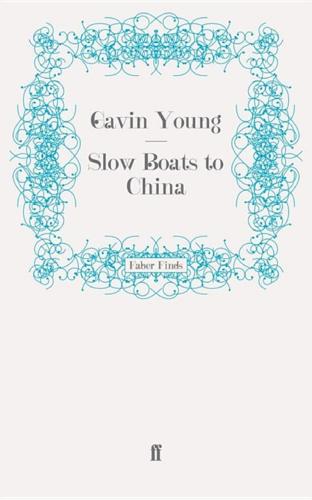
Slow Boats to China
by
Gavin Young
Published 24 Feb 1983
A parade of Malay Muslims chanted ‘Allahu Akbar’ on the Padang, and I ate a plateful of flower crabs at the Anchor Bar of the handsome old Eastern and Oriental Hotel, a small version of Raffles in Singapore, and one of the great hotels of the East. A young European tourist came in from the garden wearing a dressing gown and a white plastic beak to save his nose from the sun, and I wondered what Khalat or Hentry or Dennis Beale would say about that. * The next day we reached the Strait of Malacca. The Malacca Strait and East Coast of Sumatra Pilot said: The Malacca Strait is the main seaway used by vessels from Europe and India bound to Malaysian ports and the China Sea. It provides the shortest routes for tankers trading between the Persian Gulf and Japan. The strait not only is narrow and busy, but contains critical areas like one called One-Fathom Bank, a menace of shoals and sand waves.
…
‘Kindly spell that.’ Twenty four The voyage of the Chidambaram to Penang and Singapore was an uneventful glide over submissive blue waters. She had formerly belonged to Messageries Maritimes, and had plied between Dunkerque, Le Havre and the Canaries. Since her maiden crossing of the Bay of Bengal and the Malacca Strait in 1973, she had carried hundreds of holidaying Malay and Indian students, workers and businessmen back and forth with stabilized aplomb. There had been a rampage when Madrasi students ran wild, assaulting passengers, throwing chairs overboard, even stripping a girl or two – so terrifying them, the purser told me, that they wanted to jump overboard.
…
Nothing could be more blunt than this warning. Captain Choudhuri talked about collisions in the strait. ‘There are quite a few unreported – if it’s just two ships grazing or bumping and no one hurt. In the latest the smaller ship went down. Luckily, no one was lost.’ Like the Strait of Hormuz or the Suez Canal, the Malacca Strait is a funnel of the sea world where the appalling vision of colliding supertankers is a distinct possibility. There are smaller hazards, too. The water was dotted with tiny Sumatran or Malaysian motor trawlers, seemingly contemptuous of our approach, which chugged across our bows and sometimes made us change course.
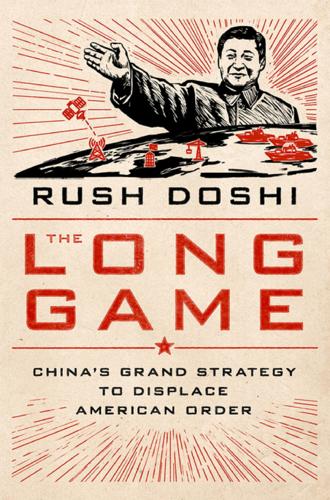
The Long Game: China's Grand Strategy to Displace American Order
by
Rush Doshi
Published 24 Jun 2021
China argued that a proposed ASEAN maritime information center be placed in Tianjin, which could have given China influence over information provision.130 China pressured states not to join Washington’s post-9/11 Regional Maritime Security Initiative (RMSI), which involved using US Special Forces, new bases in Malaysia, and high-speed vessels to secure the Malacca Straits from terrorist attack and piracy.131 Seeing this effort as part of a containment plan, China suggested an alternative eleven-nation joint China-ASEAN patrol to secure the sea lines.132 China even suggested that “bilateral agreements between ASEAN countries and outside powers,” such as alliances with the United States, should not supersede multilateral ones made through ASEAN that might limit alliance cooperation or participation in RMSI.133 Finally, China was the first nuclear state to support ASEAN’s interest in nuclear weapons-free zones in Southeast Asia, which if successful, could have complicated US efforts to station strategic nuclear forces or nuclear-equipped vessels and aircraft in the region, thereby limiting US freedom of maneuver without affecting China, which did not deploy such forces abroad.134 Finally, China sought to reassure ASEAN states to prevent its encirclement.
…
For Germany, this “Berlin-Baghdad railway” would not only bypass the preeminent British navy, it would also spread German influence deeper into the Middle East, open up the Ottoman Empire as an export market and source for raw materials, and offer Germany a way to protect its overseas possessions in Africa. Germany’s grand infrastructure ambitions then were hardly unique: Britain had built the Suez Canal, the United States had built the Panama Canal, and the Japanese had hoped to build their own canal across Thailand’s “Isthmus of Kra” to bypass British control over Singapore and the Malacca Strait. All understood that geography could reshape geopolitics. Germany’s project, which saw significant progress but fell short of completion due to the First World War, could have revolutionized Eurasia’s strategic geography. But where that program failed, China’s Belt and Road has continued onward.
…
For example, an analysis shows BRI’s port projects, which constitute an “easy case” for evaluating profitability since maritime trade dramatically exceeds overland trade, are generally struggling. An analysis of their finances by the think tank C4ADS finds that “several marked examples of unprofitability—suggest that Beijing is actively seeking to leverage the geopolitical capacity of its port projects.”34 For example, China’s $8 billion investment in a Malaysian port near the Malacca Strait is evaluated as completely redundant by the World Bank given that nearby existing ports remain under capacity. China’s Hambanatota port in Sri Lanka has lost hundreds of millions of dollars since it opened and has virtually no real cargo traffic (its traffic is one-hundredth the amount of its neighboring port in Columbo), but China has nonetheless assumed the liabilities and taken a ninety-nine-year lease of the port.35 China’s construction of the Gwadar port in Pakistan is similarly unprofitable but sees continued Chinese investment, and China has undertaken a forty-year lease and assumed its liabilities as well.
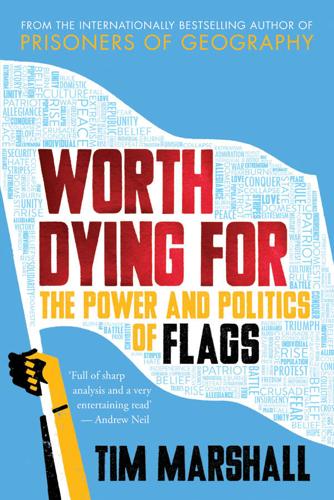
Worth Dying For: The Power and Politics of Flags
by
Tim Marshall
Published 21 Sep 2016
It is visible around the world in far-flung places such as the Democratic Republic of Congo, from which China (and others) extracts precious metals, in Angola, where it built a highway to get the metals to port, and in Gwadar, Pakistan, where a port and highway are being built to ship goods up into China, thus avoiding the narrow and de facto American-controlled Malacca Straits between Malaysia and Indonesia. The symbol of the Middle Kingdom has now been seen in nearly every kingdom, republic and territory in the world, reinforcing its rapid expansion and growing influence over the past half-century. It also flies above the artificial islands China has built in the South China Sea, which Beijing says now constitute sovereign Chinese territory.
…
E. 102–103 League of Nations 178–179 see also UN Lebanon 113, 116, 132, 133 Lebedev, General 165 Leeds 55 Lenin, Vladimir 82, 88, 89 Leopold V, Duke 84 Leptis Magna 118 Levant 130 Levy, Paul 62 Liberia 186 Libya 113, 117–119 Lisbon 218 Lombardy 76 London 34–35, 47, 55, 102–103, 188 Long John Silver 230–231 Lorraine 69 Luxembourg 235 M MacArthur, General Douglas 170, 241 Macaulay, Neill 219 Macedonia 3, 90–92 Madison, President James 19 Madrid 58–59 Mahdi 128 Malacca Straits 163 Malawi 184 Malaysia 44, 117, 148, 163 Mali 183 Malta 83 Mandela, Nelson 191–194 Manitoba 46 Mao Zedong 160 Map, Walter 228 Mar, Earl of 41 Martin, St 67–68 Marx, Karl 65, 88 Massachusetts 17 Mazzini, Giuseppe 77 McLaughlin, Donal 249 Meagher, Thomas Francis 54 Mecca 101, 103, 105, 130, 137 Medina 101, 105 Mediterranean Sea 99, 119–120, 136 Mencken, H.
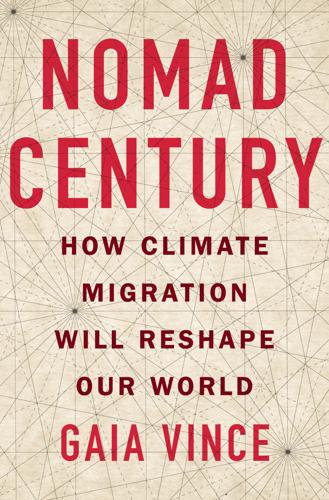
Nomad Century: How Climate Migration Will Reshape Our World
by
Gaia Vince
Published 22 Aug 2022
Singapore and Hong Kong are similar success stories that became rich on the back of better legal systems, less corruption, stronger rule of law and more competent administration. Notably, Singapore and Hong Kong also benefit from their strategic locations: both are gateway cities that control massive trade flows through the Malacca Straits and the Pearl River Delta respectively. Romer’s model wouldn’t be suitable for the needs of the coming decades, of course, as large populations will be migrating away from climate-ravaged lands – and the idea that poor countries exchange sovereignty for a hike out of poverty is likely to prove unpalatable for many.
…
Kung peoples Kutupalong refugee camp, Bangladesh Kyrgyzstan Lagos Lake Chad Lammy, David land ownership language/linguistics; language classes for new arrivals; and nation state Laos Las Vegas Latin America: Amazon region; first nation states in; fragile social systems in; impact of climate emergency; mega-El Niño (1997–8); migrants in Parla, Spain; rivers fed by glaciers; rural to urban migration League of Nations Leipzig liberalism Libya Lima livestock farming: by drone; feeding of animals; impact of drought; inhumane treatment of animals; insects as feed; land and water used for; meat and dairy subsidies; need for huge reduction in Ljubljana, Slovenia locust plagues London Macau Maillard chemical reaction maize production, global Malacca Straits Malaysia Maldives Mali Manchester Mangroves Marijuana marine life: fish populations; impact of global warming; starved of oxygen by algae marshes Mayan civilization Mayors Migration Council McCarthy, Kate McCay, Adam McConnell, Ed Medellín, Colombia media, prejudice against migrants Mediterranean Mekong River Melbourne, Pixel Building Merkel, Angela Mesopotamia Met Office, UK, methane Mexico Mexico City Miami Micronesians Middle East migrant cities: the Arctic as new region for; charter cities option; and circulation of community resources; ‘climate haven’ cities; creation of entirely new cities; as cultural factories; environmental sustainability; evidence of decline of tribalism in; expanding existing cities; in the new north; planning future cities; repurposing/adaptation of; successful urban development/planning in; as synergistic; training for rural migrants; water-management infrastructure migrants/immigrants: arrival in family groups; ‘Bangla’ communities in London; contribution to global GDP; creation of active markets by; distinction between refugees and; dominant hostile narratives of in West; ‘economic migrant’ term; evidence of decline in hostility towards; harnessing potential of; immigrant inclusion programmes; as indentured labour; internal migration; Boris Johnson’s language on; language classes for; levels of patriotism of; living in slums/shanty towns; mentoring and support for; as percentage of global population; racist and prejudicial tropes about; returning to origin countries; seasonal; situations of appalling abuse/danger; state-sponsored support needed for migration: and advantageous genetic modifications; barriers to today; as benefitting everyone; controlled by city authorities; as deeply interwoven with cooperation; and diversified genes/culture; evidence of decline of anti-immigrant feeling; free movement ends in twentieth century; and historic climate change; historical; human displacement at record levels; inherited routes and channels; and mental illness; as not reduced by aid; reluctance to move; and skin colour; of stuff/resources; as survival strategy used widely in nature; as valid and essential part of human nature; world’s major cities created by migration, arguments against/fears around: fears around crime and violence; and jobs; long evolutionary roots to prejudice; in the media; populist politicians; pressure on inadequate host services; prospect of radical change; resting on true/pure national identity idea; security/terrorism issues; and welfare systems migration, climate-driven: Covid cooperation as hopeful example; due to flooding; and geopolitical mindset; global agreement on pathways needed; hypothetical scenarios/models enabling; as inevitable; Kiribati’s ‘migration with dignity’ programme; mass movement already under way; move to higher elevations; national and regional relocation schemes; need for strong nation-states; need to plan practically now; numbers affected today; predicted future numbers; and Refugee Convention (1951); risk of domination by wealthy elites; as solution not problem; speed of movement of climate niches; water issues to be main driver migration, urban; access to health and education; community sponsorship models; family retention of farmland; and intensive infrastructure development; as most effective route out of poverty; population fall due to; role of business in migrant integration; from rural areas; successful management of; as unplanned and iterative; in the West (1850–1910); and workforce shortages in global north Miller, David mineral supples/extraction mining industry Mongla (Bangladesh) Mongolian steppes Morocco Mumbai, mussels Myanmar Nairobi Nansen, Fridtjof nation state: Anderson’s ‘imagined communities’; claims that country is ‘too full’; first created by revolutionaries; and genetic variation; and geopolitical mindset; and language; leases/purchases of territory by; model as often failing; nationality as arbitrary line drawn on map; need for reinvention of; as norm after First World War; and system of borders; translocation of existing nation states National Health Service (UK) national identity: and anti-immigrant feeling; and bureaucracy; creation of first nation states; ethnic and cultural pluralism as the norm; evidence of decline of tribalism; feelings of loss of/decline; and ideology of nationalism; lack of political meaning before end of eighteenth century; nation state as norm after First World War; need to change immigration narrative; patriotism of welcomed migrants; predicated on mythology of homogeneity; and supranational identity; transition to pan-species identity Nauru Neanderthals negative emissions technologies Netherlands; Delta Programme; Energiesprong house insulation Neukölln (Berlin) New Orleans New Story (nonprofit) New York City; ‘Big U’ seawall project; NYCID programme New Zealand; Managed Retreat and Climate Adaptation Act Newtok, Alaska Nicaragua Niger, West Africa Nigeria nitrogen Noem, Kristi nomadic pastoralism Nordic nations Normans North Korea Northern Ireland Northwest Passage Norway Notre Dame, University of, Global Adaptation Initiative nuclear power; fusion reactor technology Nusantara (Borneo) Nuuk (Greenland) Obayashi (Japanese firm) oceans/seas: acidification; as energy source in north; and enhanced weathering techniques; global warming absorbed by; impact of 4° C-hotter world; impact of carbon emissions; jellyfish explosions; long-distance migratory voyages; marine heatwaves; and migratory raiders; Miocene Era sea levels; North Atlantic currents; Northwest Passage; nutrient and oxygen circulation; ocean fertilization; release of carbon dioxide; rise in sea levels; sea grasses; sourcing food from; toxic algae blooms oil industry OmniTrax (US freight company) Ottoman Turks Overjeria, Bolivian village Paine, Thomas Pakistan Palaeo-Eskimos, Canadian palaeontology Palestine Panama Papua New Guinea Paris climate meeting (2015) Parla (near Madrid) passports Patagonia Patel, Priti patriotism Pearl River Delta Peatlands people-traffickers Peri, Giovanni permafrost, infrastructure built on Persian Gulf Peru Pfizer vaccine Philippines; nurses from Philistines Photios of Constantinople Phuket, Thailand Phytoplankton plains/steppes plants/vegetation: destruction of by wildfires; genetic tools to help adaptation; grass verge areas; heat damage to crops; during last ice age; move to plant-based diet; planted to increase crop yields; replanting of; rooftop vegetation/gardens plastic waste Pleistocene epoch Poland political and socioeconomic systems: in Africa; benefits to democracy of migration; cooperation during Covid upheaval; corporate food system; democracy based on inclusiveness; development of governance systems; end of multinational empires; erosion in the powers of global bodies; failure over decarbonization; far-right political parties/groups; fossil fuels as embedded in; geopolitical constraints; geopolitical implications of farming’s shift north; global institutions with enforceable powers needed; and ideal temperature question; inequality as failure of policy; institutional bias over skin-colour; institutional trust levels; international diplomacy; move from feudalism to centralized monarchy; nation-state model spreads; need for global planning over migration; need for redistributive policies; need for strong nation-states; new regional unions option; pledge of ‘strong borders’ as vote-winner; possible new political institutions/structures; post-war institutions and inequality; strong/stable institutions in north; translocation of existing nation states; and transnational rivers/’water towers’; vested interests in the rich world; Westphalian state system pollinators pollution Polynesians populist politicians Portugal postcolonial diaspora poverty see inequality and poverty Próspera ZEDE (embryonic charter city) Prussia Puerto Rico Putin, Vladimir Pygmies Qatar race and ethnicity: and anti-immigrant feeling; deliberately prejudicial policies; and demographic change; European colonialism; fallacy of biological ‘race’; heat related inequalities; unconscious bias in society; white supremacists rain gardens rainfall: altering patterns of; captured by roof gardens/storage; seeding of clouds rare earth metals Raworth, Kate, Doughnut Economics, recycling Refugee Convention (1951) refugees: from Afghanistan; barred from working; Burmese Rohingya in Bangladesh; climate change not in legal definition of; distinction between migrants and; EU seeks quota system for; hostile rhetoric towards; judgemental terms used about; and Nansen passports; privately sponsored; from Syrian crisis (2015–16) see also asylum-seekers renewable power production: as adding to, not replacing, fossil fuels; artificial light delivered by LEDs; hybrid hydro-solar power concept; hydroelectric plants; as leading job creator; and net zero targets; phenomenal rise in; refrigerant units in global south; solar-powered closed-cycle farming; storage technology; zero-carbon new-builds Republic of the Congo restoring our planet’s habitability; biodiversity loss; ‘blue carbon’; climate change-biodiversity loss as linked; cooling of global temperatures; decarbonizing measures; enhanced weathering techniques; future repopulation of abandoned regions; genetic tools to help species adapt; as global, labour-intensive task; natural restoration after human abandonment; nature guardianship in tropical regions; need for speed; negative emissions technologies; ocean fertilization; paying communities to protect ecosystems; regenerative agriculture; replanting of vegetation; solar radiation reduction tools, see also geoengineering retail services rice; SRI cultivation process rivers: drying out of; fed by glaciers; heavier rainfall as increasing flows; lack of in Gulf region; pollution discharged into; transnational Roatan, Caribbean island of Rocky Mountains Rome, ancient Romer, Paul Rotterdam rural living: and depopulation crisis; flight from drought/heat hit areas; impact of flooding; massive abandonment of in coming decades; migration to urban areas; and population expansion in Africa; remittances from urban migrants; as single largest killer today; and water scarcity Russell, Bertrand Russia: and charter cities model; depopulation crisis; economic benefits from global heating; economic sanctions on; expansion of agriculture in; infrastructure built on permafrost; invasion of Ukraine (2022); mega-heatwave (2010); migrant workforce in east; as potential area for charter cities; small-scale modular nuclear reactors in; water resources in Rwanda: Hutus and Tutsis in; special protective zones in; and UK asylum-seeker plan Salla, Finnish town of sanitation Saudi Arabia Saunders, Doug Sawiris, Naguib Scandinavia scientific discovery Scotland sea grasses Seasteading movement Seven Dials, London sex industry Shanghai sharing/circular economy Shenzhen Shyaam a-Mbul Siberia silicates Silicon Valley Silk Road Singapore sinkholes Skellefteå, Sweden slavery Slovenia slum dwellers; conditions at Kutupalong refugee camp; in Lagos; in Lima; and urban heat island effect; vulnerability to flooding social class/hierarchies: and anti-migrant attitudes; barriers erected against migration of the poorest; despair and anger of ‘left behind’ natives; development of; and gentrification; middle class migrants; myth of meritocracy; prejudice as often defensive fear-based reaction social networks; benefits of trade; cities as focal points for trade; Dunbar number; entangled ancestries/identities; forged by migrants; and knowledge flow; loss due to gentrification; migrants in family groups; and mistrust of outsiders; need for inclusive governance; and reluctance to migrate; in slum areas; social clustering of migrants; synergy created by; and unjust hierarchies; welcoming of strangers to social services see welfare systems and social services socioeconomic system see political and socioeconomic systems soil: ‘biochar’ use in; biomatter decay in; as carbon store; impact of heat on; impact of wildfires on; integrated soil-system management in China; and overuse of fertilizers; and perennial cereals; use of silicates in solar power Solar Radiation Management Governance Initiative South Dakota South Korea Southern Ocean Soviet Union soya production Spain Spitalfields, London stateless persons Sudan sulphate cooling concept Sumerian civilization Sunak, Rishi Sweden Switzerland Syrian crisis (2015–16) Tabasco, Mexican state of Tabassum, Marina Tahiti Tajikistan Tanzania Tasmania textiles industry Thailand Thepdet, Supranee thermal wallpaper Thiel, Peter Thirty Years War Thwaites Glacier Tokyo Toltecs Tong, Anote Tourism trade and commerce; cities as focal points for networks; free movement of goods; free trade; global trade deals; origins and development of transport infrastructure: aviation; decarbonizing of; electric-powered vehicles; equitable access to; in global south; and limitations of battery weight; problems due to extreme heat; sail power as due a revival; in successful migrant cities; use of foot or pedal trees: American chestnut trees; cycles of burn and recovery; as ‘emissions offset’; giant sequoias; ‘green wall’ tree-planting projects; vine-like lianas Trestor, Anne Marie tropical regions: benefit of solar cooling idea; impact of climate emergency; nature guardianship in; population rise in Trump, Donald Tsipras, Alexis tundra Turkey Turkmenistan Tuvalu UAE Uganda Ukraine: maize exports; Russian invasion of (2022) United Kingdom: ageing population in; anti-immigrant feeling in; Brexit; Commonwealth Immigrants Act (1962); and Covid pandemic; destruction of peatlands in; flood defences in London; historical migration to; history of granting asylum; ‘hostile environment’ policy; impact of climate emergency; and inevitability of change; low statutory sick pay level; migratory shift to southeast; planned fusion reactors; planning laws; renewable power production; Rwanda proposal for asylum-seekers; slow processing of asylum claims; small boats in English channel; wet-farming in United Nations: Global Compact for Safe, Orderly and Regular Migration (2018); HCR; Human Rights Council; International Labour Organization; International Organization for Migration; and Nansen Passport concept; suggested new global migration body United States: Chinese Exclusion Act (1882); ‘climate-proof’ cities in; as created from global migrants; dam removal in; demographic change in; and depopulation crisis; and extreme La Niña events; and future climate problems; Green New Deal; heat related inequalities; Homestead Act; immigrant-founded companies; impact of climate emergency; indigenous communities; and inevitability of change; lack of universal healthcare in; leases/purchases of territory by; low spending on social services; mass incarceration of Mexicans in; meat industry in; migration to since 1980s; and mineral extraction; municipal codes; net zero commitment; nineteenth century migration to; patriotism of migrants; refugee children in detention camps; resettlement project in Louisiana; rural to urban migration; seeding of clouds in; Trump’s work visa restrictions; ‘urban visas’ in; yield gap in university towns urban development/planning: Bijlmermeer (outside Amsterdam); and elderly populations; and inclusive government policies; machizukuri process in Tokyo; need for integrated high-rise/low-rise; new canals/water features to combat heat; parks/squares/public spaces; planning and zoning laws; slum clearance programmes; social capital investment in cities USAID Uttarakhand, Indian state Uzbekistan Venezuela Venice Vermont Vietnam Vikings war/violent conflict: over water scarcity; triggered by climate upheaval water, fresh: circulated, cleaned, stored and reused; closed-circuit water recycling; conflict triggered by scarcity; crop irrigation; desalination techniques; drip-irrigation systems; evaporative losses; geopolitics of water control; held in glaciers; impact of heat on supplies; importance of new water policies; inland lake systems; need for urban underground reservoirs; new waterways and river diversions; pumping of groundwater; purified sewage recycled; as resource anxiety of this century; running dry of aquifers; salination of groundwater; used for livestock; water pricing/tax policies Waterloo, Ontario weather systems: cyclonic storms in Bay of Bengal; El Niño events; extreme La Niña events; extreme weather events; Intertropical Convergence Zone (ITCZ); monsoon regions; trade winds welfare systems and social services: access to in migrant cities; and arguments against migration; and bureaucracy; despair and anger of ‘left behind’ natives; intensive infrastructure development needed; low spending on in USA; migrant access to; migration as benefitting social care systems; punitive restrictions on new migrants Westphalia, Peace of (1648) Whales wheat production, global Wilson, E.
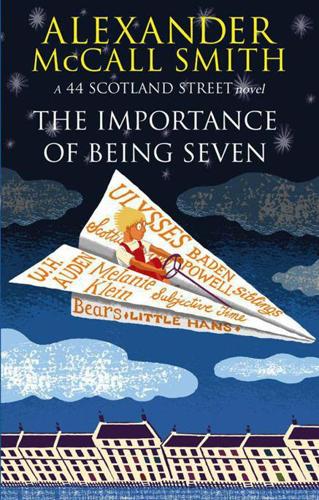
The Importance of Being Seven
by
Alexander McCall Smith
Published 1 Jan 2010
For her part, although she recognised the merits of work in one’s own back yard, Domenica continued to be attracted by radically different societies and by not-too-prosaic projects. Her last piece of research, which she had then written up in several well-received scholarly articles, had taken place in the Malacca Straits. She had gone there to investigate the domestic life of contemporary pirates, and she still remembered with affection the welcome that the pirate households gave her. Some of the pirate women still wrote to her occasionally, giving her news of their families; and she always responded, sending books to the children and the annual Scotsman calendar to the pirates themselves.
…
That was reward enough, of course, and Domenica needed none other – but it did mean that if she wanted to do field work, she had to do it entirely off her own bat. And that was not always easy. She spoke to her friend, Dilly Emslie, about this, meeting her for coffee in the Patisserie Florentin in North West Circus Place. It was Dilly who had encouraged her to go to the Malacca Straits and had enthusiastically supported her project there. Now she looked again to her friend for guidance: should she start another piece of research, or should she hang up her … whatever it was that anthropologists hung up – their mosquito nets, perhaps? – and lead the life of a sometime private scholar?
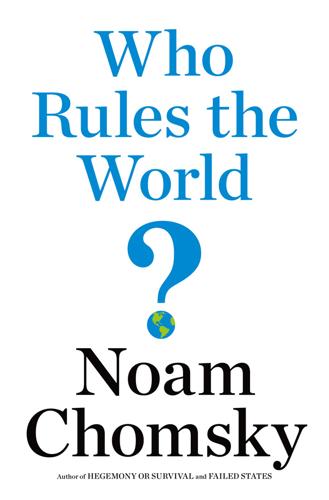
Who Rules the World?
by
Noam Chomsky
One need not be a supporter of China’s provocative and aggressive actions in the South China Sea to notice that the incident did not involve a Chinese nuclear-capable bomber in the Caribbean, or off the coast of California, where China has no pretensions of establishing a “Chinese lake.” Luckily for the world. Chinese leaders understand very well that their country’s maritime trade routes are ringed with hostile powers from Japan through the Malacca Straits and beyond, backed by overwhelming U.S. military force. Accordingly, China is proceeding to expand westward with extensive investments and careful moves toward integration. In part, these developments are within the framework of the Shanghai Cooperation Organization (SCO), which includes the Central Asian states and Russia, and soon India and Pakistan with Iran as one of the observers—a status that was denied to the United States, which was also called on to close all military bases in the region.
…
Kinsley, Michael Kissinger, Henry Kivimäki, Timo Klinghoffer, Leon Knox, Henry Korean War Kornbluh, Peter Krähenbühl, Pierre Krugman, Paul Kull, Steven Küng, Hans Kuperman, Alan Kurdistan Workers’ Party (PKK) Kurds Kuwait labor movement Labor Party (Israel) Laden, Osama bin assassination of Lansdale, Edward Laos Latin America Lawson, Dominic Leahy, Patrick Lebanon Leffler, Melvyn LeoGrande, William Le Pen, Marine Levy, Gideon Lewis, Anthony liberal internationalists liberation theology Liberty, USS, attack Libya Liebknecht, Karl Likud party (Israel) Lincoln, Abraham Linebaugh, Peter Lippmann, Walter Locke, John Lodge, Henry Cabot London Review of Books Luftwaffe Lukes, Steven Luxemburg, Rosa Madison, James Madison, Wisconsin, uprising Madrid negotiations Maechling, Charles, Jr. Magna Carta Malacca Straits Malaysia Airlines Flight 17 Mandela, Nelson Manifest Destiny “Manifesto of the Intellectuals” “Manifesto of the Ninety-Three” Mann, Thomas Mansfield, Lord. See Murray, William Mansour, Riyad manufacturing offshoring of Margolis, Eric Marshall, George Marx, Karl Massachusetts Bay Colony mass surveillance “masters of mankind” Mathews, Jessica May, Ernest Mayans Mazower, Mark McConnell, Mitch McCormack, Sean McCoy, Alfred McNamara, Robert Mearsheimer, John Medicare and Medicaid Medvedev, Dmitry Meehan, Bernadette Meir, Golda Mendel, Yonatan Merkel, Angela Mexican immigrants Mexican war Mexico Mian, Zia Middle East Milanović, Dragoljub Military Commissions Act (2006) Mill, John Stuart Milosevic, Slobodan Milton-Edwards, Beverly Mongoose, Operation Monroe Doctrine Montgomery, David Morgan, Edmund Morgenthau, Hans Muasher doctrine Mughniyeh, Imad Murray, William (Lord Mansfield) Musawi, Abbas al- My Lai massacre Myth of American Exceptionalism, The (Hodgson) Nagasaki Nairn, Allan Namibia Nanking, Rape of Napoleon National Command Authority nationalism National Security Action Memos (NSAM) National Security Administration (NSA) National Security Archive National Security Council (NSC) NSC-68 National Security Doctrine Nazis Negroponte, John neocolonialism neofascism neoliberalism Netanyahu, Benjamin Neutrality Act New Republic New Spirit of the Age New Yorker New York Review of Books New York Times Nicaragua Nicholson, Mark “first” (Chilean coup of 1973) terrorist attacks of 2001 Nixon, Richard M.
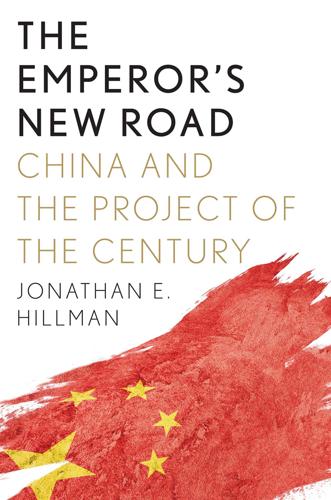
The Emperor's New Road: How China's New Silk Road Is Remaking the World
by
Jonathan Hillman
Published 28 Sep 2020
If ASEAN was a single economy, it would have been the fifth largest in the world in 2018.4 It is an exporting juggernaut, home to some of the fastest-growing middle-income populations, which are becoming burgeoning markets of their own. Even those countries not looking to do business with ASEAN can hardly avoid it. Sitting among Asia’s largest economies, it hosts the second-busiest shipping lane in the world, the Malacca Strait, through which nearly one hundred thousand vessels—carrying a quarter of global traded goods—pass every year.5 The contest to access and influence ASEAN is multifaceted, but the strongest tug-of-war is between China and Japan. China is playing a north-south game, reaching down from Yunnan, the southern province that Owen Lattimore, an American scholar of China, once called the “pivot” of Southeast Asia.6 China’s proximity is a blessing and a curse.
…
See Pakistan Korea, Japanese rule of, (i) Kovrig, Michael, (i) Kumaratunga, Chandrika, (i) Kuryk, Kazakhstan, (i) Kux, Dennis, (i) Kyrgyzstan: Bishkek power-plant project, (i); BRI corridor and, (i); corruption of Chinese-financed projects in, (i); debt of, (i); public distrust of Chinese influence in, (i); railway in, (i); Russian military bases in, (i); terrorist attack on Chinese embassy in (2016), (i); as trade entrepôt for China, (i)n46 Laboucher, Henry, (i) Lagarde, Christine, (i) L’Aigle (French imperial yacht), (i) Lamu Port–South Sudan–Ethiopia Transport Corridor (LAPSSET), (i) Langley, James, (i) Laos: China-Laos railway, (i), (ii); as landlocked nation, (i) Lattimore, Owen, (i) Lavrov, Sergei, (i) Lembong, Thomas, (i) Le Monde on breach of African Union servers by China, (i) Li Keqiang, (i), (ii) Lincoln, Abraham, (i) Li Xiaopeng, (i) Long Telegram, (i) Lugar, Richard, (i) Mackinder, Halford, (i), (ii), (iii), (iv) Macron, Emmanuel, (i), (ii) Maersk, (i)n31 Mahan, Alfred Thayer, (i), (ii) Mahathir Mohamad: on BRI’s potential, (i), (ii); on China’s power, (i), (ii), (iii), (iv), (v); Japanese relations with Malaysia, (i), (ii); “Look East” policy, (i); on “pan-Asian” railway network, (i); re-election and suspension of East Coast Rail Link and pipeline, (i); strategy of, (i) Malacca Strait, (i), (ii), (iii) Malaysia: ASEAN membership of, (i); BRI and, (i), (ii), (iii), (iv); Chinese investment in, (i); corruption in, (i), (ii); East Coast Rail Link, (i), (ii), (iii); Japanese ports in, (i); Japanese relations with, (i), (ii); rail development in, (i), (ii); as U.S. security ally, (i) Malcom, Howard: Travels in South-Eastern Asia, (i) Manila Pact (1954), (i) Mao Zedong, (i) Marco Polo, (i), (ii), (iii), (iv), (v) Marcos, Ferdinand, (i) maritime shipping: between Asia and Europe, (i), (ii)n31; China’s lending to global ports, (i); container shipping, (i), (ii)n31; economic benefits of, (i); historical importance in Western imperialism, (i); Lamu Port–South Sudan–Ethiopia Transport Corridor (LAPSSET Corridor), (i); steam power, use of, (i), (ii).
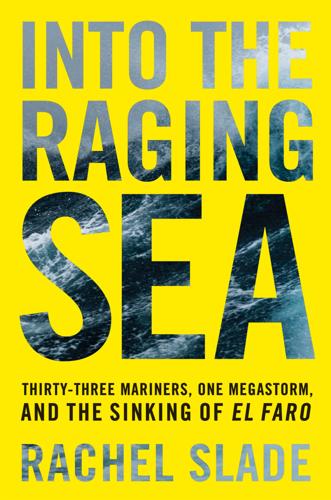
Into the Raging Sea
by
Rachel Slade
Published 4 Apr 2018
And lately, cargo prices had plummeted; worldwide, there was too much capacity, an abundance of ships, and not enough customers. Hanjin, one of the world’s largest shipping companies, filed for bankruptcy in 2016, leaving seventy-eight of its laden ships wandering the oceans in search of ports that would unload their goods without guaranteed pay. Piracy also plagued the industry. Notorious waterways like the Malacca Strait (between Malaysia and Sumatra), the South China Sea, the Gulf of Aden (the entrance to the Red Sea), and both coasts of Africa teem with pirates looking for valuable cargo or, even better, officers to ransom. In late October 2017, six crew from a German container ship approaching a Nigerian port were reported kidnapped.
…
See liquid natural gas (LNG) powered ships Loftfield, Earl, 278, 294–97 Loftus, John, 36, 175 Log from the Sea of Cortez, The (Steinbeck), 36 Lorenzen, Rich, 217–18, 219–20, 241–43, 245–46, 248 Madison, James, 139–40 Maersk, 34, 78, 120 Maine Maritime Academy (MMA), 61–63, 112, 229, 230–31 Malacca Strait, 34 Mansell, Doug, 332–37 Maria, Hurricane. See Hurricane Maria Marine Board hearings, 283–97, 299–309, 319–29 Fisker-Andersen’s testimony, 300–301 Greene’s testimony, 288–94 Hearn’s testimony, 319–21 on hurricane response guidelines, 292–94 Keller’s testimony, 319–20, 323–27 Lawrence’s testimony, 301–9 on liability, 286–88 location of, 283–84 Loftfield’s testimony, 294–97 moment of silence at, 285 Morrell’s testimony, 286–88 Nolan’s testimony, 299–300 report on findings, 356–60 Marine Electric (ship), 260–61, 273, 355, 358, 360 Marine Safety Center, 174 maritime laws, 138–45, 171–76 Marlins, 115–16 Martin, Trayvon, 125 Massachusetts Bay Colony, 136 Massachusetts Maritime Academy, 69 Mathias, Barry, 234 Mathias, Hayden, 233 Mathias, Jeff, 69–71, 73, 131, 149, 187, 190, 191, 347 cranberry farm of, 70, 234 family notified, 232–35 family of, 69, 70 flooding of ship and, 340–41 Mathias, Jenn, 232–35, 346–47 Matthews, Don, 320–21 McCain, John, 141 McCarthy, Dave, 216–18, 220–23, 225–27 McLean, Malcom, 89, 90, 95 media, 267–68 Meklin, Dylan, 180 Melville, Herman, 49, 122 Mendoza, Juan Escalante de, 45–46 Merchant Marine, US, 39, 122, 124, 142 Merchant Marine Act of 1920.
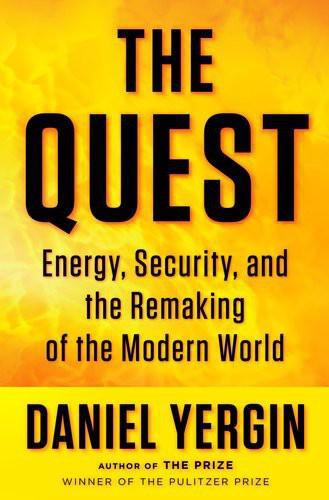
The Quest: Energy, Security, and the Remaking of the Modern World
by
Daniel Yergin
Published 14 May 2011
And if the United States was worried enough about oil to launch a full-scale invasion, then, in the view of many Chinese, energy security was clearly much more important—and urgent.1 Part of the new insecurity arose from apprehension about the sea-lanes, the economic highways for the world commerce that were increasingly important as the lifelines for Chinese oil imports—and indeed for Chinese trade in general. Half of the country’s GDP depends on sea-lanes. In November 2003, seven months after the invasion of Iraq, President Hu Jintao reportedly told a Communist Party conference that the country had to solve what became known as the Malacca Dilemma. This referred to China’s reliance on the Malacca Strait, the narrow waterway connecting the Indian Ocean and the South China Sea and through which passes more than 75 percent of China’s oil imports. “Certain powers have all along encroached on and tried to control navigation through the strait,” Hu is said to have declared. “Certain powers” was an obvious euphemism for the United States.2 The growing attention to risk was reinforced by what happened in 2004: the unanticipated jump in both Chinese and global demand for oil and the consequent rapidly rising prices.
…
Critical choke points along the sea routes create particular vulnerabilities for the transport of oil and LNG, whether from accidents, terrorist attacks, or military conflict. The best known of these choke points is the Strait of Hormuz, which separates the Persian Gulf (with more than a quarter of world oil production) from the Indian Ocean. Another key point is the Malacca Strait—the five-hundred-mile-long, narrow, and constricted passage between Malaysia and the Indonesian island of Sumatra that funnels in from the Indian Ocean, curves up around Singapore, and then widens out again into the open waters of the South China Sea. At its most narrow, it is only 40 miles in width.
…
smog in Los Angeles Department of Water and Power Los Angeles International Airport Lott, Trent Louisiana natural gas of offshore oil in Louis XV, King of France Lovins, Amory LSF (light sand fraccing) Lugar, Richard Lukoil Lula da Silva, Luiz Inácio Lutz, Robert MacArthur, Douglas McCain, John MacDonald, Gordon McKee, Rob Macondo (Mississippi Canyon Block 252) Maguire, Robert Mahoney, James Major, John Major Economies (formerly Major Emitters) Makovich, Lawrence Malacca Dilemma Malacca Strait Malaysia as LNG supplier Manabe, Syukuro Manchuria MANIAC (Mathematical Analyzer, Numerical Integrator and Computer) manufacturing American system of Chinese Indian solar see also factories Mao Tse-tung Maracaibo basin marijuana Marines, U.S. Marine Well Containment Corporation market-based solutions acid rain and Coase and developed vs. developing countries and as “Grand Policy Experiment,” Kyoto conference and lead in gasoline and “least-cost,” Project 88 and war on pollution and markets for carbon climate change and, see market-based solutions electricity and emerging energy security and gas global energy LNG and over-the-counter regulation vs.
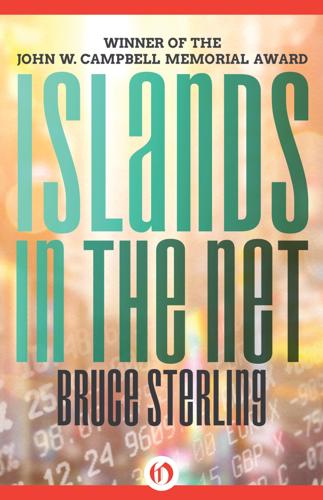
Islands in the Net
by
Bruce Sterling
Published 31 May 1988
Then over a cluster of offshore islands with names like the bonging of gamelans: Samulun, Merlimau, Seraya. Clumps of clotted tropical green cut with towering beachfront hotels. White, sandy shorelines cinched in by elaborate dams and jetties. Good-bye, Singapore. They changed course over the monsoon-ruffled waters of the Malacca Straits. It was loud inside the cabin. The passengers made a little hoarse, guarded conversation, but no one approached her. Laura leaned her head against the bare plastic by the little fist-sized porthole and fell into a stunned half-doze. She came to as the chopper pulled up, yawing dizzily. They were hovering over a cargo ship.
…
She coughed on seawater, then gathered her legs in, trembling, wretched. A long time passed. Then her brain began to work again. The ship had never had a chance. Not even to scream out an SOS. The first missile had wiped out the bridge—radio, radar, and all. The killers had cut their throat first thing. But to kill a hundred people in the middle of the Malacca Straits! To commit an atrocity like that—surely other ships must have seen the explosion, the smoke. To have done such a thing, so viciously, so blatantly … Her voice, when she finally got it out, was cracked and weak. “Hennessey …?” “Henderson,” he told her. He tugged his drenched red rain slicker over his head.
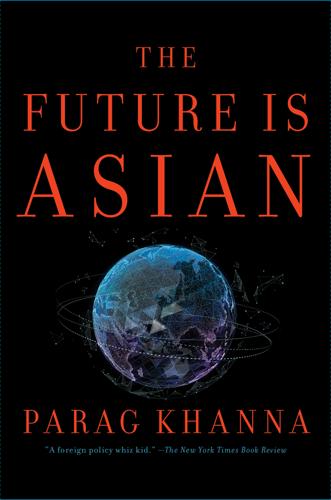
The Future Is Asian
by
Parag Khanna
Published 5 Feb 2019
Such immigrants made up two-thirds of the 200,000 inhabitants of Guangzhou (Canton), where the Huaisheng Mosque became the first of its kind in China. Tang Dynasty merchant ships reflected this diversity, with crews made up of Christians, Parsis, Muslims, and Jews. Tang vessels crossed the Java Sea and Malacca Strait carrying tens of thousands of fine porcelain bowls and other items to be exchanged for Indian fabrics and Abbasid glassware. At the time, the Tang Empire’s estimated 60 million people accounted for a quarter of the world’s population, and its cities were larger than any in Europe or India. The Tang leveraged this strength to expand aggressively into Manchuria in the north, Tibet in the west, and Annam (Vietnam) in the south.
…
Western, 357–58 Cold War, 2, 3, 6, 14, 19, 51–58, 86, 138, 283 colleges and universities, Asian: all-English programs in, 231 ethnic and cultural diversity in, 338 colleges and universities, European, Asian campuses of, 257 colleges and universities, US: Asian campuses of, 231–32 Asian enrollment in, 224–27 Asian studies departments in, 230 study-abroad programs in, 230–31 colonialism, 6, 22, 24, 27, 329 legacies of, 77–78 Columbus, Christopher, 43 commodities, trade in, 100, 111, 113, 160, 176, 322 China and, 21, 150, 157, 158, 273, 276–77 Russia and, 85, 88 Turkey and, 93, 94 Communist Party, Chinese, 49, 159–60, 300, 301 conflict, regional systems and, 11 Confucianism, 32, 34, 70, 300, 301 Congress, US, 195, 207, 222, 284 Asian Americans in, 221 Congressional Research Service (CRS), 293 Conrad, Sebastian, 28 Constantinople, 36, 39 sacking of, 43, 73, 91 consumerism, 23 corruption, 161, 267, 305 cosmetics industry, 346 Costa Rica, 274 Council of Europe, 57, 92, 241 coworking spaces, 204 Crazy Rich Asians (film), 347 Crimea, Russia’s annexation of, 83 Crimean War, 47 crusades, 39 Cuba, 271 Asian immigrants in, 275 cuisine, Asian: fusion, 345 global spread of, 343–45 Cultural Revolution, 56 culture, Asian, growing cross-border and global awareness of, 340–51 currency exchange rates, 169 Cyprus, 91 Cyrus the Great, Persian emperor, 30 Dalai Lama, 55, 120, 222, 358 Damico, Flávio, 277 Daoism, 31, 34 Darius I, Persian emperor, 30 Darius III, Persian emperor, 32 Defense Department, US, 98, 143 defense spending: in Asia, 17, 105, 137, 138 by Europe, 240, 248 Delhi Sultanate, 38–39 Demetrius, king of Bactria, 33 democracy, 15, 281–86 appeal of stability over ideals of, 285–86, 296, 309–13 Asian versions of, 21–22, 23, 281, 288–89 capitalism and, 352 failures and weaknesses of, 282–86, 294, 302–3 parliamentary, 295 Plato on, 286, 291 policy vs. politics in, 289, 296 populists’ hijacking of, 3 post–Cold War triumph of, 2 Singapore’s melding of technocracy and, 288–89, 290, 298 Deng Xiaoping, 57, 300 Dharma Bums (Kerouac), 331 Didi Chuxing (DiDi), 174–75, 198 digital integration, 186–89 digital technology: Asia and, 324 in governance, 318–20 Djibouti, 263 DNA editing, 201 Doha, art scene in, 342 dollar reserves, Asian holdings of, 163 Dream of the Red Chamber, 353 drones, commercial, 209 drug trade, 106–7 Duara, Prasenjit, 358 Dubai, 172, 173, 202, 212, 251, 261, 334 Dubai Ports World, 104, 261, 263 Durban, 265 Durov, Pavel, 173 Dutch, Southeast Asian colonies of, 45 Duterte, Rodrigo, 123–24, 305, 340 illiberal policies of, 306 Dyson, 210, 257 East Asia, 6, 51, 70, 140 cross-border literary tradition of, 353 democratization of, 61 economic growth of, 9 economic stability of, 63 exports of, 153, 154 Gulf states investments in, 103–4 oil and gas imports of, 82–83, 84–85, 106, 152, 175 in post–Cold War era, 60–61 prehistoric civilizations in, 29 US and, 140–41 US presence in, 16, 73 see also specific countries East Asian Community (EAC), 9 eco-activism, 182 e-commerce, 210–11, 228 Economic Cooperation Organization (ECO), 58 economic growth, 3, 4 rule of law and, 309–10 economy, global, 321–22 eco-tourism, 340 Ecuador, 274 education and professional training, 204–5, 317 Egypt, 29, 262 Eilat, 99 election, US, of 2016, 83, 320 electricity transmission systems, 112 electric vehicles, 179 energy: Asian need for, 9, 17, 62, 82–83, 84–85, 96, 100, 102, 103, 106, 152, 175–80, 177, 207 Europe’s need for, 84 Enlightenment, 22 Erdoğan, Recep, 87, 91, 92, 222, 310 Ethiopia, 262 eugenics, 200–201 Eurasia, 81 Eurasian Economic Union (EEU), 85, 87 Europe: alternative energy in, 175 anti-Muslim movements in, 255 anti-Soviet revolutions in, 58 Arabs in, 253, 255, 258 Asians in, 253–58 austerity policies in, 299 China and, 243, 246, 248–50 as coherent regional system, 7 defense spending by, 240, 248 energy needs of, 84 global civilization as influenced by, 21, 22–23 governance systems in, 284 internal trade in, 152 postwar rebuilding of, 14 Russia and, 83–84, 85, 89 Syrian refugees in, 63 US financial holdings of, 164–65 US relations with, 240 in voyages of discovery, 43–44, 68 see also specific countries Europe, Asia and, 239–58 arms sales in, 251 Asian investment in, 163, 246–47 financial sector in, 246, 247 food transport and, 244, 248 free trade agreements in, 250 infrastructure connectivity and, 243–44 retail sector in, 244 tourism in, 254–55 trade in, 13, 14, 241, 250 urban development and, 245–46 European Bank for Reconstruction and Development (EBRD), 241 European Central Bank, 243 European Coal and Steel Community, 7 European Customs Union, 92 European Economic Community, 57 European Investment Bank (EIB), 250 European Union, 2, 11, 13, 14, 127, 133, 249 expansion of, 241, 258 Israel and, 97 execution rates, in Asia, 308 Export-Import Bank of China, 84–85, 110, 273 Facebook, 208, 209, 219, 320 family-run businesses, Asian, 159–60 Far East, use of term, 5–6 Far Eastern Economic Review, 353 fashion: Asian, spread of, 345–46 Asian models in, 346 European, Asianization of, 345–46 Filipino Americans, 217 film industry: in Asia, 347–51 Asian directors in, 347 cross-Asian collaborations in, 348–49 Hollywood’s use of Asian themes in, 346–47 US-Asian collaboration in, 348 finance industry, Asian, 163 bonds in, 163, 164, 165–67 commodities markets in, 176 cross-border investments in, 166 foreign investments in, 167, 168, 171–72 IPO’s in, 167 private equity in, 171–72 privatization and, 169–71 stock markets in, 167–68 US and European investments by, 163–64 venture capital in, 173–74 finance industry, US, 166 Asia and, 167 financial crises: Asian (1997–98), 61, 62, 121, 151 Western (2007–08), 3, 14, 17, 62, 147, 152, 164, 233, 299 fintech (financial technology), 158, 168, 169, 188, 213 Flanagan, Owen, 357 flashpoints, geopolitical, in Asia, 11 food: Asian demands for, 244, 248 Asian production of, 177, 180–81, 182 Foreign Affairs, 8 Fosun International, 159–60 Foxconn, 132, 153, 194, 228 France: Arab immigrants in, 253 Asian immigrants in, 253 Asian trade of, 244 Indochina colonized by, 45 and loss of Indochina, 52 West Asian mandates of, 49 Francis I, Pope, 358 Franco-Prussian War, 286 Freedom House, 308 free trade: Asia and, 8, 102, 124, 129, 133, 153, 154, 158, 223, 250, 252, 272, 273 Western promotion of, 2–3, 158 Fujimori, Alberto, 276 Fukuoka, 135–36 Funabashi, Yoichi, 8–9 Funan Kingdom, 34 Fung, Spencer, 184 Future Forward Party, Thailand, 307 Gama, Vasco da, 43 Gandhara, 32, 33, 34 Gandhi, Mohandas K., 49, 265, 316 Ganges region, 29, 32 Ganges River, 33, 35, 46 “Gangnam Style” (music video), 343 Gates, Bill, 317 Geely, 194 General Electric, 110, 168, 211 Genghis Khan, 39–40 Georgia, Republic of, 59 technocracy in, 307 Germany, Nazi, 50 Germany, unified: Arab refugees in, 255 Asian immigrants in, 253, 254, 256 Asia’s relations with, 242 multiparty consensus in, 284 Ginsberg, Allen, 331 Giving Pledge, 317 Global-is-Asian, 22 globalization: Asia and, 8–9, 162, 357–59; see also Asianization growth of, 14 global order, see world order Goa, 44, 89, 186 Göbekli Tepe, 28 Goguryeo Kingdom, 34 Go-Jek, 187 Golden Triangle, 123 Google, 199, 200, 208–9, 219 Gorbachev, Mikhail, 58 governance: digital technology in, 318–19 inclusive policies in, 303 governance, global: Asia and, 321–25 infrastructure and, 322 US and, 321 government: effectiveness of, 303 trust in, 291, 310 violence against minorities by, 308–9 Government Accountability Office (GAO), 293 GrabShare, 174–75 grain imports, Asian, 90 Grand Canal, China, 37, 42 Grand Trunk Road, 33 Great Britain: Asian investments in, 247 Brexit vote in, 283–84, 286, 293–94 civil service in, 293–94 colonial empire of, 46–47 industrialization in, 46 Iran and, 252 populism in, 283–84 South Asian immigrants in, 253, 254 West Asian mandates of, 49–50 Great Game, 47 Great Leap Forward, 55 Great Wall of China, 31 Greece, 60, 91, 248 Greeks, ancient, 29, 34 greenhouse gas emissions, 176–77, 182 gross domestic product (GDP), 2, 4, 150 Grupo Bimbo, 272 Guam, 50, 136 Guangdong, 42, 98 Guangzhou (Canton), 37, 48, 68 Gulf Cooperation Council (GCC), 58, 101, 102 Gulf states (Khaleej), 6, 9, 57, 62, 81 alternative energy projects in, 251 Asianization of, 100–106 China and, 101, 102 European investment in, 251 India and, 102 Israel and, 99–100, 105 Japan and, 102 oil and gas exports of, 62, 74, 100–101, 176 South Asian migrants in, 334 Southeast Asia’s trade with, 102 South Korea and, 102 technocracy in, 311–12 US arms sales to, 101 women in, 315 see also specific countries Gulliver, Stuart, 148, 150 Gupta Empire, 35 H-1B visas, 219 Hamas, 59, 100, 139 Hamid, Mohsin, 184 Han Dynasty, 32, 33, 34, 300 Hanoi, 180 Han people, 31–32, 37, 69 Harappa, 29 Hardy, Alfredo Toro, 275 Hariri, Saad, 95 Harun al-Rashid, Caliph, 37 Harvard University, 230 Haushofer, Karl, 1 health care, 201–2 Helmand River, 107 Herberg-Rothe, Andreas, 75 Herodotus, 30 heroin, 106–7 Hezbollah, 58, 95, 96, 106 Hindus, Hinduism, 29, 31, 32, 34, 38, 70–71 in Southeast Asia, 121 in US, 220, 221 Hiroshima, atomic bombing of, 51 Hispanic Americans, 217 history, Asian view of, 75 history textbooks: Asia nationalism in, 27–28 global processes downplayed in, 28 Western focus of, 27–28, 67–68 Hitler, Adolf, 50 Ho, Peter, 289 Ho Chi Minh, 52 Ho Chi Minh City, 56 Honda, 275 Hong Kong, 56, 74 American expats in, 234 art scene in, 342 British handover of, 60, 141 civil society in, 313 Hongwu, Ming emperor, 42 honor killings, 315 Hormuz, Strait of, 103, 106 hospitality industry, 190, 214 Houthis, 106, 107 Huan, Han emperor, 33–34 Hulagu Khan, 40 Human Rights Watch, 313 human trafficking, 318 Hunayn ibn Ishaq, 37 Hungary, 40, 248, 256 Huns, 35, 76 hunter-gatherers, 28 Huntington, Samuel, 15 Hu Shih, 332 Hussein, Saddam, 58, 62, 101 Hyundai, 104 IBM, 212 I Ching, 30 Inclusive Development Index (IDI), 150 income inequality: in Asia, 183–84 in US, 228, 285 India, 101, 104 Afghanistan and, 118 Africa and, 264–66 AI research in, 200 alternative energy programs in, 178–79, 322 Asian investments of, 118 Australia and, 128 British Raj in, 46, 49 charitable giving in, 316–17 China and, 19–20, 113, 117–18, 155, 156, 332 civil society in, 313 in Cold War era, 52, 55, 56 corporate debt in, 170 corruption in, 161, 305 demonetization in, 184, 186–87 diaspora of, 333–34 early history of, 29, 30–31 economic growth of, 9, 17, 148, 185–86 elections in, 63 European trade partnerships with, 250–51 expansionist period in, 38, 41–42 failure of democracy in, 302 family-owned businesses in, 160 film industry in, 349–51 financial markets in, 186 foreign investment in, 192 gender imbalance in, 315 global governance in, 322–23 global image of, 331–32 Gulf states and, 102 inclusive policies in, 304 infrastructure investment in, 63, 110, 185 Iran and, 116, 118 Israel and, 98–99 IT industry in, 204, 275 Japan and, 134, 156 Latin America and, 275 manufacturing in, 192 as market for Western products and services, 207 naval forces of, 105 Northeast Asia and, 154–55 oil and gas imports of, 96, 107–8, 176 Pakistan and, 53, 55, 61, 77–78, 117–18 partitioning of, 52–53 pharmaceutical industry in, 228, 275 population of, 15, 186 in post–Cold War era, 61, 62 privatization in, 170 returnees in, 226 Russia and, 86–87 service industry in, 192 Southeast Asia and, 154–55 special economic zones in, 185 spiritual heritage of, 332 technocracy in, 304–6 technological innovation in, 186–87 territorial claims of, 11 top-down economic reform in, 305 traditional medicine of, 355 West Asia and, 155 Indian Americans, 217, 218, 219–20, 222 Indian Institutes of Technology (ITT), 205 Indian Ocean, 38, 47, 74, 105, 261, 262, 266 European voyages to, 44 Indians, in Latin America, 276 IndiaStack, 187 Indochina, 45, 50, 52 see also Southeast Asia Indo-Islamic culture, 38 Indonesia, 53, 61, 121, 125, 182 art scene in, 342 in Cold War era, 54 economic growth of, 17, 148 eco-tourism in, 340 failure of democracy in, 302 foreign investment in, 187 illiberal policies of, 306 inclusive policies of, 304 Muslims in, 71 technocracy in, 304–5 Indus River, 32, 113 Industrial and Commercial Bank of China (ICBC), 92, 159 industrialization, spread of, 22 Industrial Revolution, 2, 46, 68 Indus Valley, 29 infrastructure investment, in Asia, 6, 62, 63, 85, 88, 93, 96, 104, 108, 109, 110–11, 185, 190, 191, 243–44 see also; Asian Infrastructure Investment Bank; Belt and Road Initiative Institut d’Études Politiques de Paris (Sciences Po), 257, 286–87 insurance industry, 210 intermarriage, 336, 337–38 International Monetary Fund (IMF), 162, 163, 166, 323 International North-South Transport Corridor (INSTC), 116 International Renewable Energy Agency (IRENA), 100 International Systems in World History (Buzan), 7 Internet of Things (IoT), 134, 136, 197 Interpol, 324 Iran, 11, 15, 62, 92, 95, 98, 101, 140 China and, 101, 106–7, 116 in Cold War era, 54 European trade with, 251–52 growing opposition to theocracy in, 312 India and, 116, 118 Islamic revolution in, 57 Israel and, 99, 100 nuclear program of, 62 oil and gas exports of, 50, 94, 106, 107–8, 118, 176 in post–Cold War era, 58–59 privatization in, 170 re-Asianization of, 81, 106 Russia and, 87 Saudi Arabia and, 95–96, 100, 105–6 Syria and, 106 tourism in, 252 Turkey and, 94 US sanctions on, 87, 107, 241, 251, 252 women in, 315 Yemen and, 107 Iran-Iraq War, 58, 106 Iraq, 9, 11, 16, 49 Kuwait invaded by, 59 oil exports of, 55, 96 Sunni-Shi’a conflict in, 312 Iraq Reconstruction Conference (2018), 96 Iraq War, 3, 62, 91, 217, 240 Isfahan, 41 Islam, 40, 316 politics and, 71–72 spread of, 36, 38–39, 43, 69–72, 74 Sunni-Shi’a conflict in, 95, 312 Sunni-Shi’a division in, 36 see also Muslims; specific countries Islamic radicalism, 58, 59, 62, 65, 68, 71, 72, 115, 117, 139 see also terrorism Islamic State in Iraq and Syria (ISIS), 63, 71, 94, 96, 117 Israel, 11, 54, 96 arms sales of, 98 China and, 98–99 desalinzation technology of, 181 EU and, 97 Gulf states and, 99–100, 105 India and, 98–99 Iran and, 99, 100 Russia and, 88 see also Arab-Israeli conflict; Palestinian-Israeli conflict Japan, 14, 16, 63, 68, 69, 73 Africa and, 265 Allied occupation in, 51 alternative energy technologies in, 322 Asian investments of, 118, 156 Asianization of, 81 Asian migrants in, 336–37 Asian trade with, 273 capitalism in, 159 cashless economy in, 189 China and, 19–20, 77, 134, 136–37, 140–42 in Cold War era, 5, 55 corporate culture of, 132 early history of, 29, 31, 34–35 economic growth of, 55, 132, 148, 158, 163 economic problems of, 132, 134–35 in era of European imperialism, 47–48 EU trade agreement with, 133 expansionist period in, 38, 42, 44 foreign investment in, 135 in global economy, 133–37 global governance and, 322–23 global image of, 331 Gulf states and, 102 immigration in, 135–36 India and, 134, 156 infrastructure investment in, 110 Latin America and, 275 precision industries in, 134, 135–36 robotic technology in, 134 Russia and, 82, 86–87 Southeast Asia and, 133, 153–54, 156 South Korea and, 141–42 technological innovation in, 134, 196, 197 territorial claims of, 11 tourism in, 135 US and, 136 in World War I, 49 in World War II, 50–51 Japan International Cooperation Agency (JICA), 265 Japan-Mexico Economic Partnership Agreement, 273 Java, 35, 38, 39, 45 Javid, Sajid, 254 Jericho, 28 Jerusalem, 54, 98 Jesus Christ, 35 jihad, 38 Jinnah, Muhammad Ali, 52 Jobs, Steve, 331 Joko Widodo (Jokowi), 305, 306, 320 Jollibee, 172 Jordan, 54, 62, 97, 99 Syrian refugees in, 63 Journal of Asian Studies, 352 Journey to the West, 353 Judaism, 36 Kagame, Paul, 268 Kanishka, Kush emperor, 35 Kapur, Devesh, 218 Karachi, 113 Karakoram Highway, 113 Kashmir, 53, 55, 61, 77–78, 117–18, 119 Kazakhstan, 59, 140, 207 China and, 20, 108 economic diversification in, 190 energy investment in, 112 as hub of new Silk Road, 111–12 Kenya, 262, 263 Kerouac, Jack, 331 Khaleej, see Gulf states Khmer Empire, 70 Khmer people, 34, 38, 239 Khmer Rouge, 56 Khomeini, Ayatollah, 57, 59 Khorgas, 108 Khrushchev, Nikita, 56 Khwarizmi, Muhammad al-, 37 Kiev, 40 Kim Il Sung, 55 Kim Jong-un, 142 Kish, 28 Kissinger, Henry, 357 Koran, 316 Korea, 11, 31, 51, 68, 69 early history of, 34 expansionist period in, 38 Japanese annexation of, 48 reunification of, 142–43 see also North Korea; South Korea Korea Investment Corporation, 164 Korean Americans, 217 Korean War, 51 Kosygin, Alexei, 56 K-pop, 343 Kuala Lampur, 121, 246 Kublai Khan, 40 Kurds, Kurdistan, 87, 94, 99, 256 Kushan Empire, 32, 35 Kuwait, 101 Iraqi invasion of, 59 Kyrgyzstan, 59, 108, 182 language, Asian links in, 68–69 Laos, 45, 52, 60, 122, 154 Latin America: Asian immigrants in, 275–76 Asian investment in, 273–75, 276–77 Indian cultural exports to, 350 trade partnerships in, 272–73, 274, 275 US and, 271–72 Lebanon, 49, 54, 58, 95, 106 Syrian refugees in, 63 Lee, Ang, 347 Lee, Calvin Cheng Ern, 131 Lee Hsien Loong, 296–97 Lee Kuan Yew, 56, 127, 268, 288, 289, 292–93, 299, 305 voluntary retirement of, 296 Lee Kuan Yew School of Public Policy, 22, 299 Lenin, Vladimir, 49, 89 Levant (Mashriq), 81, 95, 97 LG, 275 Li & Fung, 184–85 Liang Qichao, 48–49 Liberalism Discovered (Chua), 297 Lien, Laurence, 317 life expectancies, 201 literature, Asian, global acclaim for, 353–54 Liu, Jean, 175 Liu Xiaobo, 249 logistics industry, 243 Ma, Jack, 85–86, 160, 189 Macao (Macau), 44 MacArthur, Douglas, 51 McCain, John, 285 McKinsey & Company, 160, 213 Macquarie Group, 131 Maddison, Angus, 2 Made in Africa Initiative, 262 Magadha Kingdom, 31 Magellan, Ferdinand, 43 Mahabharata, 35 Mahbubani, Kishore, 3 Mahmud of Ghazni, Abbasid sultan, 38 Malacca, 38, 43, 44, 124 Malacca, Strait of, 37, 39, 102, 103, 118, 125 Malaya, 46, 50 Malay Peninsula, 39, 53 Malaysia, 53, 61, 188 Asian foreign labor in, 335 China and, 123, 124 in Cold War era, 54 economic diversification in, 190 economic growth of, 17 technocracy in, 308 Maldives, 105 Malesky, Edmund, 308 Manchuria, 38, 48, 50, 51 Mandarin language, 229–30, 257 Manila, 121, 245 Spanish colonization of, 44 Mansur, al-, Caliph, 37 manufacturing, in Asia, 192 Mao Zedong, 51–52, 55, 56, 261, 300, 301 Marawi, 71 Marcos, Ferdinand, 53–54, 61 martial arts, mixed (MMA), 340–41 Mashriq (Levant), 81, 95, 97 Mauritius, 268 Mauryan Empire, 32–33, 68 May, Theresa, 293 Mecca, 57 media, in Asia, 314 median ages, in Asia, 148, 149, 155 Median people, 29 Mediterranean region, 1, 6, 29, 30, 33, 68, 84, 92, 95, 99, 106 see also Mashriq Mehta, Zubin, 332 Mekong River, 122 Menander, Indo-Greek king, 33 mergers and acquisitions, 212–13 meritocracy, 294, 301 Merkel, Angela, 242, 254 Mesopotamia, 28 Mexico, 7 Asian economic ties to, 272, 273, 274, 277 Microsoft, 208 middle class, Asian, growth of, 3, 4 Mihov, Ilian, 309 mindfulness, 332 Ming Dynasty, 42–43, 44, 69, 73, 75, 76, 105, 137, 262 mobile phones, 157, 183–84, 187, 188, 189, 193, 199, 208–9, 211 Modi, Narendra, 63, 98, 117, 119, 154–55, 161, 180, 185, 222, 265, 305, 306, 307, 320 Mohammad Reza Pahlavi, Shah of Iran, 54 Mohammed bin Salman, crown prince of Saudi Arabia, 72, 247, 310, 312, 315 Mohenjo-Daro, 29 Moluku, 45 MoneyGram, 196 Mongolia, 92, 111–12 alternative energy programs in, 112, 182 technocracy in, 307 Mongols, Mongol Empire, 39–40, 42, 44, 68, 69, 73, 76, 77, 239 religious and cultural inclusiveness of, 40, 70–71 Monroe Doctrine, 271 Moon Jae-in, 142 Moscow, 81, 82 Mossadegh, Mohammad, 54 MSCI World Index, 166, 168 Mubadala Investment Company, 88, 103, 104 Mughal Empire, 41–42, 46 religious tolerance in, 70–71 Muhammad, Prophet, 36 Mumbai, 185–86 Munich Security Conference, 241 Murakami, Haruki, 354 Murasaki Shikibu, 353 music scene, in Asia, 343 Muslim Brotherhood, 59 Muslims, 70–72 in Southeast Asia, 38–39, 43, 70–71, 121 in US, 220 see also Islam; specific countries Myanmar, 60, 63, 161 Asian investment in, 118–19 charitable giving in, 316 failure of democracy in, 302 financial reform in, 184 Rohingya genocide in, 122–23 see also Burma Nagasaki, atomic bombing of, 51 Nanjing, 42, 49 Napoleon I, emperor of the French, 1 nationalism, 11, 20, 22, 49–50, 52–55, 77, 118, 137, 138–39, 222, 312, 329, 337, 352 Natufian people, 28 natural gas, see oil and gas natural gas production, 175–76 Nazism, 200 Nehru, Jawaharlal, 52, 55 Neolithic Revolution, 28 neomercantilism, 20, 22, 158 Nepal, 46, 119–20, 333 Nestorian Christianity, 36, 70 Netanyahu, Benjamin, 97, 98, 100 Netflix, 348 New Deal, 287 New Delhi, 245 Ng, Andrew, 199 NGOs, 313 Nigeria, 265 Nisbett, Richard, 357 Nixon, Richard, 56, 101 Nobel Prize, 48, 221, 249, 323, 353–54 nomadic cultures, 76 Non-Aligned Movement, 55 Non-Proliferation of Nuclear Weapons Treaty, 61 North America: Asian trade with, 13, 14, 207 as coherent regional system, 7 energy self-sufficiency of, 175, 272 internal trade in, 152 see also Canada; Mexico; United States North American Free Trade Agreement (NAFTA), 7 North Atlantic Treaty Organization (NATO), 2, 57, 92, 116 Northeast Asia, 141 India and, 154–55 internal trade in, 152 manufacturing in, 153 North Korea, 55, 61 aggressiveness of, 63 China and, 143 cyber surveillance by, 142 nuclear and chemical weapons program of, 142 Russia and, 143 South Korea and, 142 US and, 142–43 Obama, Barack, 18, 82, 229, 240 oil and gas: Asian imports of, 9, 62, 82–83, 84–85, 96, 102, 106, 107–8, 152, 175, 176, 207 Gulf states’ exports of, 62, 74, 100–103, 176 Iranian exports of, 50, 94, 106, 107–8, 118, 176 Iraqi exports of, 55, 96 OPEC embargo on, 57 price of, 61 Russian exports of, 82–83, 84, 87–88, 175, 176 Saudi exports of, 58, 87–88, 102, 103 US exports of, 16, 207 West Asian exports of, 9, 23, 57, 62, 152 Okakura Tenshin, 48 oligarchies, 294–95 Olympic Games, 245 Oman, East Asia and, 104 ONE Championship (MMA series), 341 OPEC (Organization of Petroleum Exporting Countries), 57 Operation Mekong (film), 123 opium, 47, 123 Organization for Security and Co-operation in Europe (OSCE), 241 Oslo Accords, 59 Osman I, Ottoman Sultan, 41 Ottoman Empire, 40–41, 43, 45, 46–47, 48, 73, 91 partitioning of, 49–50 religious tolerance in, 70–71 Out of Eden Walk, 4 Overseas Private Investment Company (OPEC), 111 Pacific Alliance, 272 Pacific Islands, 181–82 US territories in, 48 Pacific Rim, see East Asia Pakistan, 52–53, 58, 62, 72, 95, 102, 105 AI research in, 200 Asianization of, 81, 113–18 as Central Asia’s conduit to Arabian Sea, 113–14 China and, 20, 114–16, 117–18 corruption in, 161 failure of democracy in, 302 finance industry in, 168–69 foreign investment in, 115 GDP per capita in, 184 India and, 55, 61–62, 117–18 intra-Asian migration from, 334 logistics industry in, 185 as market for Western products and services, 207 US and, 114–15 Pakistan Tehreek-e-Insaf (PTI), 307 Palestine, Palestinians, 49, 54, 99 Palestine Liberation Organization (PLO), 59 Palestinian-Israeli conflict, 59, 62, 97, 100 Pan-Asianism, 48, 351–52 paper, invention of, 72 Paris climate agreement, 178, 240 Paris Peace Conference (1918), 49 Park Chung-hee, 56 Park Geun-hye, 313 parliamentary democracy, 295 Parthians, 33, 76 Pawar, Rajendra, 205 Pearl Harbor, Japanese attack on, 50 peer-to-peer (P2P) lending, 169 People’s Action Party (PAP), Singapore, 294 People’s Bank of China (PBOC), 110, 188 Pepper (robot), 134 per capita income, 5, 150, 183, 186 Persia, Persian Empire, 29, 30, 42, 45, 47, 50, 68, 75 see also Iran Persian Gulf War, 61, 101, 217 Peru: Asian immigrants in, 275, 276 Asian trade with, 272 Peshawar, 32 Peter I, Tsar of Russia, 45, 90 pharmaceutical companies, 209–10 Philippines, 61, 157, 165 alternative energy programs in, 180 Asian migrants in, 333 China and, 123–24 Christianity in, 74 in Cold War era, 53–54 eco-tourism in, 340 foreign investment in, 124 illiberal policies of, 306 inclusive policies in, 304 as market for Western products and services, 207 Muslims in, 71 privatization in, 170 technocracy in, 304–5 urban development in, 190 US acquisition of, 48 US and, 123–24 philosophy, Asian vs.
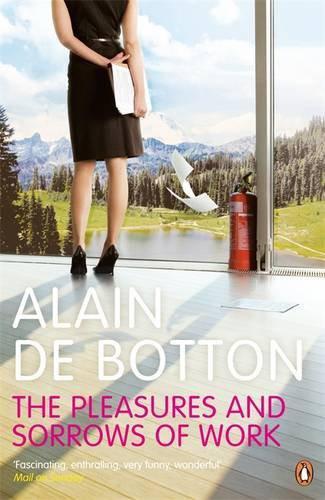
The Pleasures and Sorrows of Work
by
Alain de Botton
Published 1 Apr 2009
Given the trials she has undergone, she might have expected to be met by a minor dignitary or a choir singing ‘Exultate, jubilate’. But there is a welcome only from a foreman, who hands a Filipino crew member a sheaf of customs forms and disappears without asking what dawn looked like over the Malacca Straits or whether there were porpoises off Sri Lanka. The ship’s course alone is impressive. Three weeks earlier she set off from Yokohama and since then she has called in at Yokkaichi, Shenzhen, Mumbai, Istanbul, Casablanca and Rotterdam. Only days before, as a dull rain fell on the sheds of Tilbury, she began her ascent up the Red Sea under a relentless sun, circled by a family of storks from Djibouti.
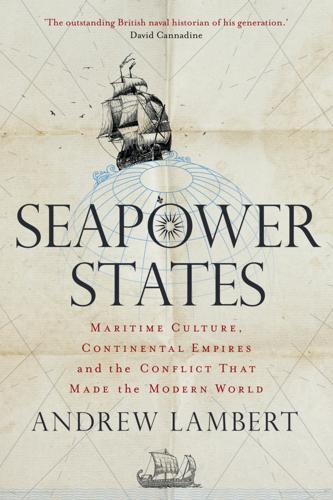
Seapower States: Maritime Culture, Continental Empires and the Conflict That Made the Modern World
by
Andrew Lambert
Published 1 Oct 2018
After 1713 the British pushed into Dutch Asian markets, planning the peaceful destruction of their once-mighty precursors.116 The Dutch Empire on the Indian mainland ended in 1783, the year the VoC granted the British East India Company free access to Asian waters, ending the spice monopoly. A decade later the British seized the strategic naval base at Trincomalee, to pre-empt the French. The base secured control of the Bay of Bengal, the Malayan coast and the Malacca Straits. The VoC was nationalised in 1796, and wound up in 1800.117 Few would have predicted that outcome at the high point of the Dutch seapower state, in the autumn of 1667. Just as everyone else accepted the Second Anglo-Dutch War would peter out in a patched-up peace, with both sides distracted by domestic issues, with peace talks already scheduled, Johan de Witt delivered a seapower masterstroke, one he had been planning for more than a decade.
…
(i) Hoorn (i) hoplites (i), (ii), (iii) Horden, Peregrine (i) House of Commons (i) House of Lords (i) Howard of Effingham, Lord (i), (ii) Huelva (i) Hughes, Lindsey (i), (ii) Hundred Years War (i), (ii) Hungary (i) Huygens, Constantijn (i) Hyksos (i) Iberia see also Portugal; Spain abandonment of sea (i), (ii) Barcids conquer (i) control of sea routes to (i), (ii), (iii) Genoese and Dutch contractors (i) Hamilcar’s empire in (i), (ii) Phoenician influence (i) royal autocrats in charge (i) tin from (i) Ibiza (i) Idea of the Patriotic King, The (Lord Bolingbroke) (i) Il Redentore, Venice (i) Iliad (Homer) (i) Illyria (i) India Dutch in (i) English and French in (i) English in (i) land taken by a seapower (i) Portugal in (i) Thames and (i) Indian Ocean (i), (ii) Indonesia (i), (ii) Influence of Sea Power upon History, The (Alfred Thayer Mahan) (i), (ii) Interest of Holland, The (Pieter de la Court) (i) Ionia Athenian protection (i) Athens defeats (i) currants (i) Greeks liberate (i) Persian control (i), (ii) Polycrates of Samos and (i) Venice and the islands (i) Ionian Greeks (i), (ii) Ireland (i), (ii), (iii) iron (i), (ii), (iii), (iv) Iron Age (i) ISIS (Islamist militia) (i) Isla San Giorgio (i) Islam (i) see also Muslims islands (i), (ii), (iii) Isocrates (i) Israel (i), (ii), (iii), (iv) Italy Burckhardt on (i) Charles V’s domination (i) Greek cities in (i) Habsburg power in (i) Hannibal’s aims (i) Italians in St Petersburg (i) Rome, Carthage and (i) Venice unique (i), (ii), (iii) Ithone (i) Ivan IV (Russia) (i), (ii) Jackson, Andrew (i) Jacobites (i) James I (England) (i), (ii), (iii) James, Duke of York (later James II) (i) Janissaries (i) Japan Commodore Perry (i) European base to navy (i) military conquest by (i) responding to China (i) seapower identity and (i) Second World War (i) Jardine, Lisa (i) Jason and the Argonauts (i), (ii) Jeddah (i) Jefferson, Thomas (i) Jerusalem (i), (ii) Jesuits (i), (ii) Jews (i), (ii) John II (Portugal) (i) joint-stock companies (i) Jomini, Antoine-Henri (i) n16 Jones, Inigo (i) Jucar, River (i) Julius Caesar (i) Justinian (i) Jutland, battle of (i) Kahan, Arcadius (i) Karelia (i) Kazan (i) Kerch, Straits of (i) Kneller, Sir Godfrey (i), (ii) Knossos (i), (ii) Kommos (i) Korea (i) Korean War (i) Kotlin Island (i), (ii) Krammick, Isaac (i) Kronstadt (i), Plate 10 Algarotti impressed by (i) Deane at (i) engravings (i) Frigate Pallada (i) later reconstructions (i), (ii) plan of (i) reliance on (i) work begins on (i) La Hougue (i) Laconia (i), (ii), (iii) Lade, battle of (i), (ii), (iii) Lagoon, Venice (i) Lagoon of Tunis (i) land empires (i) Lane, Frederic authority on Venice (i) n10 consolidation by seapowers (i) kings and merchants (i) seeds of Venetian dissolution (i), (ii) Venice and US (i) lantern galleys (i) Laocoön sculpture (i) lapis lazuli (i) Latimer, William (i) Latin America (i) Latin Empire (i) Lauderdale, Duke of (i) Laurium (i) Law of the Sea, UN Convention on the (i), (ii) League of Cambrai (i), (ii) Lebanon (i) Leiden (i) Lenin (i) Leningrad Naval Museum (i), (ii) Lepanto, battle of (i), Plate 5 effect on Venice (i), (ii) fleets converge (i) galleasses (i) location (i) map (i) Ottoman capacity weakened (i) Lesbos (i) Levant, the annihilation of (i) Assyria conquers (i), (ii), (iii), (iv) control of sea routes (i) demand for produce of (i) Dutch involvement (i) England (i) expansion of (i) far-flung trading routes (i) Mesopotamia and (i), (ii) new types of state (i) purpose-built docks (i) Tyrrhenian Sea and (i) Venice controls (i) Venice silver (i) Lewis and Clark (i) Lexington (ship) (i) Library, Venice (i) Libya (i), (ii) Libyssia (i) Lido, Venice (i) Liguria (i), (ii), (iii) Lincoln, Abraham (i) Lion of St Mark, The (Vittorio Carpaccio) (i) Lisbon (i), (ii), (iii), (iv) Liverpool (i) Livorno (i) Livy anti-Carthage propaganda (i), (ii) Napoleon and (i) read in Venice (i) Sabellico takes as model (i) Lloyd George, David (i) Loggetta, Venice (i) London see also City of London Dutch capital flows to (i) Peter the Great (i), (ii), (iii) power passes from Amsterdam (i) Ruskin on (i) Venice’s links with (i), (ii) ‘Long Walls’ demolition (i), (ii) effects of on Athens (i), (ii) Holland and (i) link with Piraeus (i), (ii), (iii) security for Athens (i) Lopez, Robert (i) Loredan, Antonio (i), (ii), (iii) Lorrain, Claude (i) Louis XIV Beachy Head (i) Colbert builds battle fleet (i) Dutch Republic and (i), (ii), (iii), (iv), (v) first modern state (i) n29 First Rate battleship (i) Genoa (i) hatred of sea states (i) naval ambitions thwarted (i) Peter the Great admires (i), (ii), (iii) William III and (i) Louis-Napoleon Bonaparte (i) Louisiana Purchase (i) Low Countries (i), (ii), (iii) Lowestoft (i) Lupher, David (i) Luther, Martin (i) Lycia (i) Lydia (i), (ii) Lynate, Thomas (i) Lysippus (i) Maastricht (i) Macartney, Lord (i) Macedon Athenian trade with (i) Carthage and (i), (ii) Philip seizes Athenian bases (i) Phoenician cities and (i) revolt against Rome (i) Rhodes and (i) Romans fighting in (i), (ii) Royal Library (i) Third Roman War (i) Mackinder, Halford (i), (ii) Madison, James (i) Madrid (i), (ii) Mago (i), (ii) Mahan, Captain Alfred Thayer (i) America and Britain (i) American seapower (i), (ii) Braudel and (i) Corbett and (i) ‘great common’ oceans (i) Hannibal’s seapower (i) meaning of ‘sea power’ (i), (ii) modern democracy and seapower (i) Mommsen and (i) railroads and rivers (i) strategic legacy of (i), (ii) theoretical model (i) Main Admiralty (St Petersburg) (i), (ii), (iii) Malacca (i) Malacca Straits (i) Malaya (i) Malta (i), (ii), (iii) Mamertines (i), (ii) Mamluks (i), (ii), (iii) Manchuria (i) Mandate of Heaven (i) Manifest Destiny (i), (ii) Mantinea, battle of (i), (ii) Manuel I (Portugal) (i), (ii), (iii) Manutius, Aldus (i), (ii), (iii), (iv) n17 Marathon, battle of (i), (ii), (iii), (iv) Marcello, Alvise (i) Marciana Library, Venice (i) Mardonius (i), (ii) Mare Clausum (John Selden) (i), (ii) Mariner’s Mirror, The (Lucas Jansz Waghenaar) (i) Maritime Belligerent Rights (i) Mark, St (i), (ii) Mary II (England) (i) Masinissa, King (Numidia) (i), (ii) Massilia (Marseille) (i) Mauritius (i), (ii) Maurits, Prince (i), (ii), (iii) Maximilian (Holy Roman Empire) (i) Mediterranean Bronze Age trade (i) Carthage (i), (ii), (iii), (iv) convoys protect Dutch (i) Cromwell’s Commonwealth (i) Dandolo, Venice and (i) docks (i) galleys in see galleys Genoese in (i) Heemskerck’s achievements for Dutch (i) land/sea balance (i) map (i) merchants transform (i) Mesopotamia and (i), (ii) metal imports (i) navigation by night and in winter (i) pivot point, a (i) population (i) refugees and migrants (i) Rome the superpower (i), (ii) single economic system (i), (ii) spice trade (i) trade networks (i), (ii) triremes in (i) Venice’s pre-eminence (i) Medway, River (i), (ii) Megara Alcibiades’ designs on (i) Athenian warships at (i) loss of Athenian control over (i) Megarian Decree (i) re-joins Sparta (i) Mehmet II (Ottomans) (i), (ii) Melian dialogue (i), (ii) Melos (i) Melquart (i), (ii), (iii) Menshikov, Prince (i) mercenaries (i), (ii) Mesopotamia cuneiform (i) demand for Levantine produce (i) growing control of Levant (i) importance of sea cities to (i) imports (i) lack of vital resources (i) Mediterranean and (i), (ii), (iii) synergy between land and sea (i) Messenia (i) Messina (i) Mestre (i) metals (i), (ii) Mexico (i), (ii), (iii) Meyer, Eduard (i), (ii), (iii) n73 Middle East (i), (ii) Middleburg (i) Milan (i), (ii) Miletus (i) Miliukov, Pavel (i) Milner, Alfred (i) Miltiades (i), (ii) Minoans connectivity of (i) effective unopposed control (i) folk memories (i) seapower and trade (i), Plate 1 thalassokratia (i), (ii) Thucydides on (i) Minorca (i), (ii) Minos, King (i), (ii), (iii) Minotaur, the (i), (ii) Mint, Venice (i), (ii) Mithridates of Pontus (i), (ii) Modon (i), (ii), (iii), (iv) Mommsen, Theodor (i), (ii) Mongols (i), (ii), (iii) Montesquieu (i), (ii), (iii), (iv) Moon, Sir Penderel (i) Mordvinov, Semen (i) More, Thomas (i) Morocco (i), (ii), (iii), (iv) Moscow earlier era of (i) English travel to (i) old families of (i) Peter’s boat paraded through (i) St Petersburg and (i), (ii) Moskva River (i) Motya (i) Mount Athos (i) movable-type printing (i) Munster (i) Munster, Peace of (i), (ii) Murray, General Sir George (i) Muslims Genoa, Spain and (i) libraries (i) Malacca (i) Seville and (i) spice trade (i) Tower of Belem and (i), Plate 9 Tunis and the corsairs (i) Venice trades with (i) Mycenae (i), (ii) Mylae, battle of (i) Myonessus (i) ‘Myth of Venice’ (i), (ii), (iii) Naples (i) Napoleon I (Bonaparte) continental armies (i) crushing seapower from land (i) Dutch Republic and (i), (ii) Genoa and Venice (i) Louisiana Purchase (i) new versions of Rome and (i), (ii), (iii) Russia and (i) Turner’s paintings (i), (ii) Venice occupied by (i), (ii) Napoleon III (i) Naseby (ship) (i) National Debt (i), (ii), (iii) Native Americans (i) NATO (i) Nauplia (i) Naval Hospital, Greenwich (i) Naval Museum, Venice (i) n22 Naval Statute (Peter the Great) (i), (ii), (iii) naval warfare (i) Navarino (i) navies (i), (ii) Navies and Nations (Jan Glete) (i) n3 Navigation Acts (Russia) (i) Navigation Laws, 1651 (England) (i) Navy Royal (i) see also Royal Navy Naxos (i) Negroponte (i), (ii) Nelson, Horatio (i), (ii), (iii), (iv), Plate 15 Nelson’s Column (i), (ii) Netherlands see Dutch Republic Neva, River (i), (ii), (iii) New Art of War at Sea (Fernando Oliviera) (i) New Deal (US) (i) New Holland (i) New York (i) New Zealand (i), (ii) Nicholas I (Russia) (i), (ii) Nicias, Peace of (i), (ii) Nieuwe Kirk (i), (ii) Nile, River (i), (ii), (iii), (iv) Nine Years War (i) Nineveh (i) north Africa Carthage (i), (ii), (iii), (iv), (v), (vi) Charles V (i) Genoa and (i) Phoenicians (i) Portugal and (i), (ii) Venice and (i) North Korea (i) North Quarter (Dutch Republic) (i) North Sea (i), (ii) Norway (i) Numidia (i), (ii) ‘Old Oligarch’ (i) Oliveira, Fernando (i) open-ocean navigation (i) Orange-Nassau, House of see also Willem III de Witt and (i), (ii), (iii) Oldenbarnevelt executed (i) populace and (i), (ii), (iii) risks of vaunting ambition (i) seamen support (i) Stadholders (i), (ii) standard of (i) Treaty of Breda (i) Order of Christ (i), (ii) Ormrod, David (i) Ostia (i), (ii) Ottoman Empire (i) Azov (i) Catherine II and (i) competes with Mamluks (i) Constantinople conquered (i) eastern Mediterranean controlled by (i) expansive energy ebbs (i) Great Northern War and (i) hegemonic threat, a (i), (ii), (iii) land before trade (i) leaders executed (i) Lepanto (i) Malta attacked (i) Peter the Great and (i), (ii), (iii), (iv) Philip II and (i) relentless advance of (i) ships of (i) Venetian economy, effect on (i) Venetians at Negroponte (i) Venice’s cautious approach to (i) Oude Kirk, Amsterdam (i), (ii) Oxford English Dictionary (i), (ii) n1 (Conclusion) Oxford University Press (i) Pacific (i), (ii), (iii) Padua, University of (i) Painted Hall, Naval Hospital, Greenwich (i) Palazzo San Giorgio (i) Palladio, Andrea Baroque and (i), (ii) Il Redentore (i) Russian version of (i) villas (i) Vitruvius published (i) Pallas Athena (i) Palmerston, Lord (i) Panama (i) Panathenaica (i) Papacy England and (i) Pope and Emperor (i) Spain and (i), (ii) Venice and (i) Paris (i) Paris Peace Conference (i) Parkinson, John (i) Parthenon (i), (ii), (iii) Partition Treaties (i) Passchendaele, battle of (i) Paton, Richard (i) Paul I (Russia) (i) Paulus, Aemillius (i) Pausanias (i) Pearl Harbor (i) Peloponnesian League (i) Peloponnesian Wars see also First Peloponnesian War; Second Peloponnesian War anti-piracy patrols (i) Athens policing the sea (i) Rhodes and (i) Sparta not a seapower (i) Spartan anxiety a factor (i) Thucydides’ text (i) Peloponnesus (i) penteconters (i), (ii), (iii) People’s Liberation Army’s Navy (PLAN) (i), (ii), (iii), (iv) Pergamum (i), (ii), (iii) Pericles, Plate (i) Acropolis rebuilt (i) command of Athenian forces (i) effective head of state (i) faith in seapower (i) seapower and limited war (i) Second Peloponnesian War (i) Thucydides on (i), (ii), (iii) Venice and (i) Perry, Commodore (i) Perseus, King (Macedon) (i) Persia (i) Athenian democracy and (i), (ii) conquers Babylon (i) conquers Egypt (i) defeat at Salamis (i), (ii) fall of Miletus (i) Greek naval power and (i) influence of (i) more conquests (i) not a sea power (i), (ii), (iii), (iv) oppresses Phoenician cities (i) Peter the Great attacks (i) Phocean Greeks flee (i) Rhodes returns to (i) size of (i) Thucydides on (i) triremes (i) Pesaro, Benedetto (i) Peter I, the Great (Russia) (i) achievement of (i) artworks (i), (ii) Baltic aims (i), (ii) changing the culture (i), (ii) crippling effect of state control (i) Deptford and its influence (i) differences from seapowers (i), (ii) English and (i), (ii) First Rates (i) Kronstadt, importance of (i), Plate 10 legacy (i) limited interests (i) Naval Statute, its significance (i), (ii), (iii) three navies of (i) Peter II (Russia) (i), (ii) Peter and Paul Fortress (i) Peterhof, the (i), (ii), (iii) Petr Velikiy (ship) (i) Petrarch (i) Petropavlosk (i) Philip II (Macedon) (i), (ii) Philip II (Spain) (i), (ii), (iii) Philip III (Spain) (i) Philip V (Macedon) (i), (ii) Philippines (i) Phocean Greeks (i), (ii), (iii) Phoenicians alphabetic language of (i) annihilation (i) Babylon crushes (i), (ii), (iii) becoming rich (i) Braudel on (i) Carthage and (i), (ii) cities of (i) coinage (i) development of (i) Egypt and (i) Egyptian ship design (i) enlarged sphere of influence (i) fatal flaw of (i) Gadir relied upon by (i) governance (i) Greek borrowing from (i), (ii) influences later states (i), (ii) religion of (i) Sidon galleys (i) superior commercial fleet to Greece (i) triremes (i) western colonisation (i) Phormio (i) Piazza San Marco, Venice ceremonial spaces (i), (ii) Napoleon occupies (i) refashioned (i) Sansovino appointed (i) sightlines expanded (i) Piazetta, Venice (i), (ii) Picard, Gilbert (i) Picart, Pieter (i) Pillars of Hercules Heemskerck breaks Spanish grip (i) origin of name (i) Phoenicians and Greeks (i), (ii), (iii) Piraeus defeats coup (i) fortification of (i) heart of system (i) Long Walls built (i), (ii), (iii) radical democrats in (i) rebuilt (i) pirates America and (i) Barbary corsairs (i) constabulary against (i) Genoa and (i) Minoans and (i), (ii) Pompey (i) privateering (i), (ii) Rhodes and (i) Somali (i) Pisa (i) Pisistratidae (i) Pius II (Papacy) (i) Pius V (Papacy) (i) plague (i), (ii) Platea, battle of (i), (ii), (iii) Plato aversion to seapower (i), (ii), (iii), (iv), (v), (vi), (vii), (viii) on the spread of ideas (i) Romans read (i) Sicily and Athens (i) Poland (i) Polaris (i), (ii) Poltava, battle of (i), (ii), (iii), (iv) Polybius destruction of Carthage (i) land power and seapower (i) on Rhodes (i) Second Punic War (i) Third Punic War (i), (ii) Polycrates of Samos (i), (ii), (iii) Polynesia (i) Pombal, Marquis (i) Pompey (i) Pontus (i), (ii) populist movements (i) Port Arthur (i) Portas (i) ports (i) Portsmouth (i) Portsmouth (ship) (i) Portugal (i) Cortes (i) driven out of Asia (i) Dutch privateers and (i) English navy browbeats (i) Genoese invest in (i), (ii) maritime empire, a (i) no interest in being a sea state (i) Phoenician outposts (i) Portuguese Empire (i) sailing round Cape of Good Hope (i) Poseidon (i) Potemkin, Prince (i) Potemkin (ship) (i) Predestination (ship) (i) Priam, King (i) Prince of Wales, HMS (i) Prince Royal (ship) (i) Principal Navigations, Voyages and Discoveries of the English Nation, The (Richard Hakluyt) (i) printing (i) Privy Council (i) n41 Prokopovich, Archbishop Feofan (i), (ii), (iii) Promachos (i) Propylea (i), (ii) Protestants (i) Prussia (i) see also Germany Pruth, River (i) Ptolemies (i) Ptolemy II (Egypt) (i) Pufendorf, Samuel (i) Punic language (i) Punic Wars (i), (ii), (iii) see also First Punic War; Second Punic War; Third Punic War Punic Wars (Appian) (i) Purcell, Nicholas (i) Putin, Vladimir (i), (ii), (iii), (iv) Pydna, battle of (i) Pynx (i) Pyrrhus (i) Al-Qaeda (i) Qing Empire (i) Quangdo (i) Quarenghi, Giacomo (i) quays (i) Quebec (i) Queen’s House, Greenwich (i), (ii) Ragusa (i) Raleigh, Sir Walter (i), (ii), (iii), (iv) Ramusio, Giovanni Batista (i), (ii), (iii) Ranger (ship) (i) Ranke, Leopold von (i) Rankov, Boris (i), (ii) Ras Sharma (Ugarit) (i), (ii) Rastrelli, C.

A Pipeline Runs Through It: The Story of Oil From Ancient Times to the First World War
by
Keith Fisher
Published 3 Aug 2022
Just beyond the fringe of effective Dutch control, its independence was backed, in theory, by the British; as late as 1867 a Foreign Office minute recorded, ‘The independence of Acheh should be guaranteed.’165 But the geopolitical landscape was changing. From the opening of the Suez Canal in 1869 and the turn from sail to steam, the quickest route for sea trade between Europe and China now passed through the Malacca Straits between the Malay Peninsula and Sumatra rather than the Sunda Straits further south between Java and Sumatra. This increased the importance of the Aceh coastline of northeastern Sumatra at a time when other powers, particularly France and the United States, were in the ascendant in the region and might have the will and the means to take possession of Aceh themselves.166 In 1868 the British Colonial Office signalled its new geopolitical calculation that ‘Acheen had much better be in the hands of Holland than of France or the United States’,167 and by 1871 Britain and Holland were ready to swap Aceh – regardless of native wishes – for the Dutch-held part of the Gold Coast and some trade concessions.
…
It is therefore considered of the greatest importance to our colonies that this oil should now become a home product.170 A few months later Zijlker died of a tropical disease, whereupon the direction of Royal Dutch’s operations, guided by the detailed recommendations set out in the Fennema Report, was taken over by Jean Baptiste August Kessler. A road was cut from the drilling site 8 miles through the jungle to Pangkalan Brandan on Babalan Bay opening onto the Malacca Straits, along which was laid a pipeline. For days on end, workers, under torrential rain, were waist deep in swamps and flood waters and, wrote the company’s first official historian, ‘in his despair Kessler was sometimes tempted to thrash the Chinese out of their living quarters with a stick’.171 Nevertheless, in February 1892, with ‘a roar as of a mighty storm,’ wrote Kessler, the pipeline began disgorging crude oil into the tanks of the new bay-side refinery.172 Meanwhile, as investors back in the Netherlands became increasingly frustrated at the continuing civil conflict, the Acehnese resistance launched a wave of attacks on colonial business interests in the rich plantation districts.
…
Blosse, 15 Lynch, Henry, 360 Lyon, George, 47 M. Samuel & Co. see Samuel: M. Samuel & Co. MacDonald, Ramsay, 491–2 Mackenzie, Alexander, 57 MacKeown & Finley, 109 Madero, Franciso, 383 Madison, James, 96, 101 Magnolia Petroleum Co., 421 Mahan, Alfred T., 276, 385, 517, 518, 519 Maier, P.J., 29 Malacca Straits, 20, 21, 228, 230, 330 Malet, Edward, (236), 237–8, 239, 241–2 Mallet, Louis, 456, 463, 471, 473–5, 509–10, 512, (513), 516–17 Mantashev, Alexander, 246 Marathon Oil Corp., 404 Marling, Charles, 468, (469) Marriott, Alfred see Anglo-Persian Oil Co. Marvin, Charles, 211–12, 213, 224, 226 Marx, Karl, 200, (345) Masjid i Suleiman (Masjed Soleyman), 16, 298, 356–9, 361–3, 364, 461–2, 464; exploration, 356–7, 361–3 oil strike, 363–4 Matos, Manuel Antonio, 340 Maunsell, F.R., 305, 371, 375 Maximilian, Ferdinand, 184, 186 Maybach, Wilhelm, 273–4 Mayo, Henry, 386 Mazut Co., see Rothschild McGarvey, William Henry, 220, 436, 481 McGee, James, see Standard Oil Co.
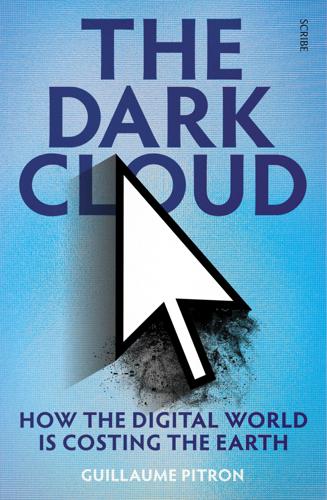
The Dark Cloud: How the Digital World Is Costing the Earth
by
Guillaume Pitron
Published 14 Jun 2023
‘It is a single point of failure for all undersea cables from Brazil to the United States’, wrote an academic. ‘If Fortaleza were shut down, all data traffic that flows north and south would come to a halt.’63 This is also true for Alexandria, Egypt, where five of the most important transnational cables intertwine, and for the Luzon and Malacca straits.64 It is important to note that bottlenecks result not only from a glut of cables, but also from a lack of cables, which renders a country entirely dependent on just a handful of lines. (This is the case in New Zealand, which relies on only three cables.) Ownership of a system by just one entity also increases the threat of denial-of-service, and the risk of regulatory obstructions.65 In 2011, Indonesia decreed that only boats flying the local flag, and manned by a local crew, could carry out repairs in its territorial waters.
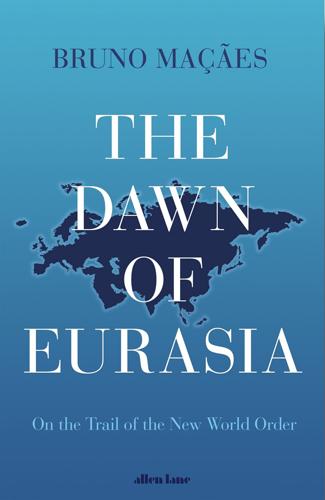
The Dawn of Eurasia: On the Trail of the New World Order
by
Bruno Macaes
Published 25 Jan 2018
To the west the busiest sea lane passes through the Strait of Hormuz, granting access to the Persian Gulf and its littoral, the source of a majority of Indian oil and gas supplies and home to an estimated 7 million expatriate Indians. One Chinese analyst describes the 244 islands that constitute the Andaman and Nicobar archipelagos as a ‘metal chain’ (铁链) that could lock the western exit of the Malacca Strait. More generally, Chinese observers foresee the emergence of a powerful rival aiming to control the Indian Ocean, the mirror image of the Eurasian landmass to the north. For them, India is developing its overall capacity to ‘enter east’ (东进) into the South China Sea and the Pacific, ‘exit west’ (西出) through the Red Sea and Suez Canal into the Mediterranean, and ‘go south’ (南下) toward the Cape of Good Hope and the Atlantic.10 In 2016 news emerged that India and Japan were secretly planning to install a sea wall of hydrophones between Indira Point in the Nicobar Islands and Banda Aceh on the northern tip of Sumatra in Indonesia, aimed at tracking undersea movement and effectively plugging the entry to the Indian Ocean for Chinese submarines.

Memoirs of an Addicted Brain: A Neuroscientist Examines His Former Life on Drugs
by
Marc Lewis Phd
Published 5 Mar 2013
They seemed to relish us, to draw something special from our novelty. I never knew quite what. The following day was our last. We were finally approaching the backbone of the Malay Peninsula, a ridge that ran continuously from the top to the bottom of the country, with smaller ridges radiating out on both sides, tumbling down toward the Malacca Strait in the west and the South China Sea in the east. Here at the summit were the Cameron Highlands, a paradise of cool breezes blowing across hilltops at least a thousand metres above sea level. The hills were covered with tea—miles and miles of minty green shrubs—interspersed by occasional clusters of giant trees, each with its retinue of primary growth.
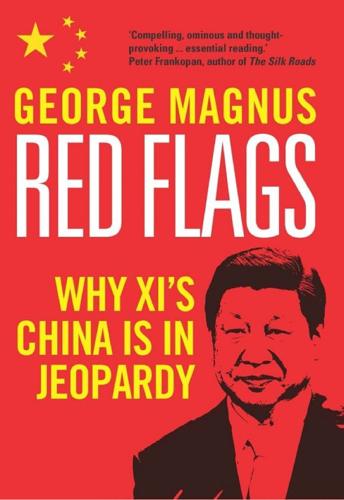
Red Flags: Why Xi's China Is in Jeopardy
by
George Magnus
Published 10 Sep 2018
–China Strategic and Economic Dialogue (i) Hua Guofeng (i) Huangpu district (Shanghai) (i) Huawei (i), (ii), (iii), (iv) hukou (i), (ii), (iii), (iv) Human Freedom Index (i) Human Resources and Social Security, Ministry of (i) Hunan (i) Hungary (i), (ii), (iii), (iv) ICORs (incremental capital-output ratios) (i), (ii), (iii) n4 IMF Article IV report (i) on broadening and deepening of financial system (i) China urged to devalue (i) China’s integration and (i) concern over smaller banks (i) concern over WMPs (i) credit gaps (i) credit intensity (i) GP research (i) ICOR (i) n4 laissez-faire ideas (i) pensions, healthcare and GDP research (i), (ii), (iii) Renminbi reserves (i) risky corporate loans (i) Special Drawing Rights (i), (ii), (iii), (iv), (v) WAPs (i) immigrants see migrants income inequality (i) India Adam Smith on (i) ASEAN (i) BRI misgivings (i) BRICS (i), (ii) comparative debt in (i) demographic dividend (i) economic freedom level (i) frictions with (i) Nobel Prize (i) pushing back against China (i) regional allies of (i) SCO member (i) Indian Ocean access to ports (i) African rail projects and (i) Chinese warships enter (i) rimland (i) shorelines (i) Indo-Pacific region (i), (ii) Indonesia Asian crisis (i) BRI investment (i) debt and GDP (i) GDP (i) rail transport projects (i) RCEP (i) retirement age (i) trade with China (i) Industrial and Commercial Bank of China (i), (ii) Industrial Revolution (i), (ii) industrialisation (i), (ii) Industry and Information Technology, Minister of (i) infrastructure (i), (ii), (iii), (iv) Initial Public Offerings (IPOs) (i) Inner Mongolia (i), (ii) innovation (i), (ii) Inquiry into the Nature and Causes of the Wealth of Nations (Adam Smith) (i) Institute for International Finance (i) institutions (i), (ii) insurance companies (i), (ii), (iii) intellectual property (i) interbank funding (i), (ii), (iii), (iv), (v) investment (i), (ii), (iii) Iran (i) Ireland (i), (ii), (iii) Iron Curtain (i) ‘iron rice bowl’ (i) Israel (i), (ii) Italy (i), (ii), (iii) Jakarta (i), (ii) Japan acts of aggression by (i) aftermath of war (i) ASEAN (i) between the wars (i) bond market (i) Boxer Rebellion and (i) Chiang Kai-shek fights (i) China and (i) China’s insecurity (i) credit gap comparison (i) dispute over Diaoyu islands (i), (ii) export-led growth (i), (ii) financial crisis (i) friction with (i) full-scale war with China (i), (ii) growth (i) high-speed rail (i) India and (i) Liaodong peninsula (i) Manchuria taken (i), (ii), (iii) Mao fights (i) middle- to high-income (i) migrants to (i) Okinawa (i) old-age dependency ratio (i) pensions, healthcare and GDP research (i) pushing back against China (i) RCEP (i) Renminbi block, attitude to (i) research and development (i) rimland (i) robots (i) seas and islands disputes (i) Shinzō Abe (i) TPP (i) trade and investment from (i) yen (i) Jardine Matheson Holdings (i) Jiang Zemin 1990s (i) Deng’s reforms amplified (i), (ii), (iii) influence and allies (i) Xiao Jianhua and (i) Johnson, Lyndon (i) Julius Caesar (i) Kamchatka (i) Kashgar (i) Kashmir (i) Kazakhstan (i), (ii) Ke Jie (i) Kenya (i) Keynes, John Maynard (i) Kharas, Homi (i) Kissinger, Henry (i), (ii), (iii), (iv) Korea (i), (ii), (iii) see also North Korea; South Korea Korean War (i), (ii) Kornai, János (i), (ii), (iii) n16 Kowloon (i), (ii) Krugman, Paul (i) Kunming (i) Kuomintang (KMT) (i), (ii) Kyrgyzstan (i) Kyushu (i) labour productivity (i) land reform (i) Laos (i), (ii), (iii) Latin America (i), (ii), (iii) Lattice Semiconductor Corporation (i) leadership (i) Leading Small Groups (LSGs) (i), (ii), (iii), (iv) Lee Kuan Yew (i) Lee Sodol (i) Legendary Entertainment (i) Lehman Brothers (i) lending (i) Leninism governance tending to (i) late 1940s (i) party purity (i) Xi’s crusade on (i), (ii) Lenovo (i), (ii) Lewis, Arthur (i) Lewis turning point (i) LGFVs (local government financing vehicles) (i) Li Keqiang (i), (ii) Liaodong peninsula (i), (ii) LinkedIn (i) Liu He (i), (ii), (iii) Liu Xiaobo (i) local government (i), (ii), (iii) London (i), (ii), (iii) Luttwak, Edward (i), (ii), (iii) Macartney, Lord George (i), (ii), (iii) Macau (i), (ii) Made in China 2025 (MIC25) ambitious plans (i) importance of (i) mercantilism (i) priority sectors (i) robotics (i) Maddison, Angus (i), (ii), (iii) n3 (C1) Maghreb (i) major banks see individual entries Malacca, Straits of (i) Malay peninsula (i) Malaysia ASEAN member (i) Asian crisis (i) high growth maintenance (i) Nine-Dash Line (i) rail projects (i), (ii) Renminbi reserves (i) TPP member (i) trade with (i) Maldives (i) Malthus, Thomas (i), (ii) Manchuria Communists retake (i) Japanese companies in (i) Japanese puppet state (i), (ii), (iii) key supplier (i) North China Plain and (i) Pacific coast access (i) Russian interests (i) targeted (i) Manhattan (i), (ii) see also New York Mao Zedong arts and sciences (i) China stands up under (i) China under (i) Communist Party’s grip on power (i) consumer sector under (i) Deng rehabilitated (i) Deng, Xi and (i) east wind and west wind (i) Great Leap Forward (i) industrial economy under (i) nature of China under (i) People’s Republic proclaimed (i) positives and negatives (i) property rights (i) women and the workforce (i) Xi and (i) Maoism (i) Mar-a-Lago (i) Mark Antony (i) Market Supervision Administration (i) Marshall Plan (i), (ii) Marxism (i), (ii), (iii), (iv) Mauritius (i) May Fourth Movement (i) McCulley, Paul (i) n18 Mediterranean (i) Menon, Shivshankar (i) mergers (i) MES (market economy status (ii)) Mexico completion of education rates (i) debt comparison (i) GDP comparison (i) NAFTA (i) pensions comparison (i) TPP member (i) US border (i) viagra policy (i) Middle East (i), (ii), (iii) middle-income trap (i), definition (i) evidence and argument for (i) governance (i) hostility to (i) hukou system (i) lack of social welfare for (i) low level of (i) migrant factory workers (i) patents and innovation significance (i) significance of technology tech strengths and weaknesses (i) total factor productivity focus (i) vested and conflicted interests (i) ultimate test (i) World Bank statistics (i) migrants (i), (ii), (iii), (iv), (v) Ming dynasty (i) Minsky, Hyman (i) mixed ownership (i), (ii) Modi, Narendra (i) Mombasa (i) monetary systems (i) Mongolia (i), (ii) Monogram (i) Moody’s (i) Morocco (i) mortality rates (i) see also population statistics mortgages (i) motor cars (i), (ii) Moutai (i) Mundell, Robert (i) Muslims (i) Mutual Fund Connect (i) Myanmar ASEAN (i) Chinese projects (i) disputes (i) low value manufacturing moves to (i) Qing Empire in (i) ‘string of pearls’ (i) ‘Myth of Asia’s Miracle, The’ (Paul Krugman) (i) NAFTA (North American Free Trade Agreement) (i) Nairobi (i) Namibia (i) Nanking (i) Treaty of (i), (ii) National Bureau of Statistics fertility rates (i) GDP figures (i) ICOR estimate (i), (ii), (iii) n4 SOE workers (i) National Cyberspace Work Conference (i) National Development and Reform Commission (i), (ii), (iii) National Financial Work Conferences (i) National Health and Family Planning Commission (i) National Medium and Long-Term Plan for the Development of Science and Technology (i) National Natural Science Foundation (i) National People’s Congress 2007 (i) 2016 (i) 2018 (i), (ii), (iii), (iv) National People’s Party of China (i) National Science Foundation (US) (i) National Security Commission (i) National Security Strategy (US) (i), (ii) National Supervision Commission (i), (ii), (iii), (iv) Needham, Joseph (i) Nepal (i), (ii) Netherlands (i) New Development Bank (i), (ii) New Eurasian Land Bridge (i) New Territories (i), (ii) New York (i) see also Manhattan New Zealand (i), (ii), (iii) Next Generation AI Development Plan (i) Nigeria (i) Nine-Dash Line (i) Ningpo (i) Nixon, Richard (i) Nobel Prizes (i), (ii) Nogales, Arizona (i) Nogales, Sonora (i) Nokia (i) non-communicable disease (i) non-performing loans (i), (ii), (iii), (iv), (v), (vi) North China Plain (i) North Korea (i) see also Korea Northern Rock (i) Norway (i) Nye, Joseph (i) Obama, Barack Hu Jintao and (i) Pacific shift recognised (i) Renminbi (i) US and China (i), (ii) OECD (Organisation for Economic Co-operation and Development) China’s ranking (i) GDP rates for pension and healthcare (i) GP doctors in (i) tertiary education rates (i) US trade deficit with China (i) Office of the US Trade Representative (i) Official Investment Assistance (Japan) (i) Okinawa (i) old-age dependency ratios (i), (ii), (iii) Olson, Mancur (i) Oman (i) one-child policy (i), (ii) Opium Wars financial cost of (i) First Opium War (i), (ii), (iii) Qing dynasty defeated (i) Oriental Pearl TV Tower, Shanghai (i) Pacific (i), (ii), (iii) Padma Bridge (i) Pakistan Economic Corridor (i) long-standing ally (i) Renminbi reserves (i) SCO member (i) ‘string of pearls’ (i) Paris (i) Party Congresses see numerical list at head of index patents (i) Peking (i), (ii), (iii) see also Beijing pensions (i) People’s Bank of China see also banks cuts interest rates again (i) floating exchange rates (i) lender of last resort (i), (ii) long term governor of (i) new rules issued (i) new State Council committee coordinates (i) places severe restrictions on banks (i) publishing Renminbi values (i) Renminbi/dollar rate altered (i) repo agreements (i) sells dollar assets (i) stepping in (i) Zhou Xiaochuan essay (i) People’s Daily front-page interview (i), (ii) on The Hague tribunal (i) riposte to Soros (i) stock market encouragement (i) People’s Liberation Army (i), (ii) Persia (i) Persian Gulf (i), (ii) Peru (i) Pettis, Michael (i) n12 Pew Research (i) Peyrefitte, Alain (i) Philippines (i), (ii), (iii), (iv) Piraeus (i) PISA (Programme for International Student Assessment) (i) Poland (i), (ii), (iii) ‘Polar Silk Road’ (i) Politburo (i), (ii), (iii), (iv) pollution (i) Polo, Marco (i) Pomeranz, Kenneth (i) population statistics (i) see also ageing trap; WAP (working-age population) consequences of ageing (i) demographic dividends (i), (ii) hukou system and other effects (i) low fertility (i), (ii), (iii) migrants (i), (ii) old-age dependency ratios (i), (ii), (iii) one-child policy (i), (ii) places with the most ageing populations (i) rural population (i) savings trends (i) technology and (i) under Mao (i) women (i) Port Arthur (i) Port City Colombo (i), (ii) Portugal (i), (ii), (iii), (iv) pricing (i), (ii) private ownership (i), (ii) productivity (i), (ii) Propaganda, Department of (i) property (i) property rights (i) Puerto Rico (i) Punta Gorda, Florida (i) Putin, Vladimir (i) Qianlong, Emperor (i) Qing dynasty (i), (ii), (iii) Qingdao (i) Qualcomm (i) Qualified Domestic Institutional Investors (i), (ii) Qualified Foreign Institutional Investors (i), (ii) Qiushi, magazine (i) rail network (i), (ii) RCEP (Regional Comprehensive Economic Partnership) (i), (ii), (iii) real estate (i), (ii) reform authoritative source warns of need for (i), (ii) different meaning from West (i) of economy via rebalancing (i), (ii) as embraced by Deng Xiaoping (i) fiscal, foreign trade and finance (i), (ii) Hukou (i) of ownership (i) state-owned enterprises (i) third plenum announcements (i) in Xi Jinping’s China (i) ‘Reform and Opening Up’ (Deng Xiaoping) (i), (ii), (iii) regulations and regulatory authorities (financial) (i), (ii) Reinhart, Carmen (i) Renminbi (i) 2015 mini-devaluation and capital outflows (i), (ii) appreciates (i) banking system’s assets in (i) bloc for (i) capital flight risk (i) devaluation (i), (ii), (iii), (iv) dim sum bonds (i) efforts to internationalise (i) end of peg (i) foreign investors and (i) fully convertible currency, a (i) growing importance of (i) IMF’s Special Drawing Rights (i) Qualified Institutional Investors (i) in relation to reserves (i) Renminbi trap (i), (ii), (iii), (iv) share of world reserves (i) significance of (i), (ii) Special Drawing Rights and (i), (ii) US dollar and (i), (ii), (iii), (iv), (v) repo markets (i), (ii) research and development (R&D) (i), (ii) Resources Department (i) retirement age (i) Rhodium Group (i) rimland (i) Robinson, James (i) robots (i) Rogoff, Kenneth (i) Roman Empire (i) Rotterdam (i) Rozelle, Scott (i) Rudd, Kevin (i) Rudong County (i) Rumsfeld, Donald (i) Rural Cooperative Medical Scheme (i) rural workers (i) Russia see also Soviet Union 19th century acquisitions (i), (ii) ageing population (i) BRI and (i) BRICS (i), (ii), (iii) C929s (i) China’s view of (i) early attempts at trade (i) fertility rates (i) Human Freedom Index (i) middle income trap and (i) Pacific sea ports (i) Polar Silk Road (i) Renminbi reserves (i) SCO member (i) Ryukyu Islands (i) Samsung (i) San Francisco (i) SASAC (i), (ii) Saudi Arabia (i) savings (i), (ii), (iii) Scarborough Shoal (i) Schmidt, Eric (i) Schumpeter, Joseph (i) SCIOs (i) Second Opium War (i) Second World War China and Japan (i), (ii) economic development since (i) Marshall Plan (i), (ii) US and Japan (i) Senkaku islands see Diaoyu islands separatism (i), (ii) Serbia (i) service sector (i), (ii) Seventh Fleet (US) (i) SEZs (special economic zones) (i), (ii), (iii), (iv) shadow banks (i), (ii), (iii), (iv), (v), (vi), (vii), (viii), (ix) n18 see also banks Shandong (i), (ii) Shanghai 1st Party Congress (i) arsenal (i) British influence in (i) central bank established (i) Deng’s Southern Tour (i) firms halt trading (i) income per head (i) interbank currency market (i) PISA scores (i) pollution (i) property price rises (i) stock market (i), (ii), (iii) Western skills used (i) Shanghai Composite Index (i), (ii) Shanghai Cooperation Organisation (SCO) (i), (ii), (iii) Shanghai Free Trade Zone (i), (ii), (iii) Shanghai–Hong Kong Bond Connect Scheme (i) Shanghai–Hong Kong Stock Connect Scheme (i), (ii) Shanghai World Financial Centre (i) Shenzhen first foreign company in (i) n3 (Intro.)

The Hidden History of Burma
by
Thant Myint-U
See British colonial rule; Burma, introduction to History of Burma (Phayre), 22 HIV/AIDS epidemic, 61, 71–72 Hla Maung Shwe, 142, 167 Holmes, John, 94–95 Horsey, Richard, 71, 190 housing and rents, 189–90 Howard, Michael, 67 Hso Ten, 166 Htin Kyaw, 221, 224 humanitarian crisis/aid, 70–72, 94–95, 99 human rights American delegation discussing, 177 Aung San Suu Kyi criticized, 2 Burmese translation of, 175 false story regarding Rohingya, 210 groups, critical of Facebook, 245 of Rohingya people, 236 US charging violations of, 65–66 See also genocide claims and charges; refugees Human Rights, Canadian Museum for, 2 Human Rights, United Nations High Commissioner for, 210 Human Rights, United Nations Special Rapporteur on, 141 Human Rights Council, 241 Human Rights Watch, 67, 233 identity issue, Kyaw Yin Hlaing on, 122 See also race and identity immigration British companies encouraging, 18–19 census issue with, 23 from China, 20–21 illegal immigration concerns, 36–37 from India, 17–20, 28 Independent International Fact-Finding Mission on Mayanmar, United Nations, 241 India Act East policy of, 254 in British colonial period, 18–21, 23, 24, 25 British separation from, 29 compared to Burma, 25 Indian migration, 18–19, 28 Pariah immigrants, 23 Indian Meteorological Department, 84, 88 Indian people distinction made with, 24–25 expelled or fleeing Burma, 30, 31, 35 migration and labor of, 18–19, 28 as Pariahs, 23 indigenous race(s), 25 ethnic classification and, 25 Kaman people as, 184 peace process assumptions, 179 Indonesia Mount Tambora eruption, 12–13 tsunami aid for, 99 Indo-Pakistani War, 37 insurgent groups, 232 See also Arakan Army; Arakan Rohingya Salvation Army; Kachin Independence Army; Karen National Union; Myanmar National Democratic Alliance Army; National Democracy Alliance Army; Rohingya Solidarity Organization intelligence services, 68–69 International Criminal Court, 246 International Development (USAID), US Agency for, 97 International Labour Organization, 71, 152 International Monetary Fund, 138 international reaction to, 240, 241 interracial sex and marriage, 23–24 “Irish of the East” theory, 21 Irrawaddy Flotilla Company, 17–18 Irrawaddy River valley annexation of, 15 deportations to, 12 disasters impacting, 13 location and history, 7, 8 Myitsone dam issue, 145–47 opposition to British in, 16 as province district, 17 Islam global Islamicist movement, 207–8 as threat to Buddhism, 29 Islamic Defenders Front, 240 Islamic State of Iraq and the Levant (ISIL), 237 Ismail, Rizali, 73 isolation addressing, 102, 120 author on, 80–81 questioning idea of, 62 jade mines, 51 Jaintia, 14–15 Japan, role in peace process, 177 Jewish community, 20 Jones, Sir William, 22 Kachin Independence Army, 51, 115, 244 Kachin Independence Organization negotiating peace with, 169–70, 170–71 relations with Burmese army, 116 war with Burmese army, 114, 168–69, 170 See also Sumlut Gun Maw Kachin people colonial rule and, 114 culture of, 113–14 economic displacement of, 115–16 Lahtaw Ja Nan, 114–16 Kachin State Progressive Party, 116 Kachin Theological College, 115 kala as term, 11, 19, 28 Kala people, 22 Kaman people, 183–84 Kamdar, Mira, 18 Kanpetlet, 198 Karen National Union, 30, 111, 152, 165–66 Keane, Fergal, 222 Keating, Timothy, 93–94 Kennedy, Charles, 67 Khin Nyunt, 46, 50, 68–69, 152 Kilbourne, Elsie Walker, 63 Ki-moon, Ban, 77, 96, 229 King’s Roman Casino, 201–2 Kipling, Rudyard, 25, 28 Kissinger, Henry, 159 Kitty Hawk (ship), 91 Kokang (China) people, 50 Ko Ko Gyi, 76 Ko Ni, 219, 234–35 Kouchner, Bernard, 92 Kyauk, U, 185 Kyaukpyu, 183–84 Kyaw Soe Oo, 243 Kyaw Thu, 93, 96–97, 100, 101, 146 Kyaw Win, 225 Kyaw Yin Hlaing, 122, 174, 184–85 Labour Organization, International, 71, 152 Lahtaw Ja Nan, 114–16 land speculation, 54 language(s) Austroasiatic, 9 Burmese, 4 Burmese (archaic form), 10 Chittagong, 9 Indo-Aryan, 9, 10 Pali, 11 racial distinctions and, 22 Shan, 17 Tibeto-Burman, 9, 22 Lashio, 19, 185–86, 248 Lawrence of Arabia (movie), 163 Le Carré, John, 156 Lian Hmung Sakhong background of, 173 negotiating peace, 174–75, 217–18 Sweden asylum of, 173–74 Lin Mingxian, 52 Livelihoods and Food Security Trust Fund (LIFT), 124 Living Color (magazine), 121 logging trade, 51 Lo Hsing-han, 50 Mabatha, 216–17 MacNamara, N. C., 21 Mahamuni image, 10 Malacca, Straits of, 117 Malinowski, Tom, 177 malnutrition, 60–61, 75 Mandalay, 15, 16, 69 Mandalay kung pao chicken incident, 164 Manipur kingdom, 13 Manningham-Buller, Eliza, 156 marriage, under British rule, 23–24 Marriage and Succession Act (1939), Buddhist Women’s Special, 29 Maubin, 198 Maugham, Somerset, 24, 28 Maung Aye, 69, 133 Maung Than, 72–73 McCain, John, 46, 137, 156 McConnell, Mitch, 66, 156 McKinsey (consulting firm), 195–96 Médecins Sans Frontières, 92, 239 Meiktila violence, 185, 186, 187 Metta Sutta (Buddhist discourse), 76–77 Michel, Louis, 94–95 military regimes.
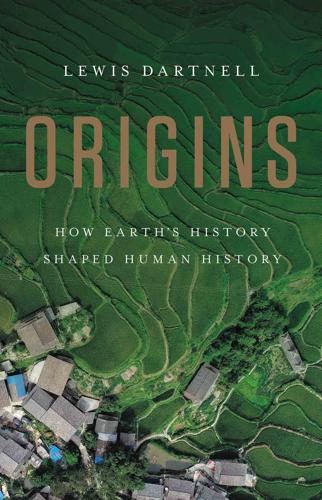
Origins: How Earth's History Shaped Human History
by
Lewis Dartnell
Published 13 May 2019
Alexander the Great crossed eastwards here in 334 BC to conquer Persia.48 ‡ Before the invention of the magnetic compass for navigation, sailing across open sea was just too dangerous when the night-time stars were obscured from view. § When in 1611 the Dutch established a new, faster passage from South Africa to the East Indies–the Brouwer Route which we’ll discuss in Chapter 8–the key gateway, and thus their strategic focus, shifted from the Malacca Strait to the Sunda Strait between Java and Sumatra. ¶ The island nation of Japan also underwent over two centuries of isolationism from the 1630s. During the Edo period, the sakoku (‘closed country’) policy barred most foreigners from entering Japan, and prohibited the Japanese from travelling overseas or building ocean-going ships.
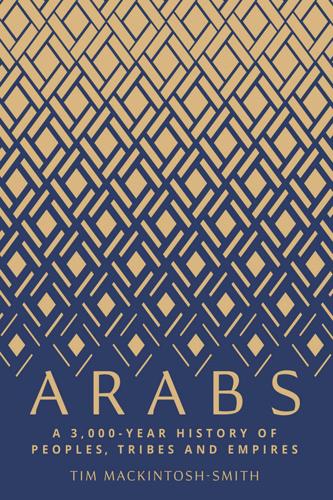
Arabs: A 3,000 Year History of Peoples, Tribes and Empires
by
Tim Mackintosh-Smith
Published 2 Mar 2019
In contrast to these three straits, the seaward prospect from the instep of the peninsular foot, the south coast, does not invite crossings: there isn’t a whole lot of land ahead of you until you reach Antarctica. But that same south coast lies in the realm of seasonal winds that would eventually take Arabian sailors and settlers round the Indian Ocean rim, in a great and growing mercantile crescent that would stretch from Mozambique to the Malacca Strait and beyond. Their camels of the sea would be as sleek and hardy as their ships of the desert, and the winds they would domesticate and make their own: ‘monsoon’ is from Arabic mawsim, ‘season for sailing’. Turning to the north, where the peninsula articulates with the main body of Eurasia, there is no barrier, no Himalaya to stop you crossing from Peninsula to Crescent and into further lands.
…
Admittedly, it didn’t help to have Mongols and Mamluks, Berbers and Franks forming that inescapable border, blocking their access to the broad Eurasian stage of events; not to mention Timur and the Ottomans looming, just as that same Eurasia was convalescing after the first onslaught of the Black Death. But there would be an escape route, a back door via the fertile fringe of Arabia’s coastline. For if continental prospects were blocked, there was still an ocean opening out from the far south of the Arabs’ island: a whole monsoon world, from Mozambique to the Malacca Strait and beyond. The hero of al-Hariri’s Maqamat, Abu Zayd, was to venture through the back door. An illustration in the famous manuscript shows him as one of a row of queasy faces aboard a leaky-looking dhow. Another shows the dhow beside an island inhabited by apes and parrots, but also by fantastic creatures with human faces.
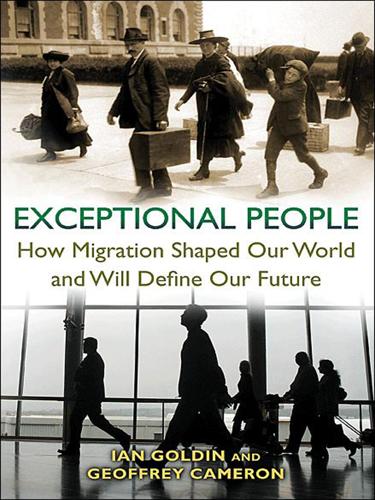
Exceptional People: How Migration Shaped Our World and Will Define Our Future
by
Ian Goldin
,
Geoffrey Cameron
and
Meera Balarajan
Published 20 Dec 2010
Making such services available is a sound investment for governments and community groups that see migrants for what most of them are: capable and hard-working people aspiring to social mobility. The scale of contemporary migration has contributed to settlement in ethnic enclaves. Historically, this is not a new phenomenon. Centuries ago, merchants in the Malacca Straits (Malaysia) or Alexandria (Egypt) would cluster and organize by country of origin, sometimes by force of the law. However, when new migrants become integrated into an urban underclass that is afflicted with social pathologies (poverty, violence, and criminal activity), aspirations for social mobility are undermined.
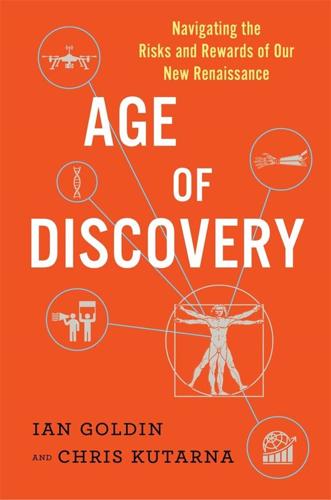
Age of Discovery: Navigating the Risks and Rewards of Our New Renaissance
by
Ian Goldin
and
Chris Kutarna
Published 23 May 2016
Absurd just two decades ago, today it makes sense to build a behemoth (400 meters long, 59 meters wide) that will never pass through the Panama Canal (not even the new, larger Panama locks opened in 2016) and can barely scrape through the Suez. As global trade volumes recover, it may soon make sense to build even bigger, “Malacca-max” container ships that can pass through neither. The Malacca Strait—global shipping’s third pincer point, which connects the Pacific, China and the Far East to the Indian Ocean—is where future volumes will be. The logic that today tells shipping companies to pass through the Suez Canal, bypassing Africa, will compete more and more with a logic that says it pays to go the long way around.

Espresso Tales
by
Alexander McCall Smith
Published 1 Jan 2005
And when I became a young man, I found that I still hated things to end, though now, of course, I was learning how quickly and hard upon each other’s heels do the endings come. “Today, our dear friend, Domenica, told us that she was proposing to go away for some time. She is a scholar, and she obeys the tides of scholarship. These tides, she told us, now take her to the distant Malacca Straits, to a particularly demanding piece of fieldwork. I have my own views on that project, but I respect Domenica for her bravery in going to live amongst those whom she intends to study. “We who are left behind in Edinburgh can only imagine the dangers which she will face. But tonight we can assure her that she goes with our love, which is what we would wish, I’m sure, to any friend about to undertake a journey.

Arriving Today: From Factory to Front Door -- Why Everything Has Changed About How and What We Buy
by
Christopher Mims
Published 13 Sep 2021
A typical supply chain—that is, a typical distributed factory system—might start with natural gas harvested in the panhandle of Texas. Then it’s piped overland to a plant in Houston where it’s chilled to a temperature of −265°F. In this state it’s loaded onto a liquid natural gas tanker and transported more than 18,000 miles, across the Atlantic, through the Suez Canal, around the southern tip of India, and through the Malacca Strait, to China. There, it’s piped into another plant and, through the miracle of synthetic chemistry, turned into plastic. Then it’s transported by rail to a second location in China where it’s spun into polyester thread, which is trucked to a third place in China to be woven into polyester fabric.
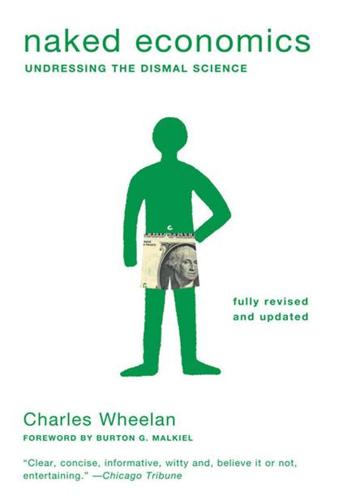
Naked Economics: Undressing the Dismal Science (Fully Revised and Updated)
by
Charles Wheelan
Published 18 Apr 2010
Thus, most of us are willing to pay a predictable amount—even one that is more than we expect to get back—in order to protect ourselves against the unpredictable. Almost anything can be insured. Are you worried about pirates? You should be, if you ship goods through the South China Sea or the Malacca Strait. As The Economist explains, “Pirates still prey on ships and sailors. And far from being jolly sorts with wooden legs and eye patches, today’s pirates are nasty fellows with rocket-propelled grenades and speedboats.” There were 266 acts of piracy (or attempts) reported to the International Maritime Organization in 2005.
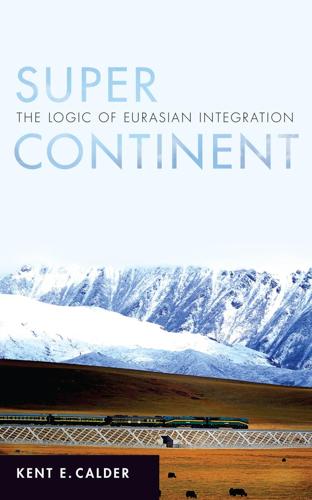
Super Continent: The Logic of Eurasian Integration
by
Kent E. Calder
Published 28 Apr 2019
The SKRL will also have geopolitical attractions for China, as it will reach the Bay of Bengal, connected to the Indian Ocean, in southern Thailand and the western Malay Peninsula. Such a route could create an overland alternative to the vulnerable sea lines of communication (SLOCs) running through the Malacca Strait, although it does face periodic political challenges, such as the 2018 ambivalence of Malaysian prime minister Mahathir Mohamad. Compared to other ambitious projects connecting China to South and Central Asia, the SKRL is a particularly appropriate platform to demonstrate China’s technical capabilities in high-speed rail technology.
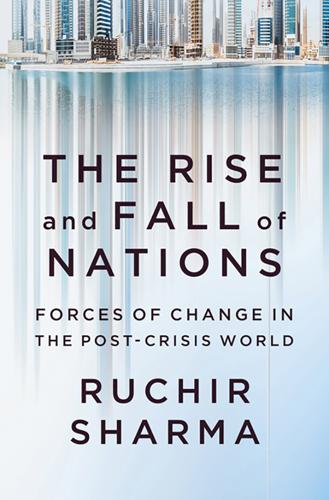
The Rise and Fall of Nations: Forces of Change in the Post-Crisis World
by
Ruchir Sharma
Published 5 Jun 2016
Dubai could have fallen victim to the political and economic dysfunctions that plague the Middle East, but instead it has managed to turn itself into the commercial hub of a region that sits on 60 percent of the world’s known oil reserves. On a map of global shipping routes showing critical chokepoints—from the Malacca Strait to the Panama Canal and the Strait of Hormuz—Dubai is perched like a cashier overseeing the flow of oil out of troubled oil states such as Iraq and Iran. Dubai has in fact prospered more than its oil-rich neighbors by turning itself into their regional headquarters for shipping as well as travel, information technology, and financial services.
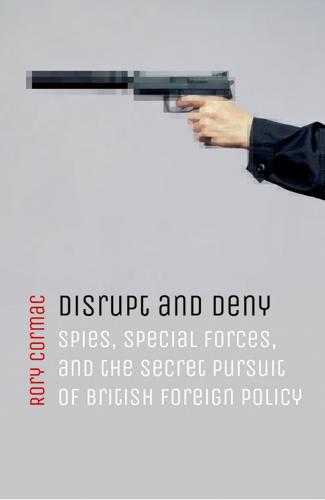
Disrupt and Deny: Spies, Special Forces, and the Secret Pursuit of British Foreign Policy
by
Rory Cormac
Published 14 Jun 2018
Despite earlier American scepticism, the CIA now believed that Nasser would be forced to agree to a compromise settlement.51 Confrontation The same approach simultaneously applied to Indonesia. Confrontation had continued into 1964 after Indonesian ‘volunteers’ escalated sabotage activity along the jungled border with Borneo and President Sukarno’s forces began OUP CORRECTED PROOF – FINAL, 06/02/18, SPi 170 E n d of E m pi r e to cross the Malacca Straits and infiltrate the Malaysian Peninsula. From the summer of 1964, Burrows and his Joint Action Committee approved a number of defensive measures including deniable operations to disrupt bands of Indonesian guerrillas within an initial limit of 3,000 yards across the border.52 Shortly afterwards, the SAS moved into a new role as local military operatives pressed for more sophisticated reconnaissance and a special offensive force.53 Meanwhile, SIS and special forces busily trained Malaysian instructors in the art of subversion.These operations proved more difficult in Sumatra, which was under strict police control, but enjoyed some success in Celebes, where a strong independence movement had developed.54 Within this framework, SAS and SBS teams patrolled the jungle, protecting posts on the front line.
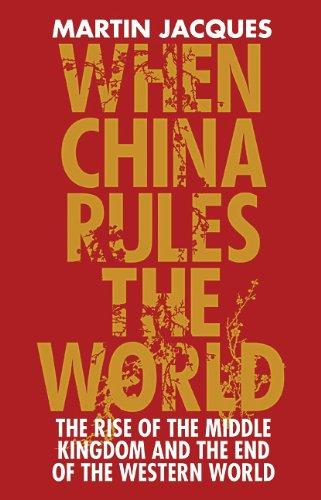
When China Rules the World: The End of the Western World and the Rise of the Middle Kingdom
by
Martin Jacques
Published 12 Nov 2009
China’s highest priority is Taiwan, and the biggest obstacle in the way of reunification is American military support for the island. The most likely cause of military conflict between China and the US is Taiwan; and in the event of war, China would be extremely anxious about the security of its maritime oil supply routes, especially in the Malacca Strait and the South China Sea, which could easily be severed by the US’s superior air and naval power. In such an eventuality, Iran could at some point offer the possibility of a land-based supply route from West to East Asia. But there is another possible future scenario, namely that China and the US could arrive at some kind of trade-off involving Taiwan and Iran in which the US agrees to stop sending weapons to Taiwan and China volunteers to do the same with Iran.
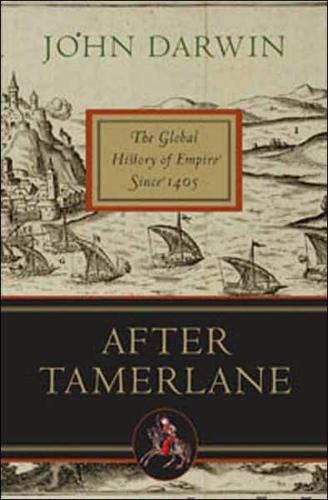
After Tamerlane: The Global History of Empire Since 1405
by
John Darwin
Published 5 Feb 2008
It was in the Near East and Iran that Islam had been established by Muhammad’s Arab armies in the seventh century over the ruins of Byzantine and Sassanid rule. By AD 750, most of Central Asia was Muslim. After 1000, Muslim Turks invaded North India, drawn by the ‘gold rush’ for Indian treasure36 to create a series of conquest states. By the thirteenth century, Islam had reached Bengal and the trading towns of the Malacca Strait, the launching pad for its advance into the Malay archipelago. The Sudanic lands south of the Sahara were also being Islamized by the eleventh century. Medieval Europeans were dazzled by the fabulous wealth and intellectual sophistication of the Islamic world. There were good reasons for this.
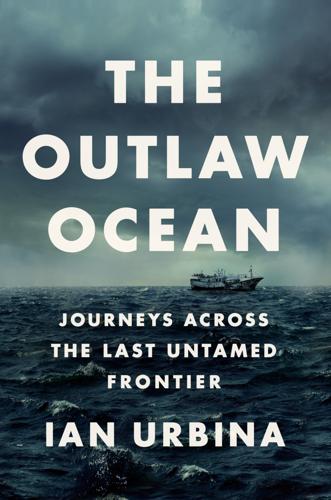
The Outlaw Ocean: Journeys Across the Last Untamed Frontier
by
Ian Urbina
Published 19 Aug 2019
“Fish Aggregating Devices (FADS) Position Paper.” June 28, 2011. Phillips, Richard. A Captain’s Duty: Somali Pirates, Navy SEALs, and Dangerous Days at Sea. New York: Hyperion, 2010. Raban, Jonathan, ed. The Oxford Book of the Sea. Oxford: Oxford University Press, 2001. Raymond, Catherine Z. “Piracy and Armed Robbery in the Malacca Strait: A Problem Solved.” Naval War College Review 62, no. 3 (Summer 2009): 31–42. Rediker, Marcus. Villains of All Nations: Atlantic Pirates in the Golden Age. Boston: Beacon Press, 2004. Roberts, Callum M. Ocean of Life: How Our Seas Are Changing. London: Allen Lane, 2012. ———. The Unnatural History of the Sea.
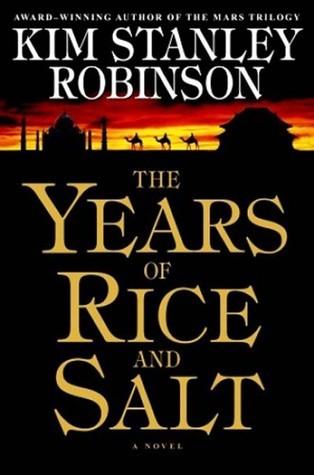
The Years of Rice and Salt
by
Kim Stanley Robinson
Published 2 Jun 2003
'Nothing bad can happen to us on this voyage, anyway.' And so it proved. Black squalls, bearing directly down on them, unaccountably evaporated just as they struck. Giant seas rocked all the horizons, great dragon tails visibly whipping up the waves, while they sailed serenely over a moving flat calm at their centre. They even sailed through the Malacca Strait without hindrance from Palembanque, or, north of that, from the myriad pirates of Cham, or the Japanese wakou – though, as Kyu pointed out, no pirate in his right mind would chal lenge a fleet so huge and powerful, tooth of the Buddha or no. Then as they sailed into the south China Sea, someone saw the Dalada floating about the ship at night, as if, he said, it were a little candle flame.
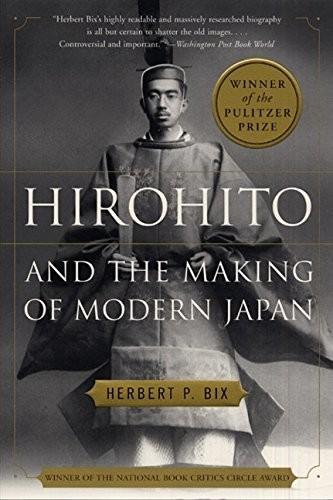
Hirohito and the Making of Modern Japan
by
Herbert P. Bix
Published 1 Jan 2000
On March 7 the liaison conference formalized the rapidly expanding Pacific offensive in a new policy document, whose first article declared: “In order to force Britain to submit and the United States to lose its will to fight, we shall continue expanding from the areas we have already gained,” and while “working long-term to establish an impregnable strategic position, we shall actively seize whatever opportunities for attack may occur.”12 The next day Lae and Salamaua in New Guinea were occupied. By April 1942 the Japanese had captured strategic points in the remote Andaman and Nicobar Islands, territory belonging to British India and running from the Malacca Straits all the way to the mouth of the Indian Ocean, thereby forcing the small British fleet in the Indian Ocean to remove to the coast of East Africa. Meanwhile, in Southeast Asia, Japanese army troops had earlier captured British Singapore on February 15. They had massed in Thailand and from there pushed into the British territory of Burma, capturing Rangoon (Burma’s main port) on March 8, Lashio (the starting point of the Burma Road) on April 28, and Mandalay on May 1.
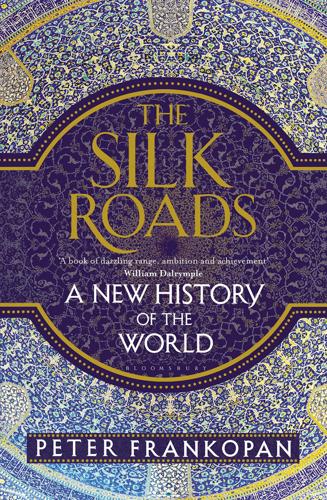
The Silk Roads: A New History of the World
by
Peter Frankopan
Published 26 Aug 2015
The potential for profit explains why the Portuguese set about building a Silk Road of their own, establishing a chain of ports and harbours linking Lisbon with the coast of Angola, Mozambique and East Africa and beyond in a sprawling set of trading stations with permanent colonies dotted from India to the Malacca Straits and the Spice Islands. They met with considerable success in doing so – to the point that within a few decades of Vasco da Gama’s expedition to India, a substantial part of Portuguese state revenues came from the spice trade.36 Nevertheless, they faced stern challenges, not least because others were determined not to miss out on a share of the market.